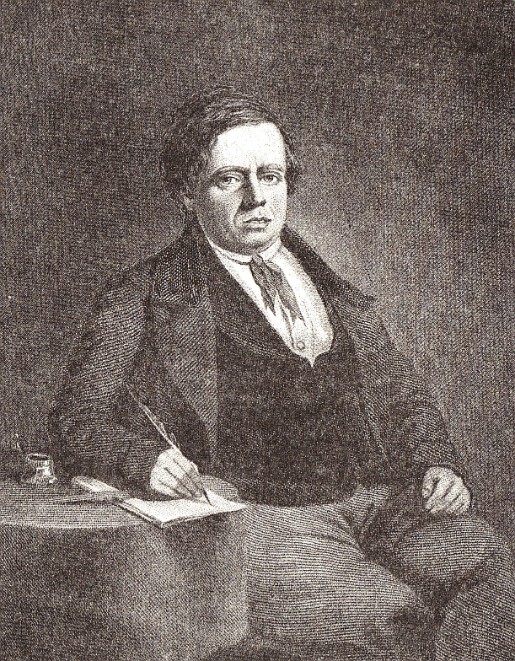
Alexander Somerville
(15/08/1811 - 17/06/1885)
'A son-of-the-soil, soldier, social reformer & scribe'
May we at A1History, once again, thank Dunbar's author Roy Pugh for the following enlightening precis of Mr Somerville's fascinating life. This short biography will be succeeded by a tranche of Alexander Somerville's own "Autobiography of a Working Man" covering his formative years in the Berwickshire and Dunbar areas.Alexander Somerville's account of farm life in the vicinity of
Dunbar in the first half of the nineteenth century is a 'must read' for
those interested in agriculture and local history. Published in 1848, "Autobiography of a Working Man who has Whistled behind the Plough" is in
the nature of a minor classic, written in a remarkably modern and
readable style, considering that its author received only the
rudimentary education on offer in the village schools of his day.
Somerville's father was born in the parish of Muckart in 1760; his mother came from Ayton, Berwickshire and had the unusual maiden name of Orkney, a name still to be found in the local churchyard today. Alexander's family lived and worked on various farms including the Cove, near Cockburnspath, Thorntonloch, Thurston Mains, Springfield, Dunglass and Branxton. Somerville senior was a 'barn man' or thresher of grain; apart from son Alexander, all his children worked on farms in the vicinity during their lives.
Somerville's father was born in the parish of Muckart in 1760; his mother came from Ayton, Berwickshire and had the unusual maiden name of Orkney, a name still to be found in the local churchyard today. Alexander's family lived and worked on various farms including the Cove, near Cockburnspath, Thorntonloch, Thurston Mains, Springfield, Dunglass and Branxton. Somerville senior was a 'barn man' or thresher of grain; apart from son Alexander, all his children worked on farms in the vicinity during their lives.
Alexander was born in Oldhamstocks, near Innerwick, in 1811. On leaving school at age fourteen, he worked on the
farms mentioned above. He tried to better himself in other occupations
and wanted to become a forester but lacked the necessary qualifications.
His autobiography is a story of his life as farm labourer, lumberjack,
ditch-digger and sawmill worker. He also worked as a labourer on the
construction of Cove Harbour, then the Skateraw limekiln, the last being a particularly
dirty, smoky and back-breaking job. His day at Skateraw began at about
3am or 4am and he did not return home until 5pm or 6pm, depending on the
season. His weekly wage at Skateraw was nine shillings (45p) a week,
poor when compared with a collier's wage of twenty seven shillings
(£1.35) or a miner's of twelve shillings (60p) a week.
Tiring of the
dirty, unhealthy job at Skateraw, Alexander went back to farm labour,
pulling oats and barley, peas, beans, shearing sheep, ploughing and
pruning hedges for even less money- six shillings (30p) a week, although
the work was more healthy. In 1831, after working on farms as far
afield as Blinkbonny in Midlothian, Alexander decided to enlist in the
regular army, joining the Royal North British Dragoons (The Scots Greys,
the first regiment of dragoon cavalry, formed in the second half of the
seventeenth century by General Tam Dalyell of
the Binns in West Lothian.
Life as a trooper in the Greys was reasonably good, especially the
daily diet. Somerville enjoys roast goose and roast meat with Yorkshire
puddings for the first time in his life! However, he fell foul of the
military establishment by writing letters to a Birmingham newspaper
criticising the Duke of Wellington who opposed the great Reform Bill of
1831 during its passage through the Houses of Parliament. The Bill
would enfranchise considerably more men than before, allowing votes to
those who had been denied the right for centuries and ending the corrupt
and rotten boroughs in England. Somerville was a great champion of
democracy and he was incensed when his regiment was ordered to disperse
the 'mobs' demonstrating in support of the new Bill. His campaign was
noted and he was sentenced to 200 lashes for his contumacy in attacking
the Duke of Wellington in print. He received only half that number.
(Corporal punishment in the British Army would not be abolished until
1881, under the Cardwell reforms).
An independent newspaper took up
Somerville's case and raised £320 in his support; he spent £30 of it
to buy himself out of the army. Sadly, through unwise investments and
failed projects, Somerville lost most of his wealth; at least he found
his metier as a writer and journalist, a profession for which he was
eminently qualified. Between 1837 and 1848, Somerville published several
books. He married in 1841 and after several years scraping an
existence, emigrated to Canada with his wife, who died shortly
afterwards in 1853. He found employment as editor of the Canadian
Illustrated News but his health and finances were in poor shape.
Alexander Somerville, a homeless vagrant was found dead in a shed in
Toronto in 1885. He was survived by his only child. It was a sad end for
a man who possessed considerable literary skills and who believed in democracy, justice and
the rights of the common working man.
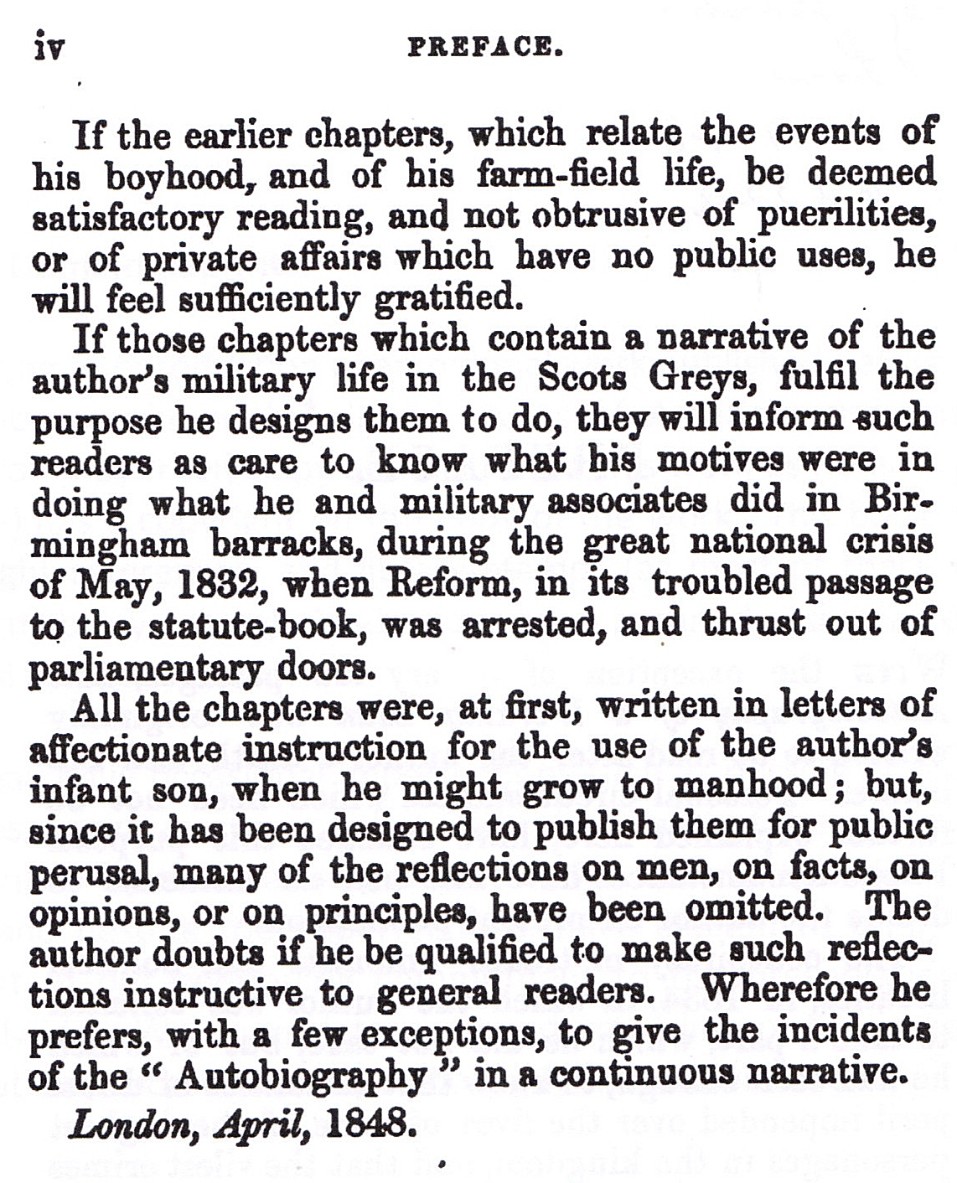
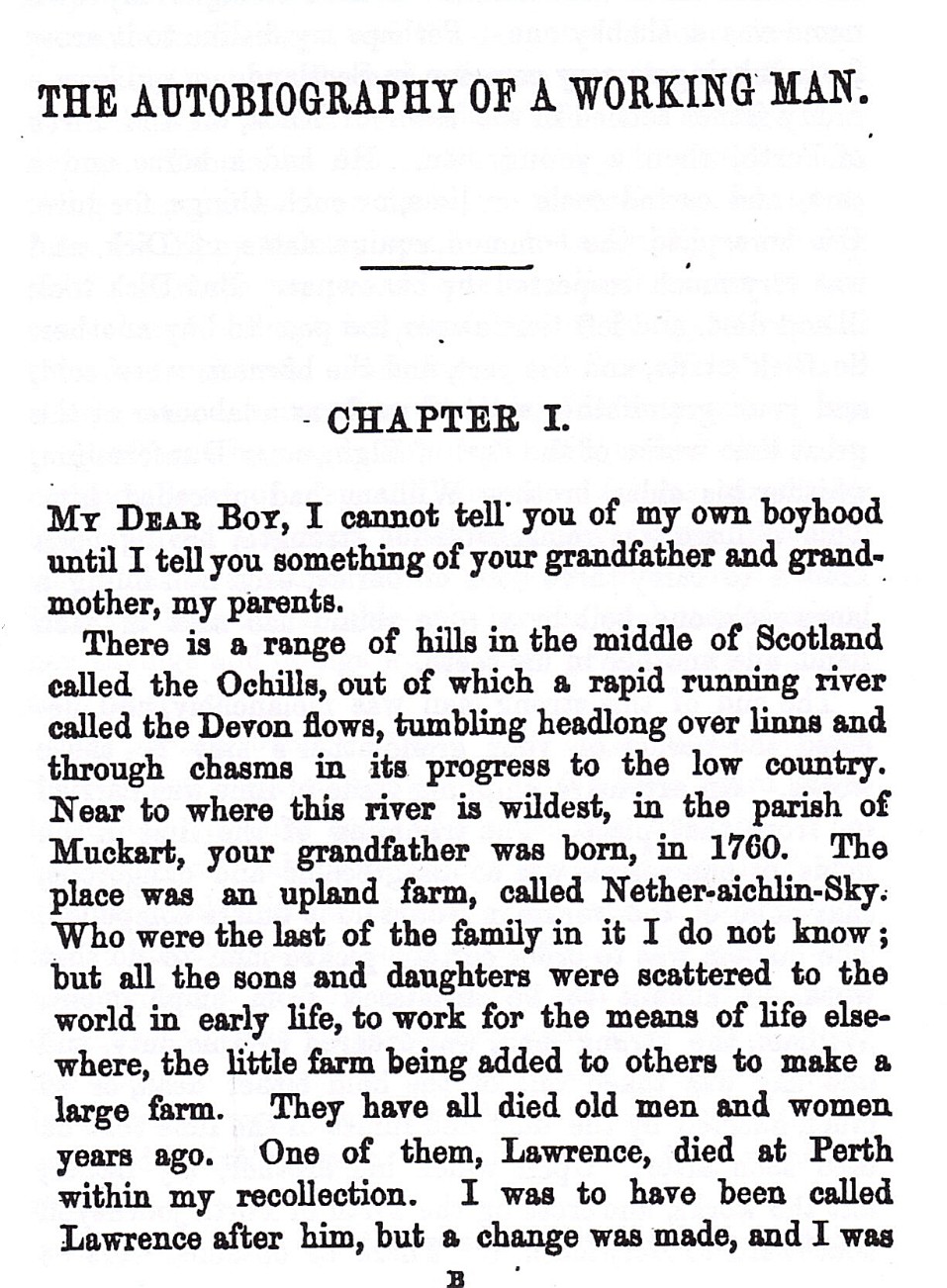
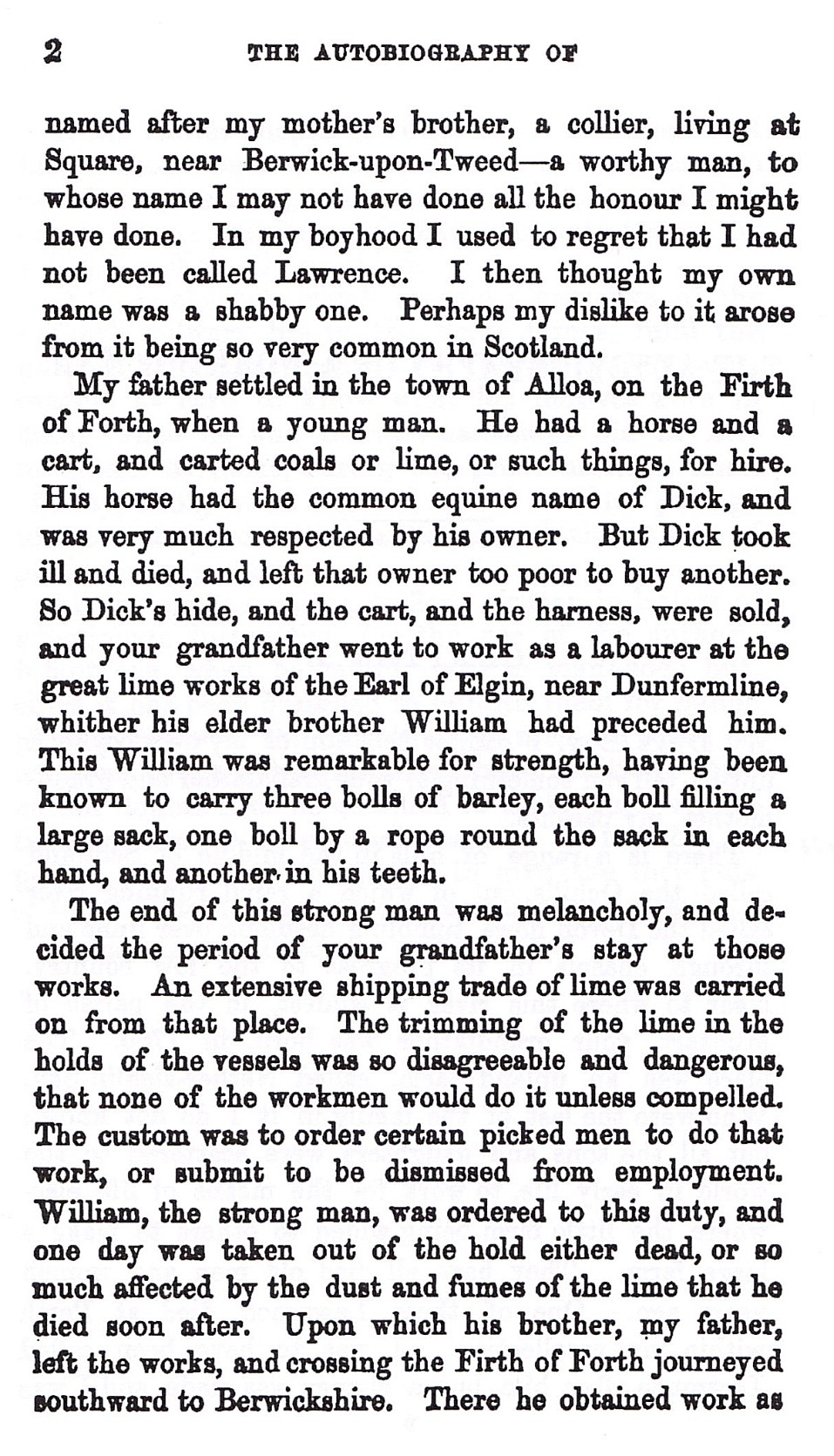
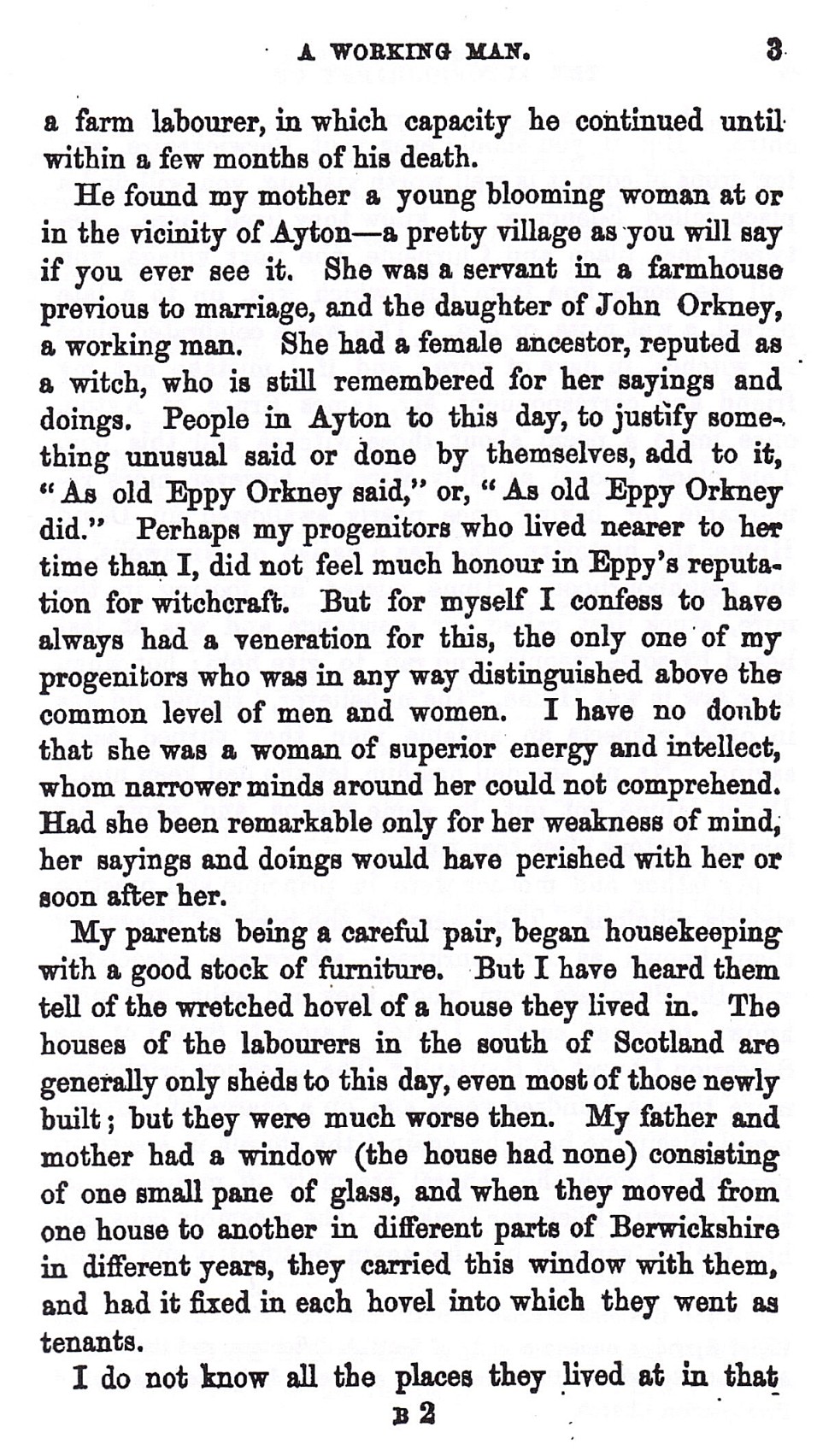
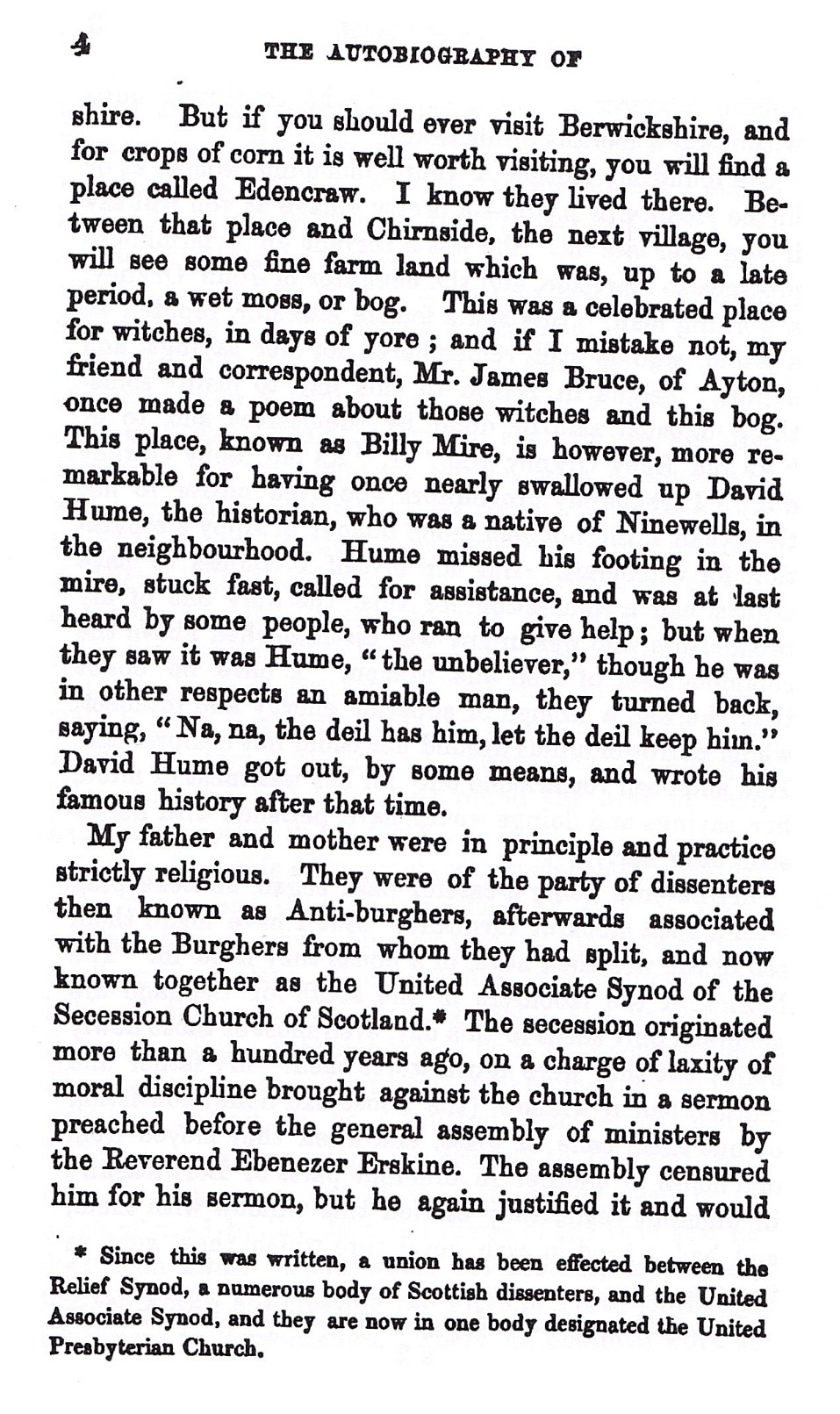
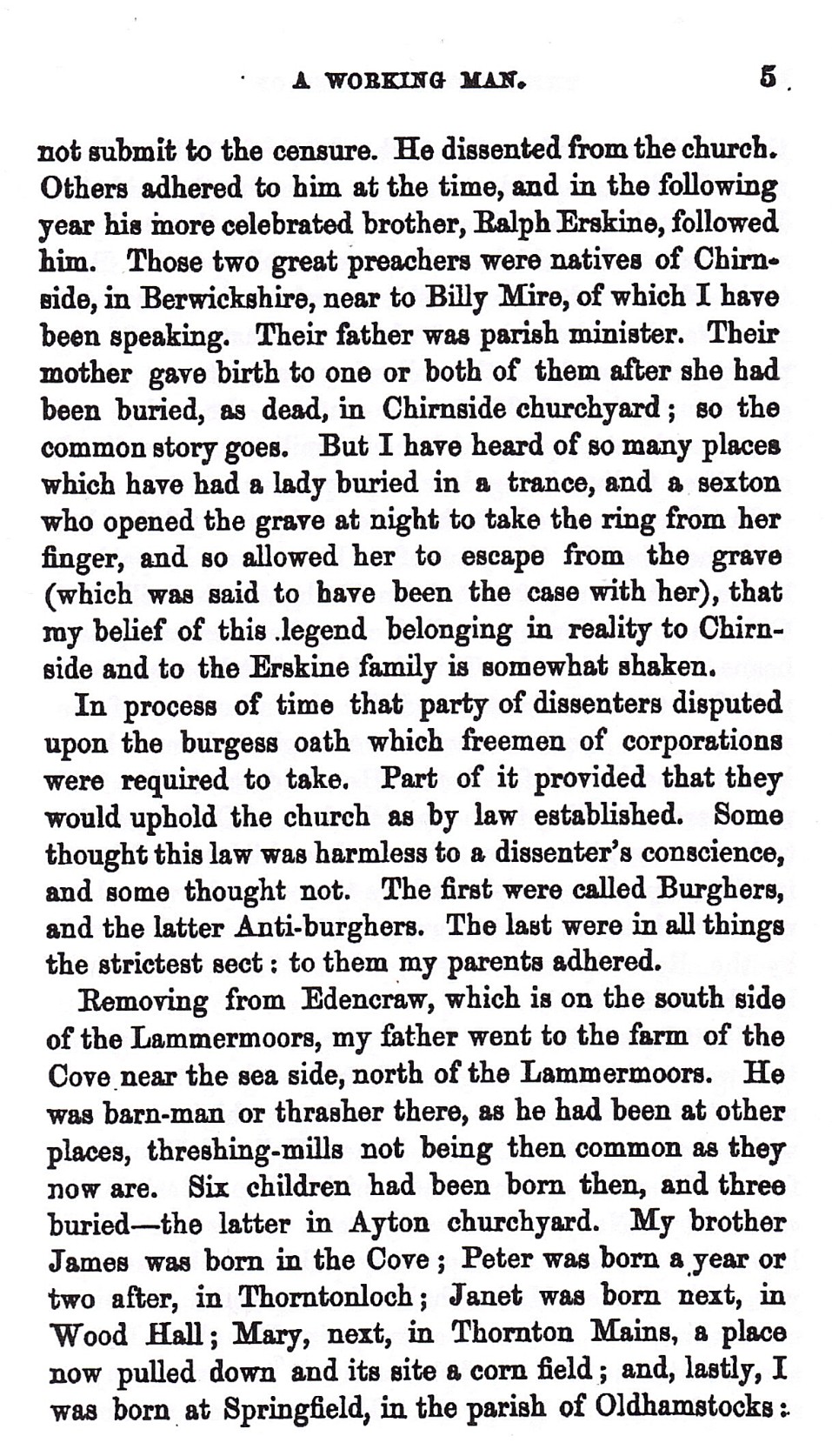
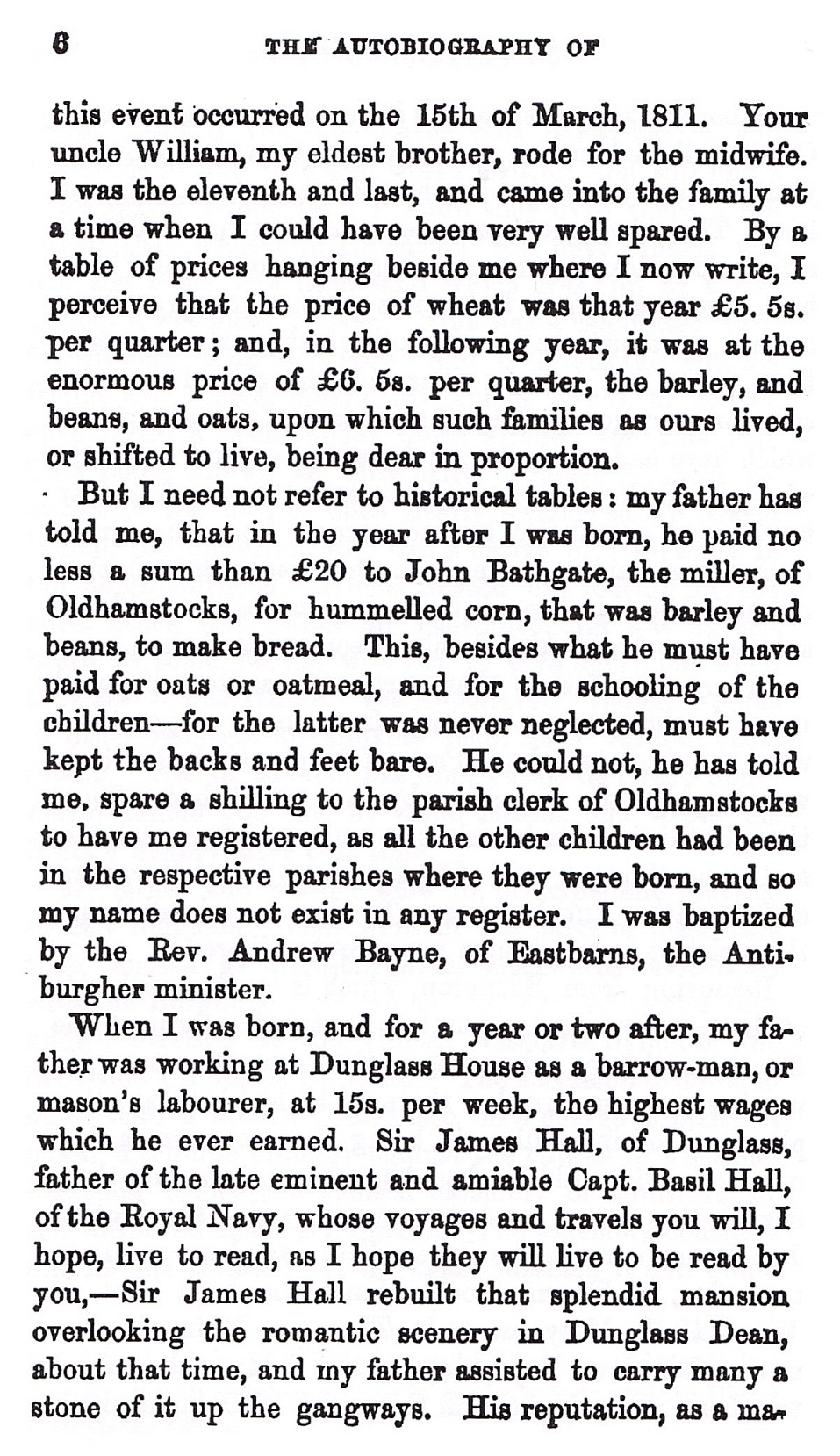
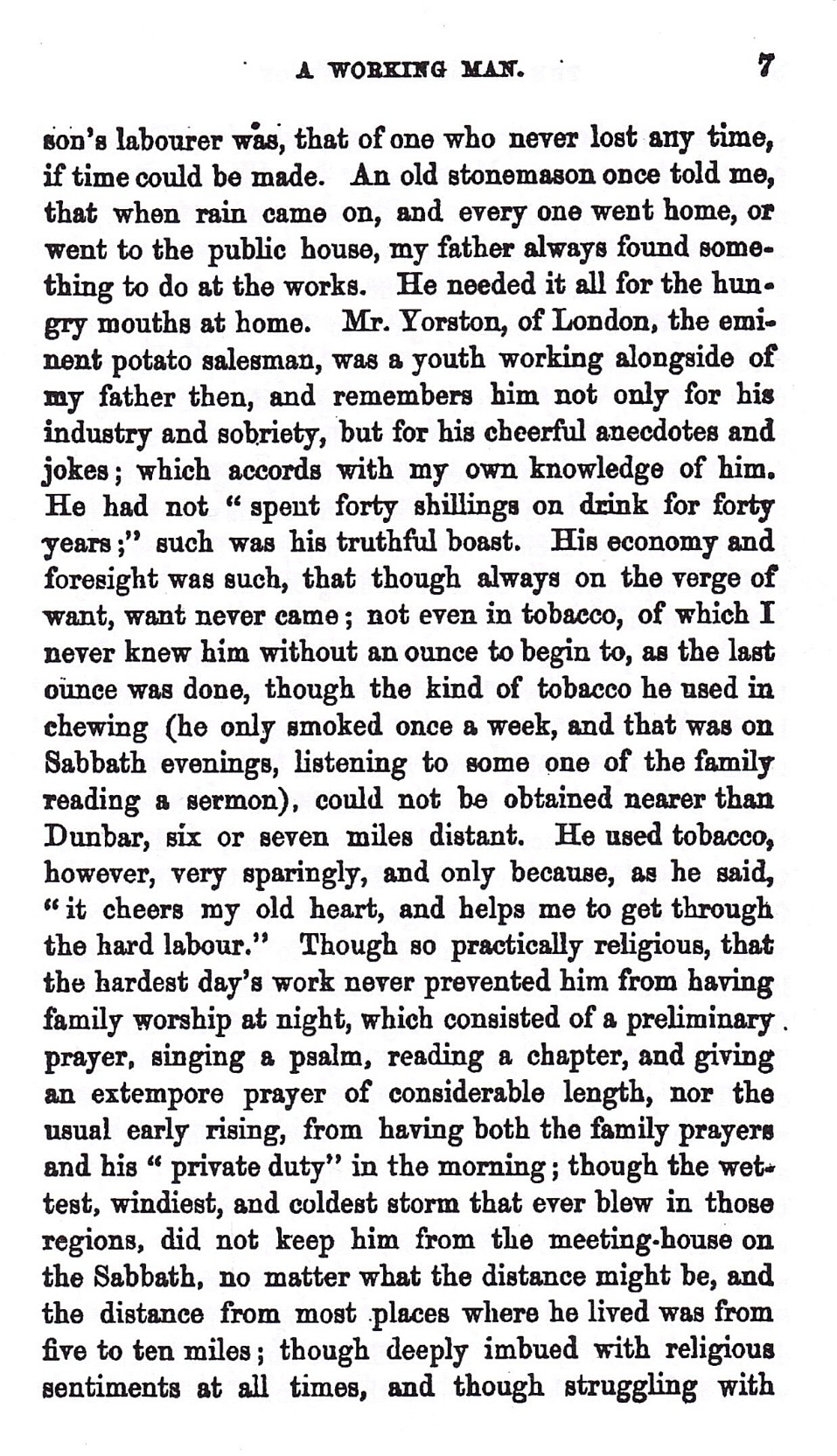
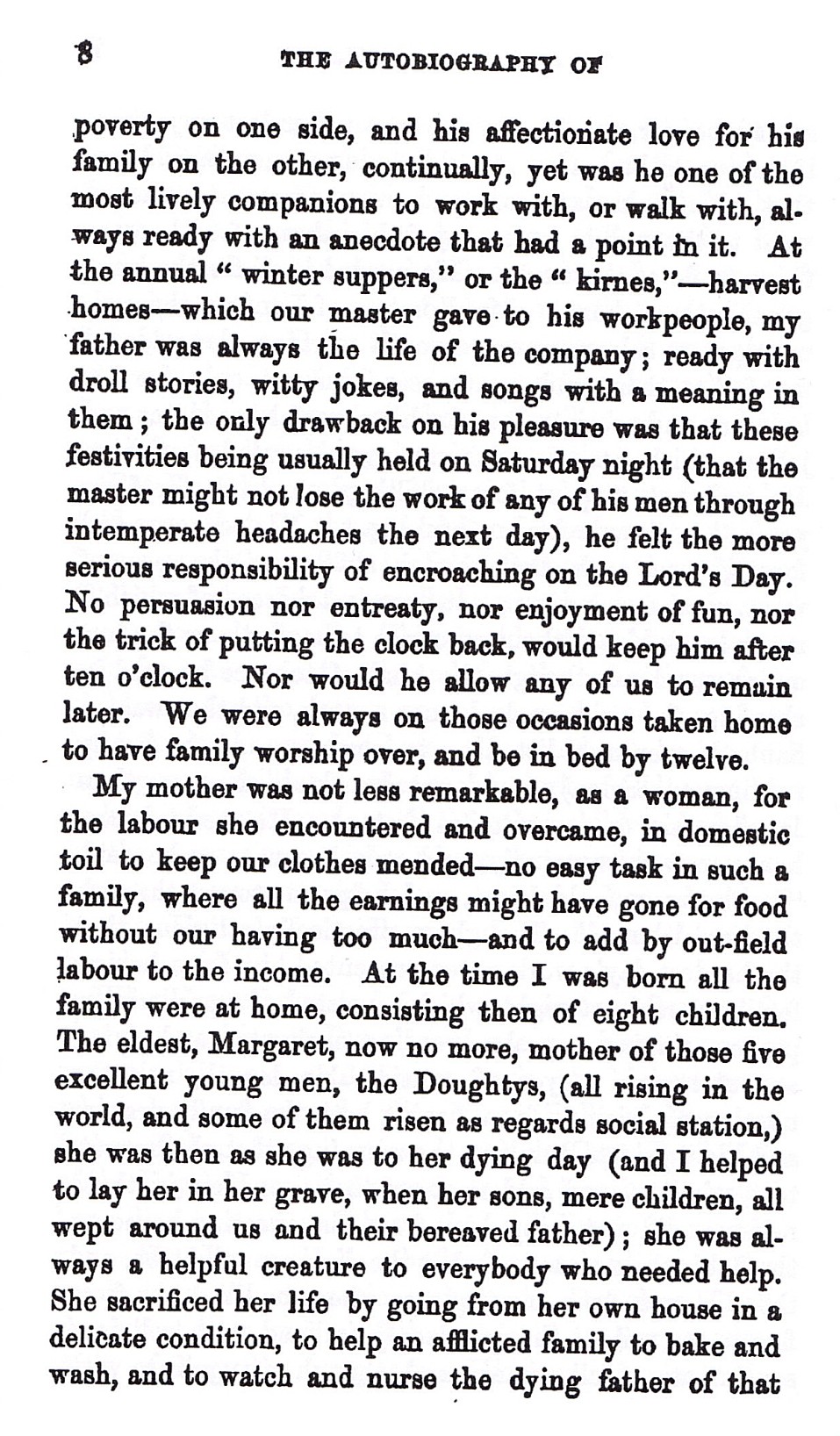
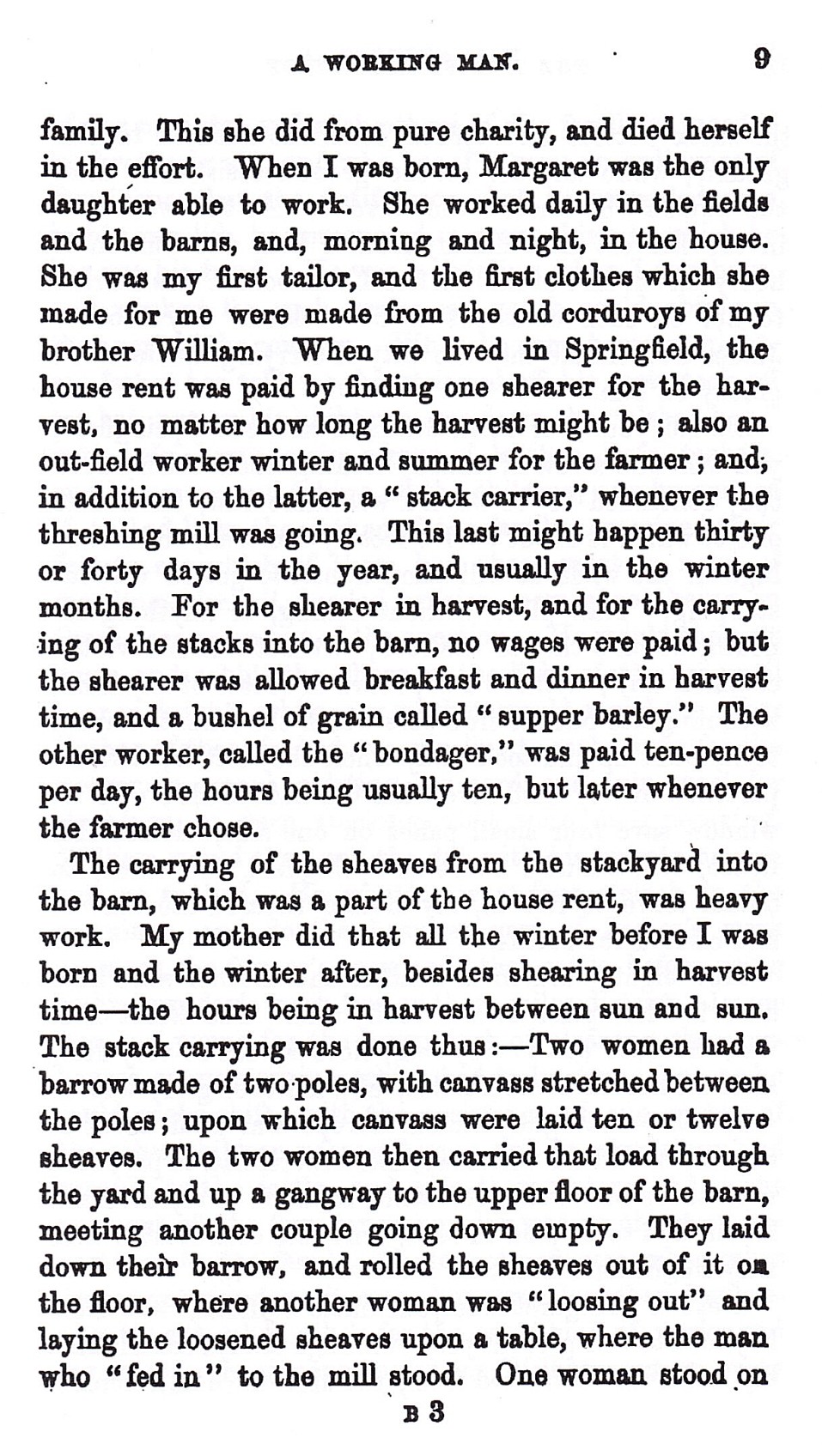
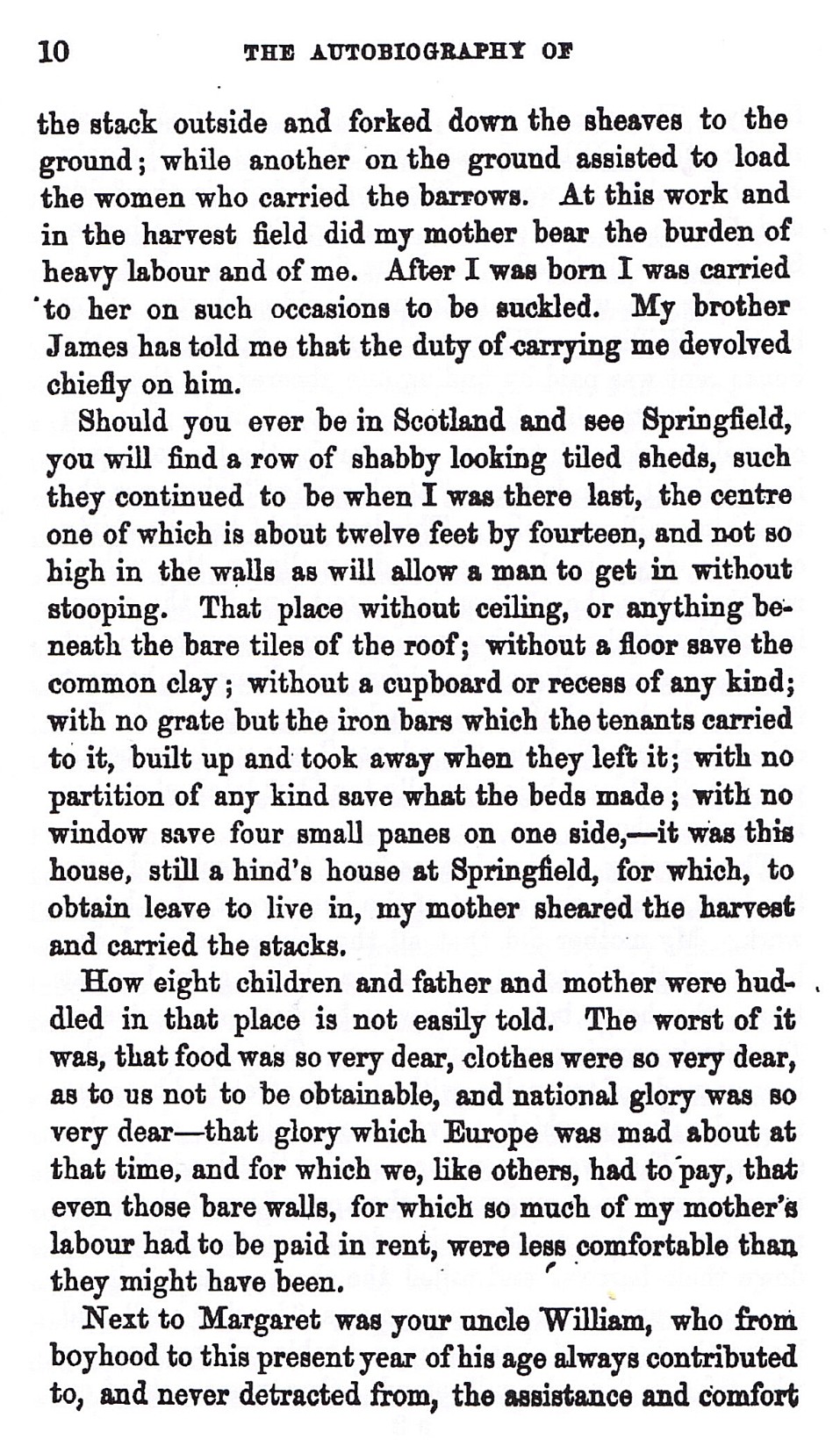
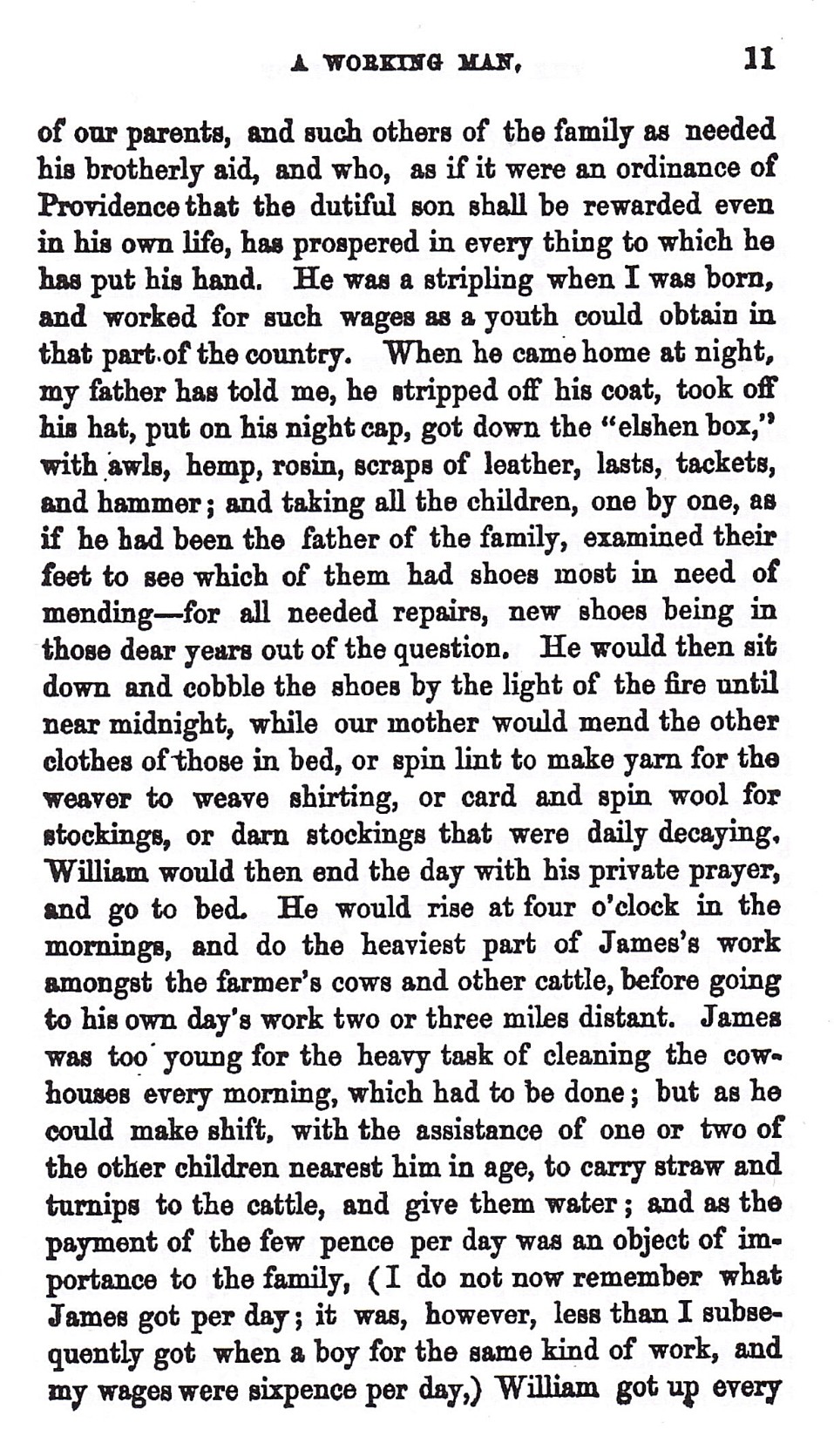
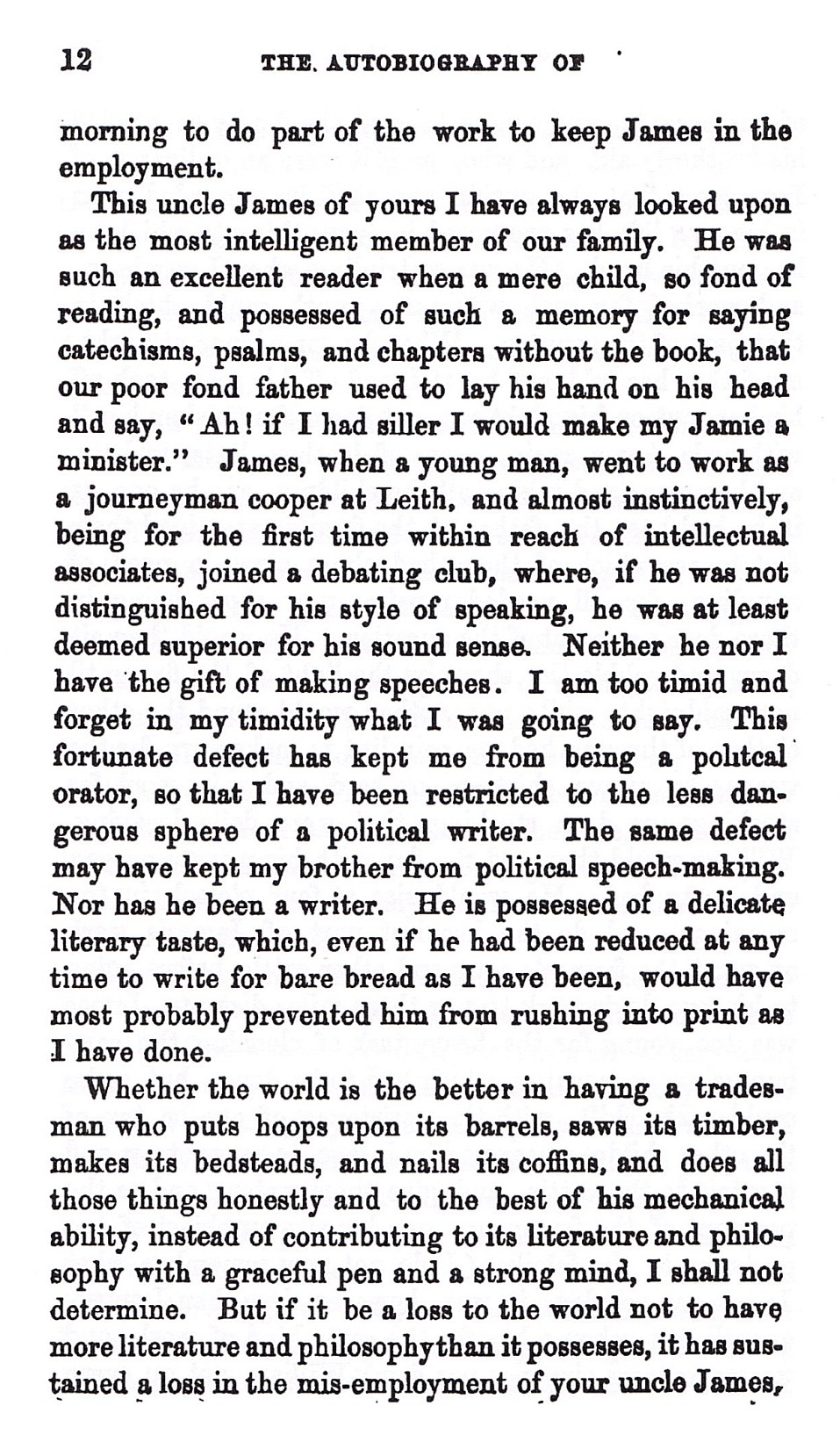
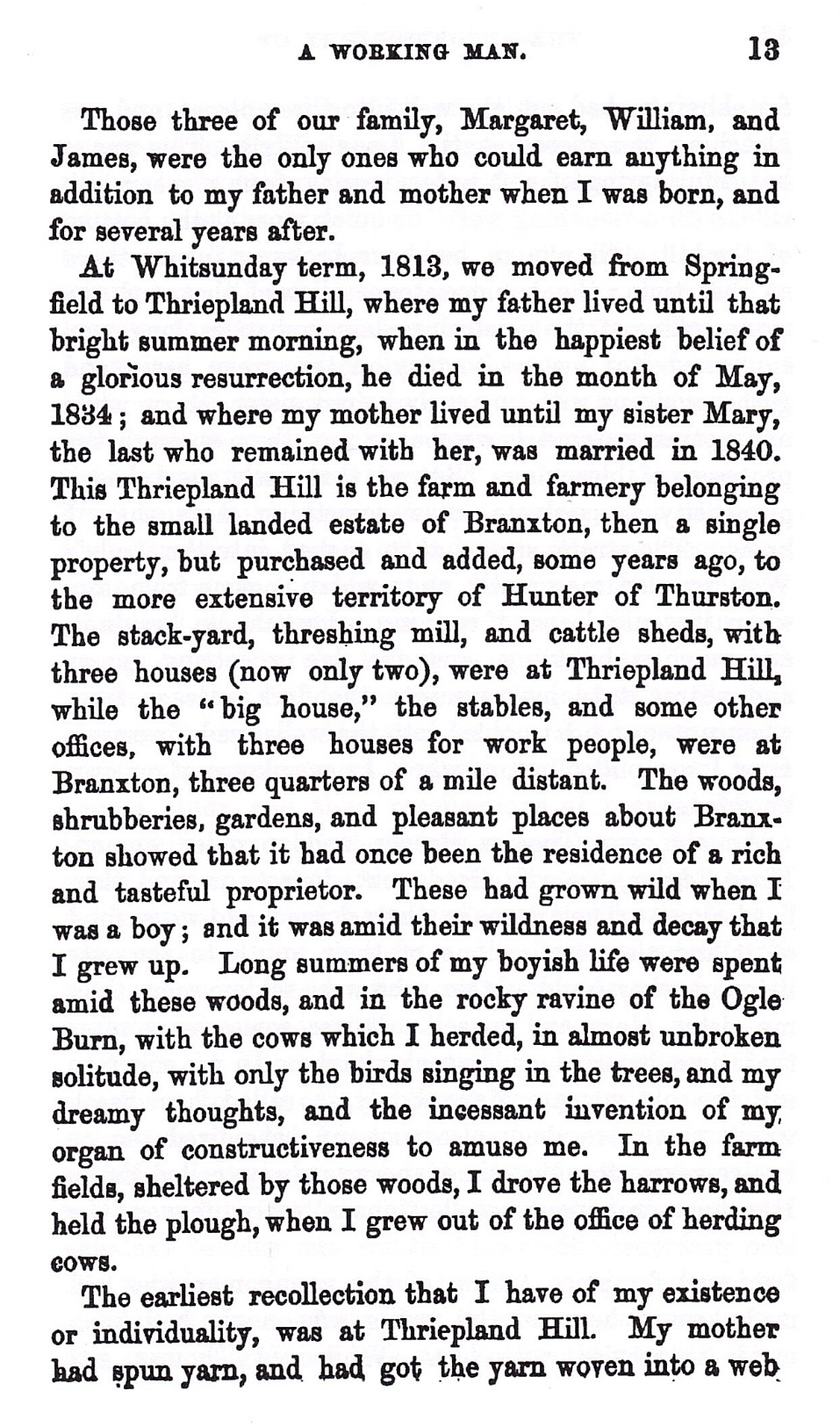
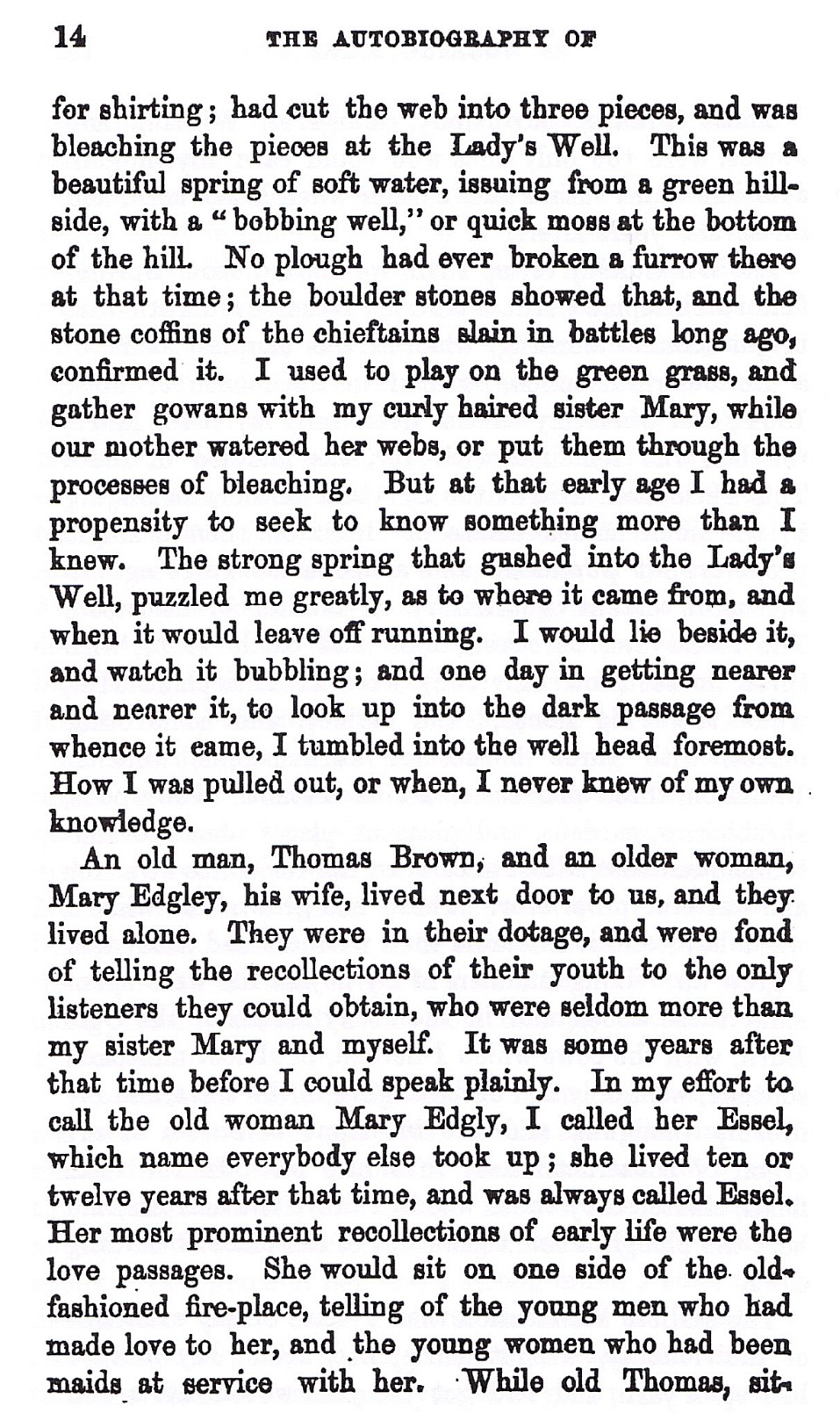
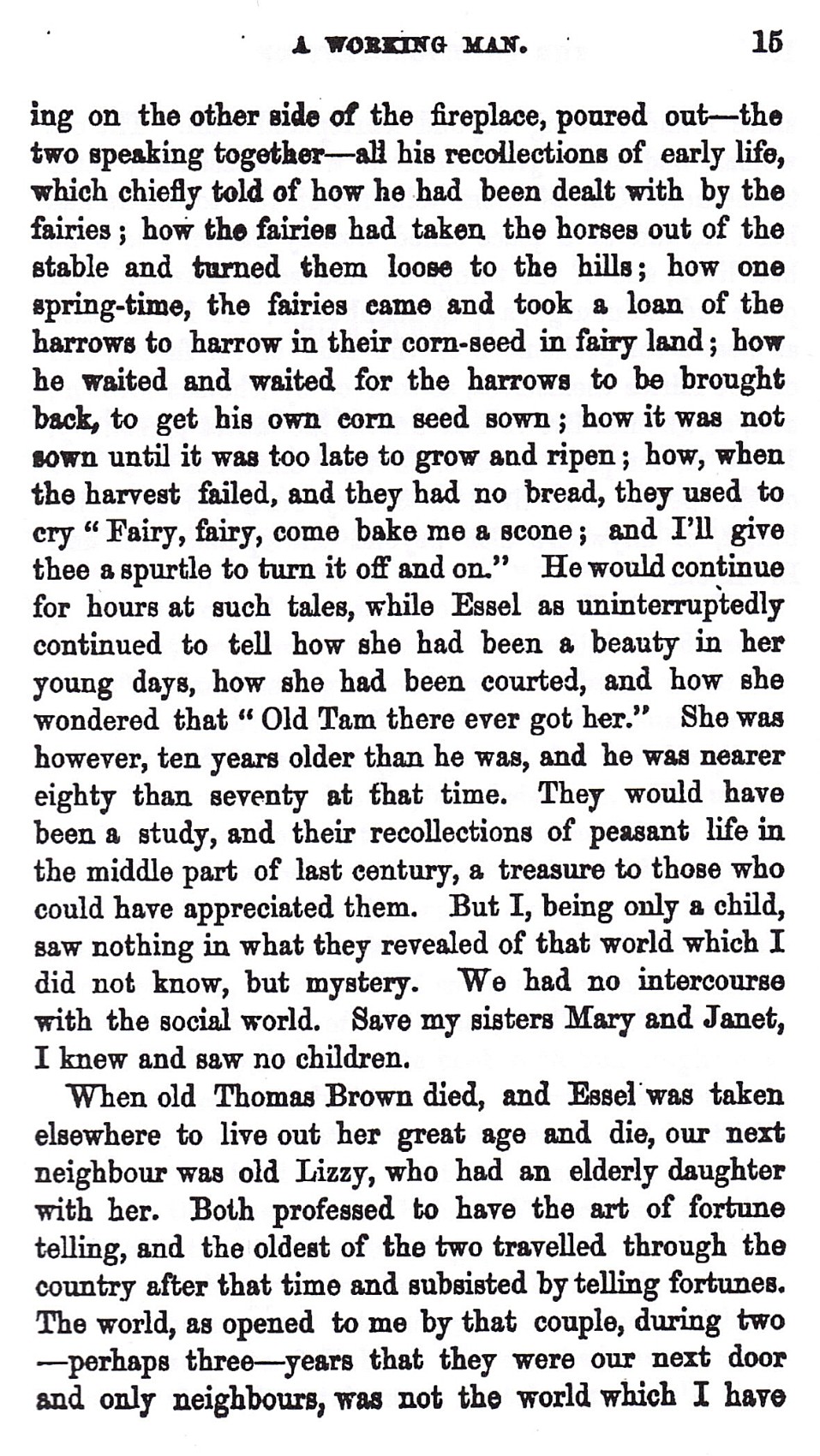
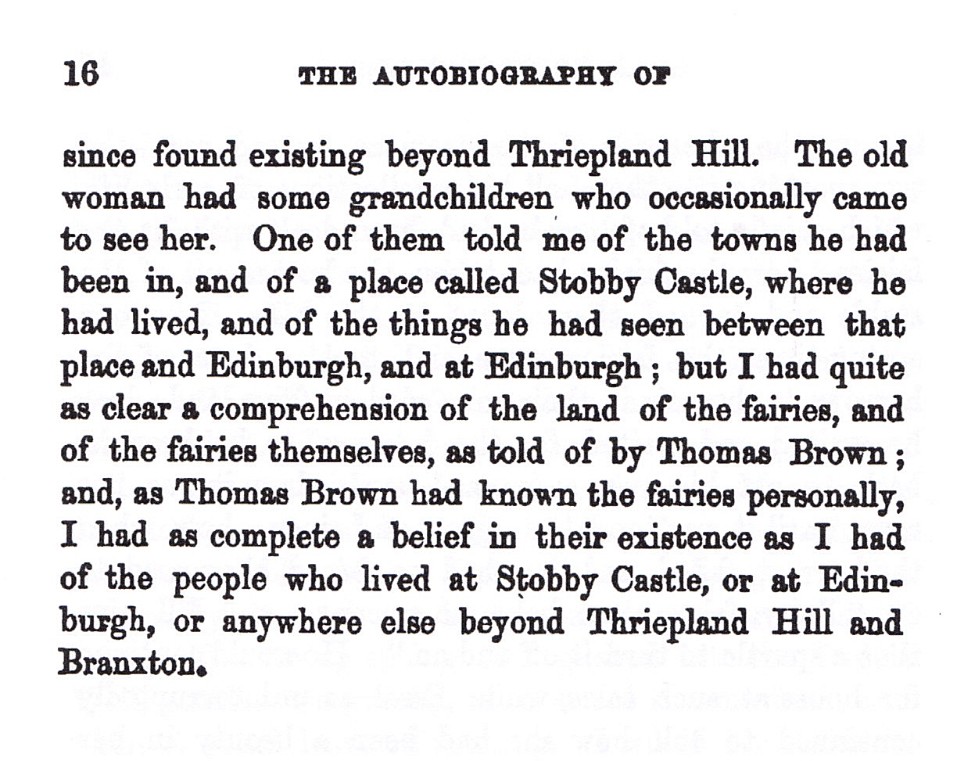
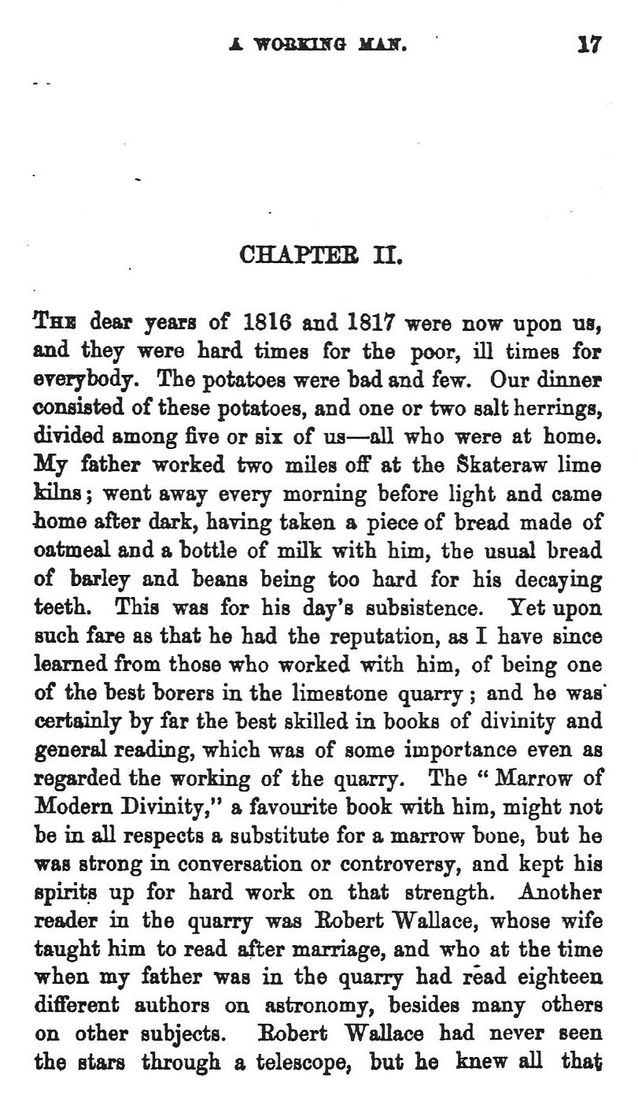
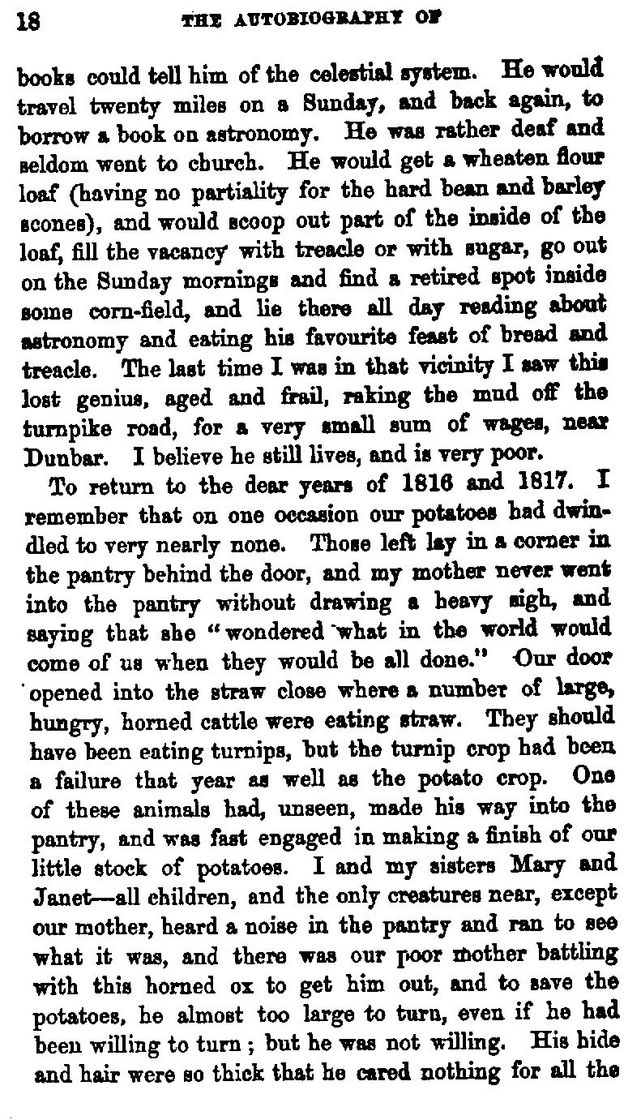
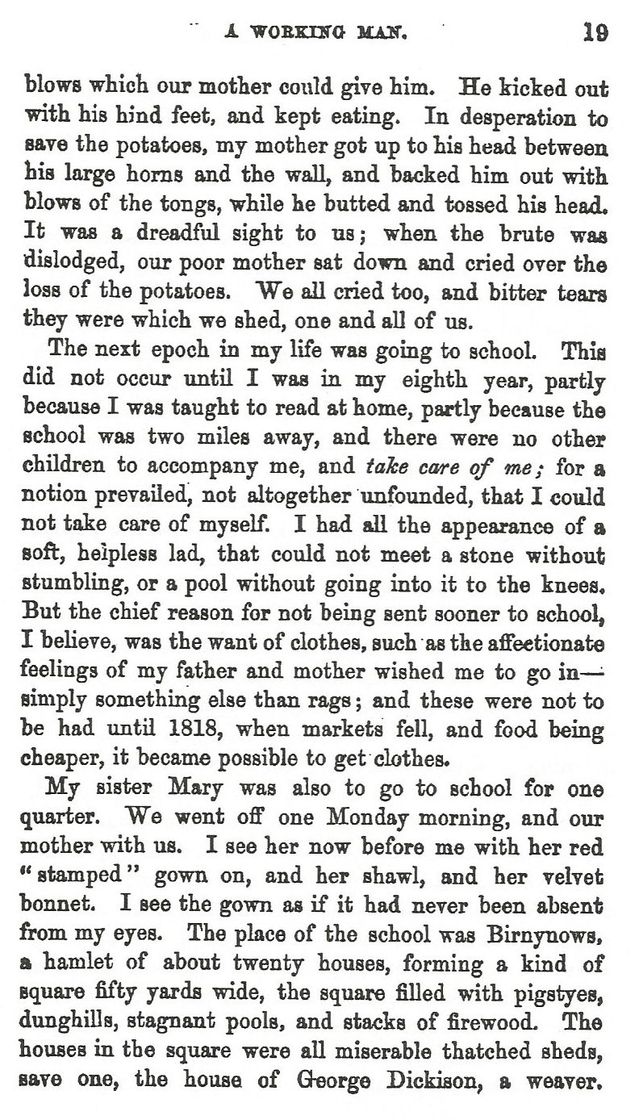
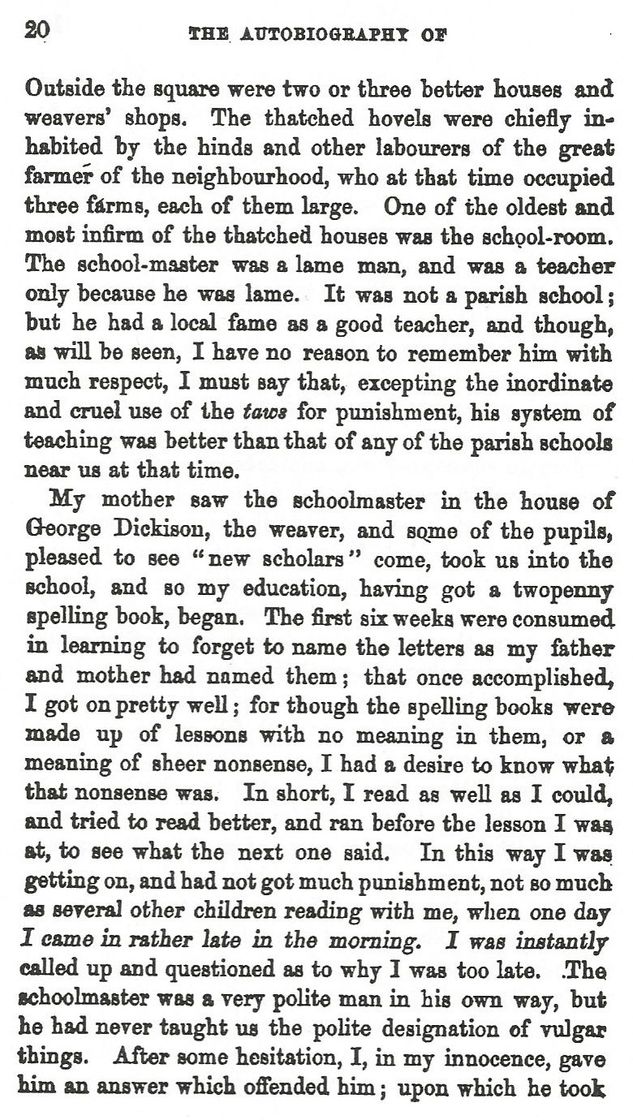
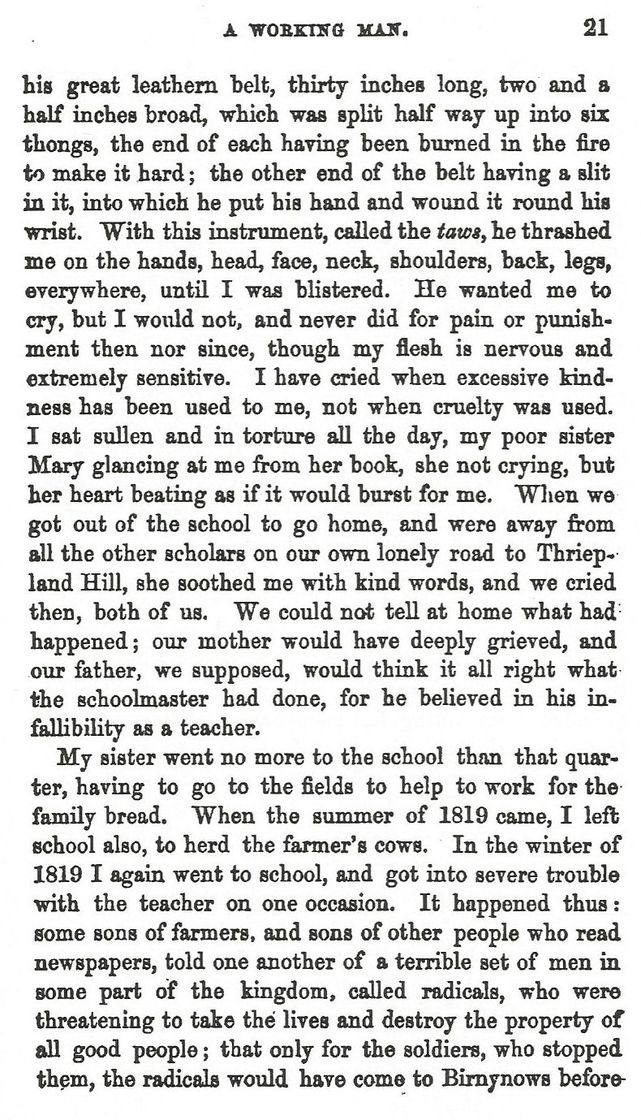
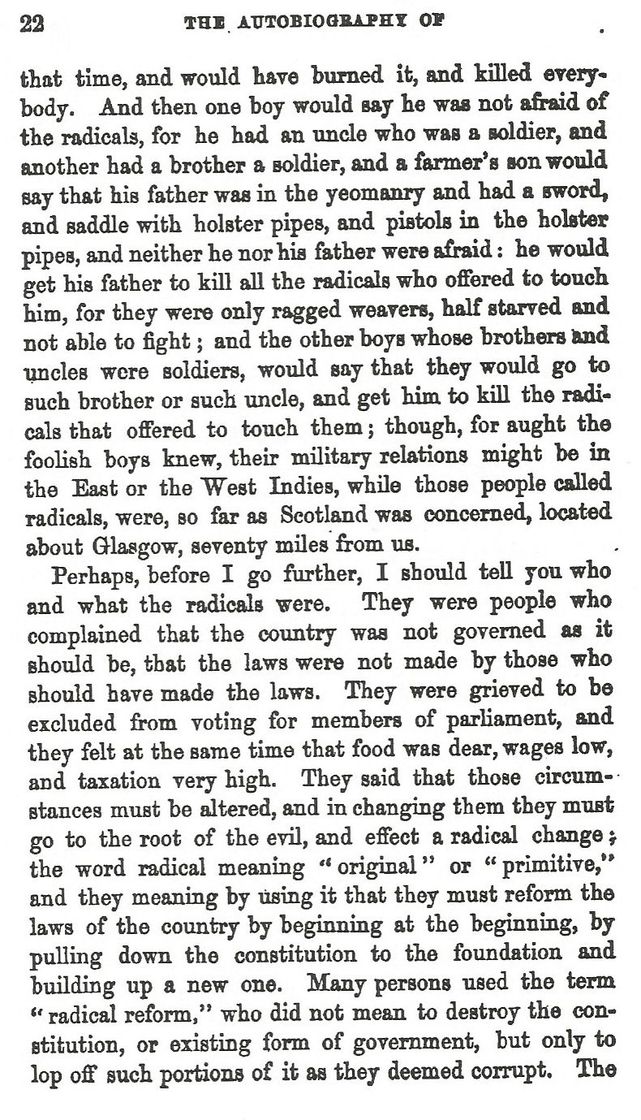
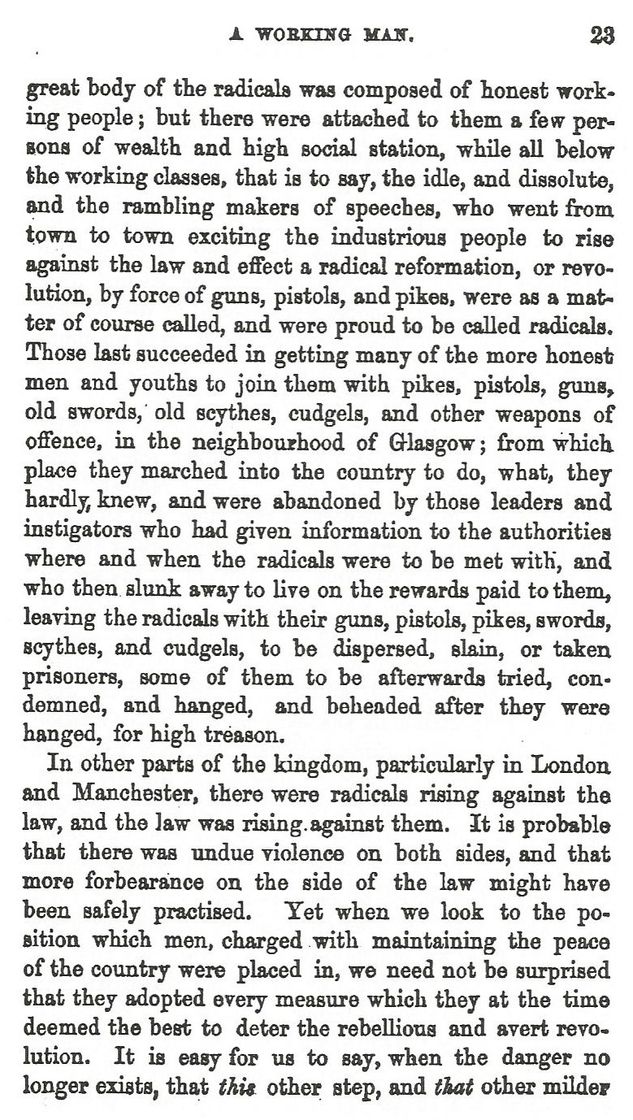
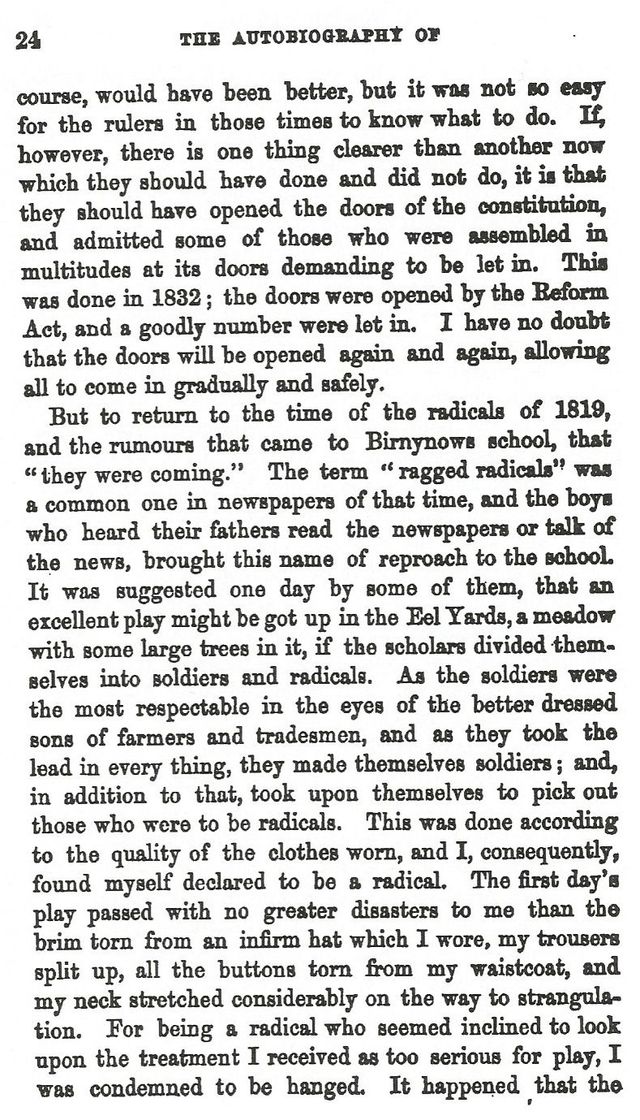
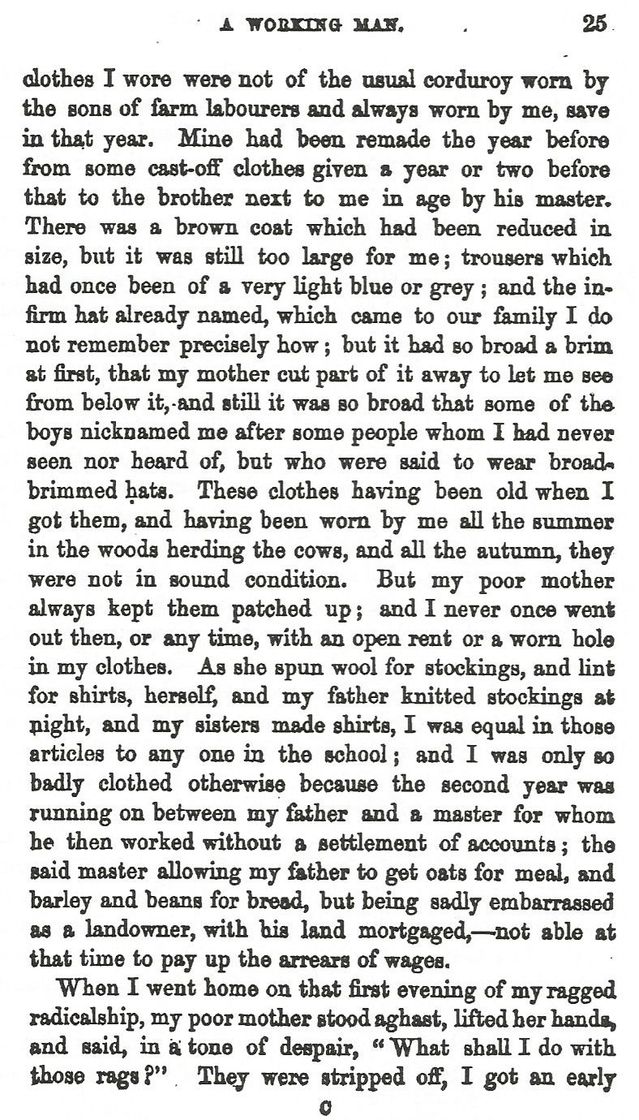
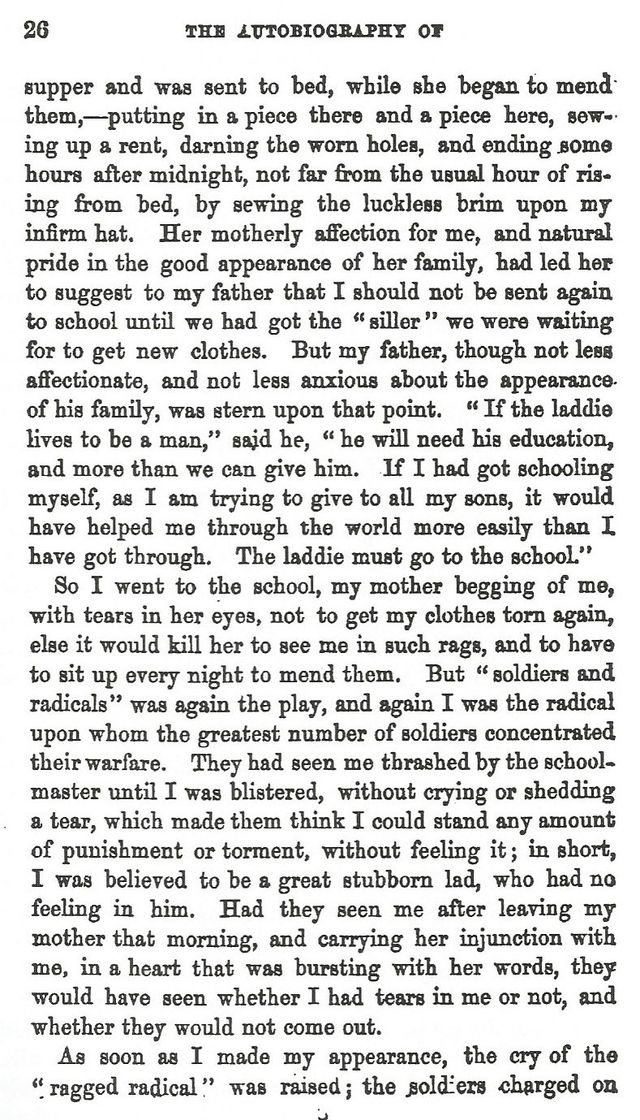
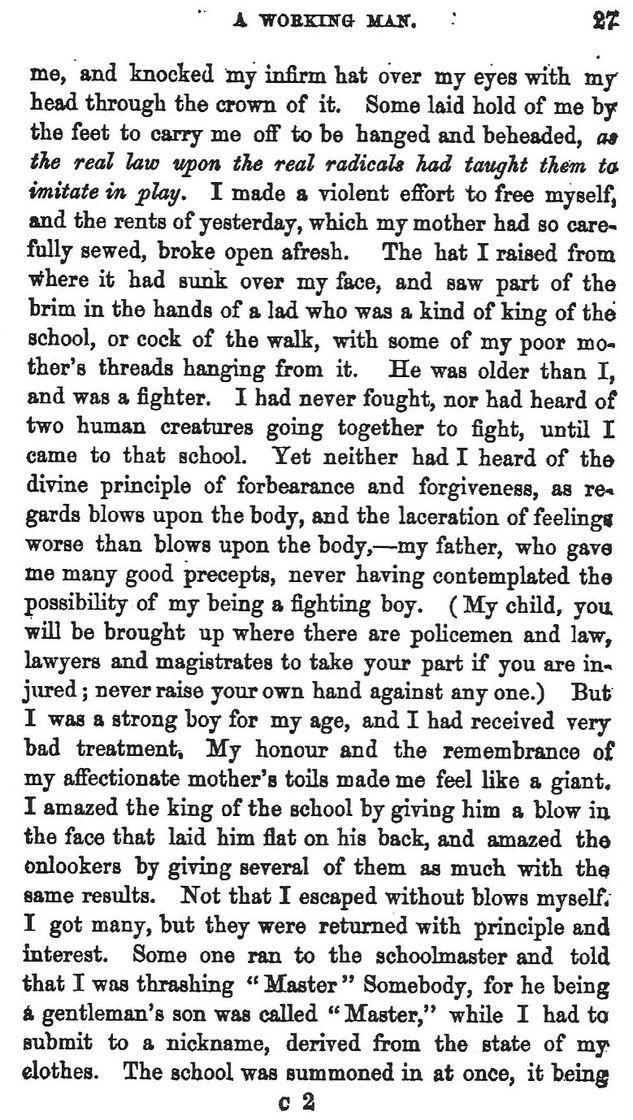
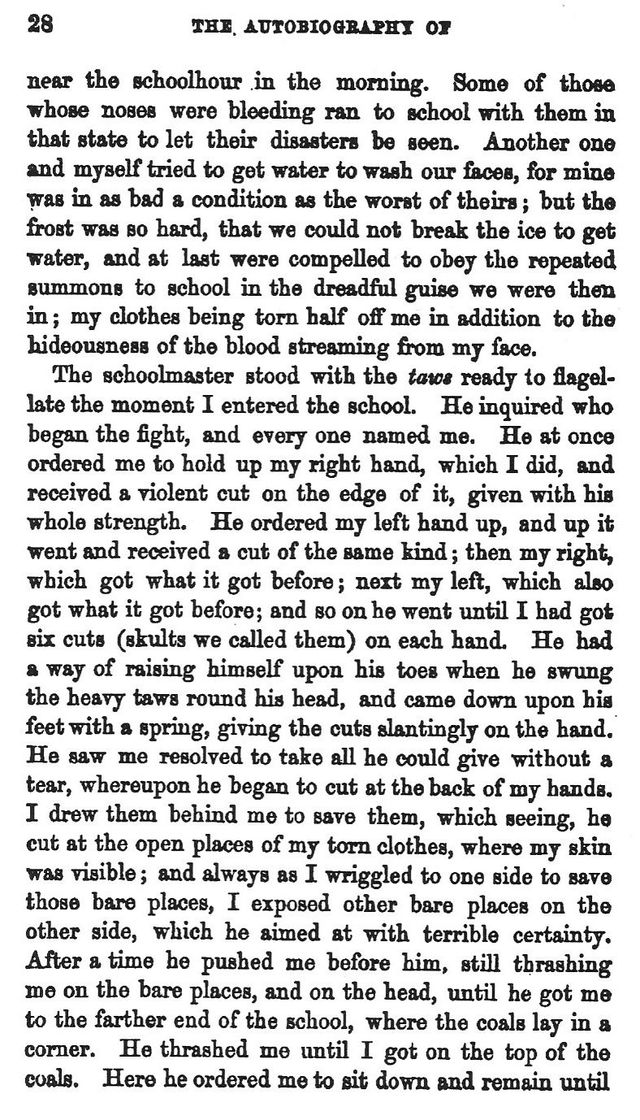
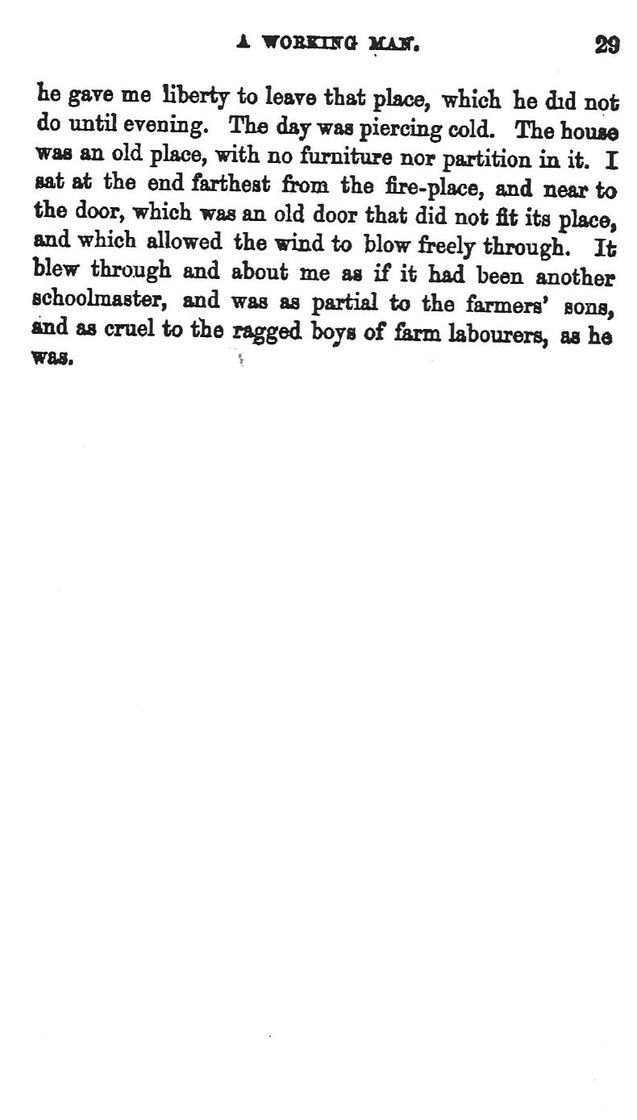
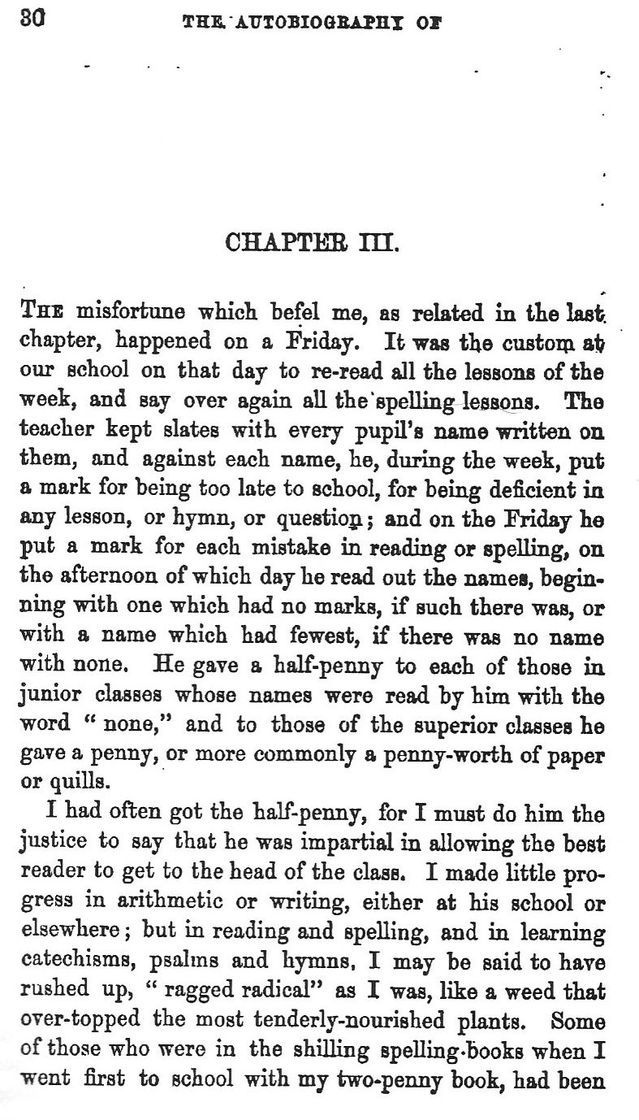
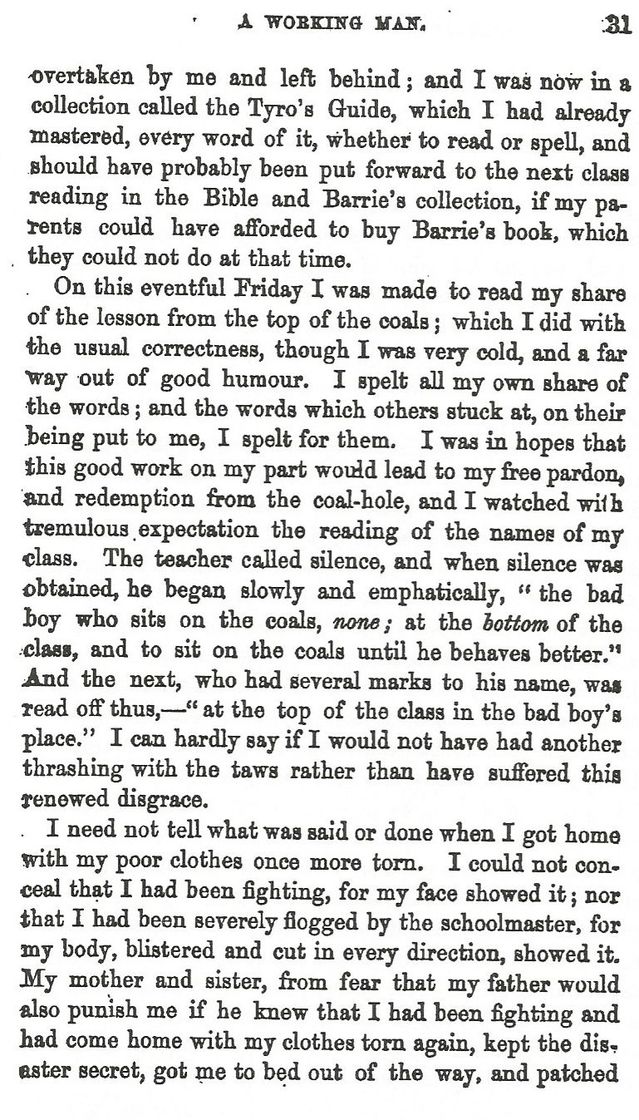
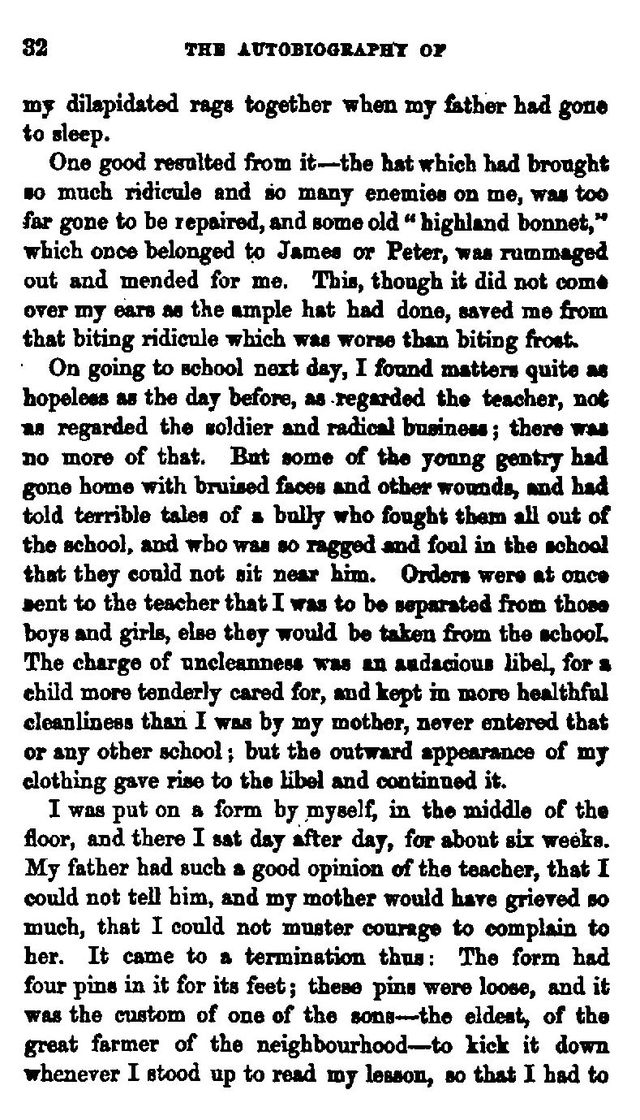
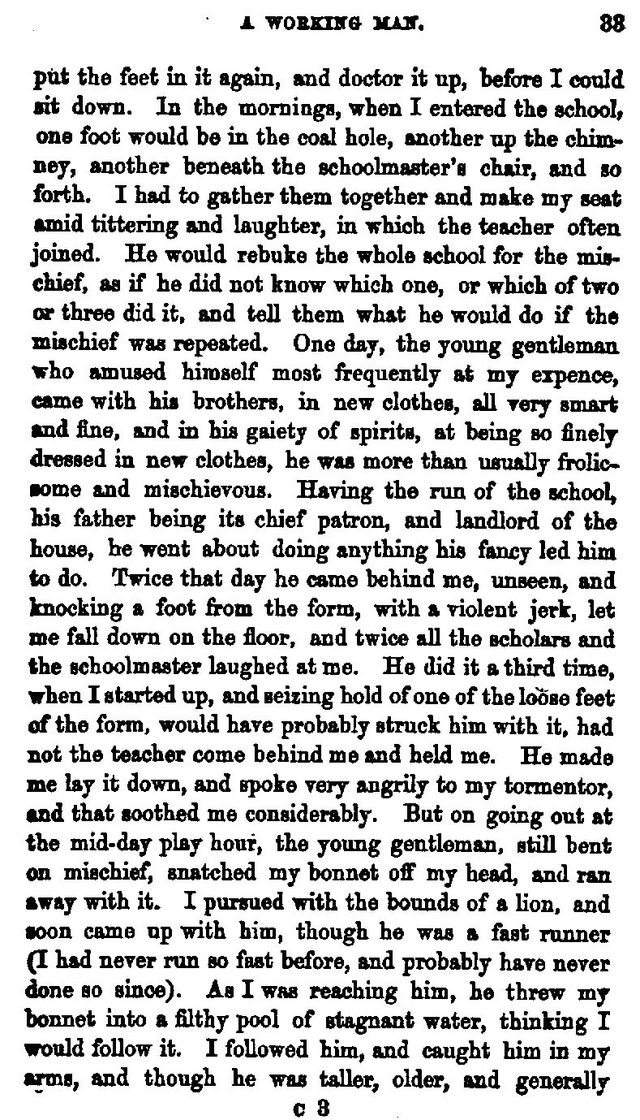
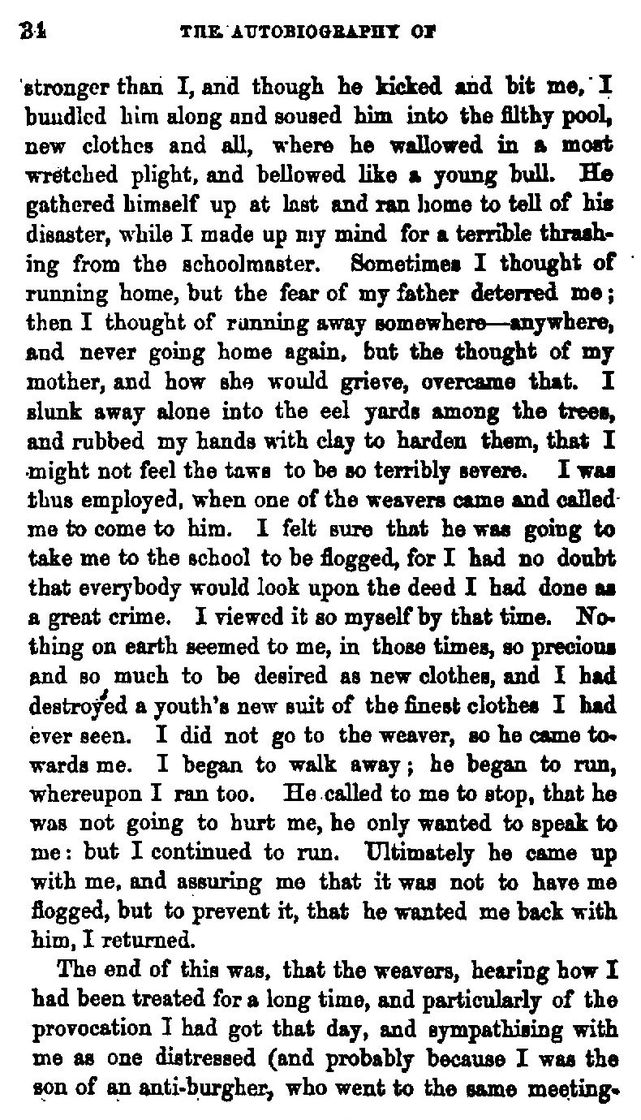
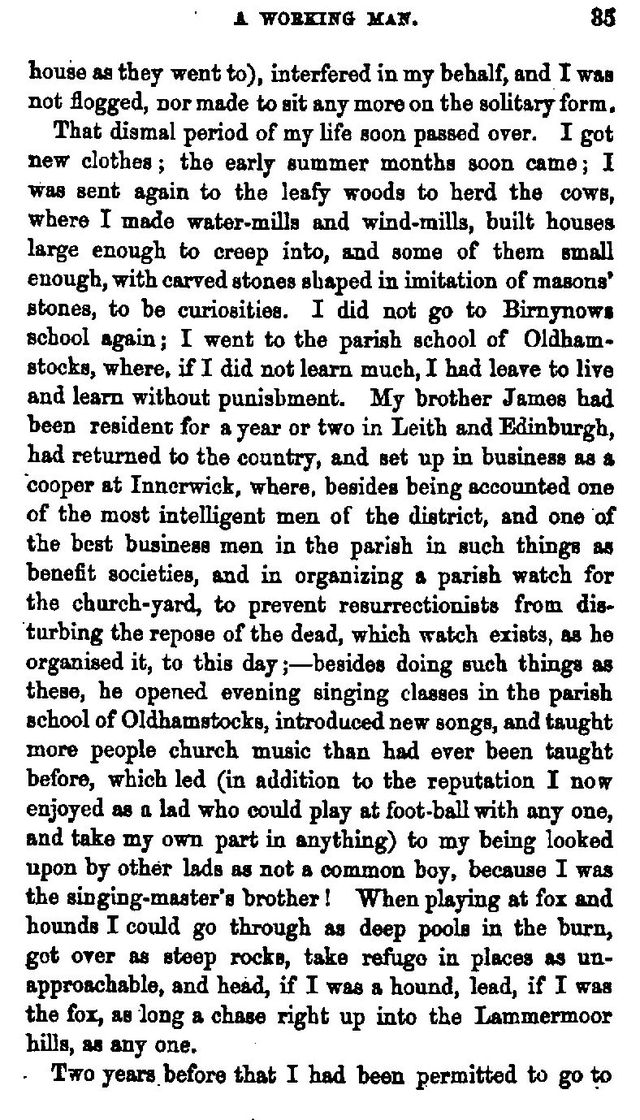
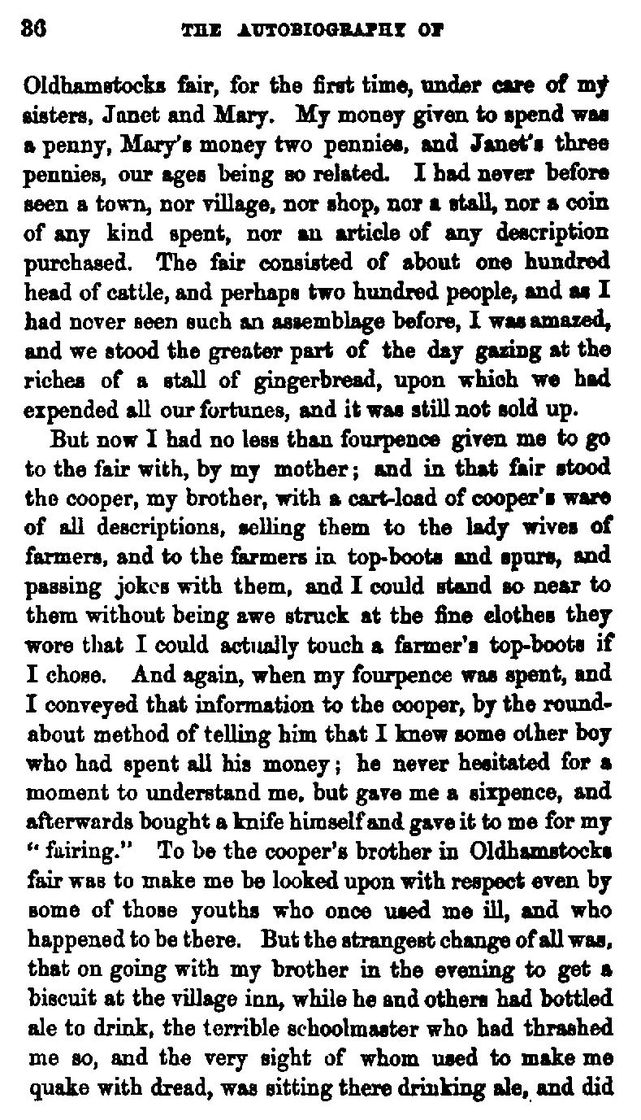
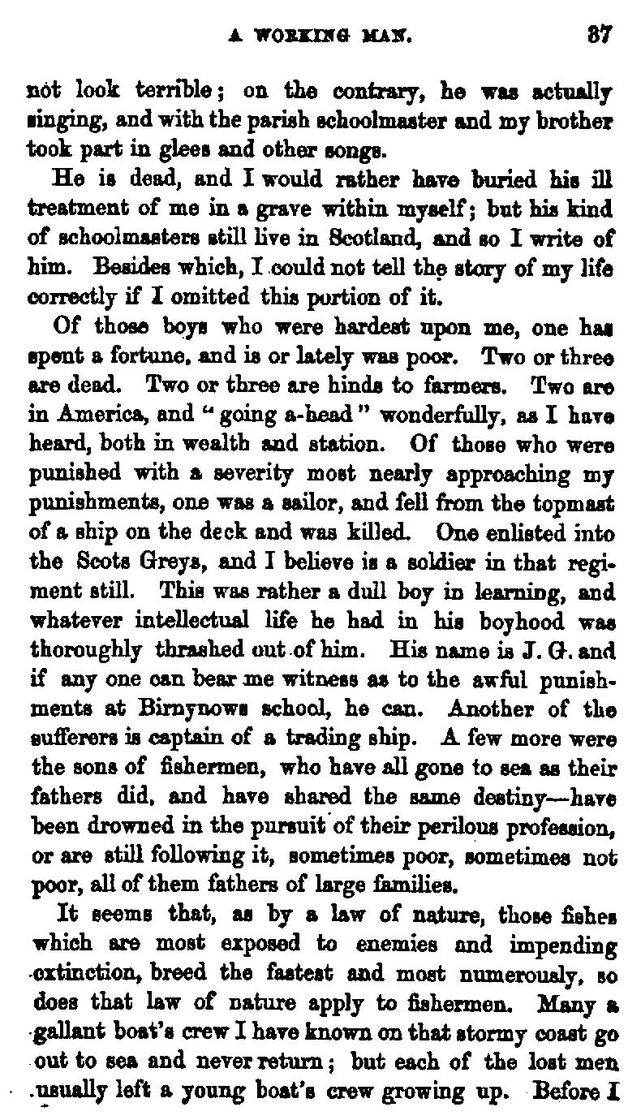
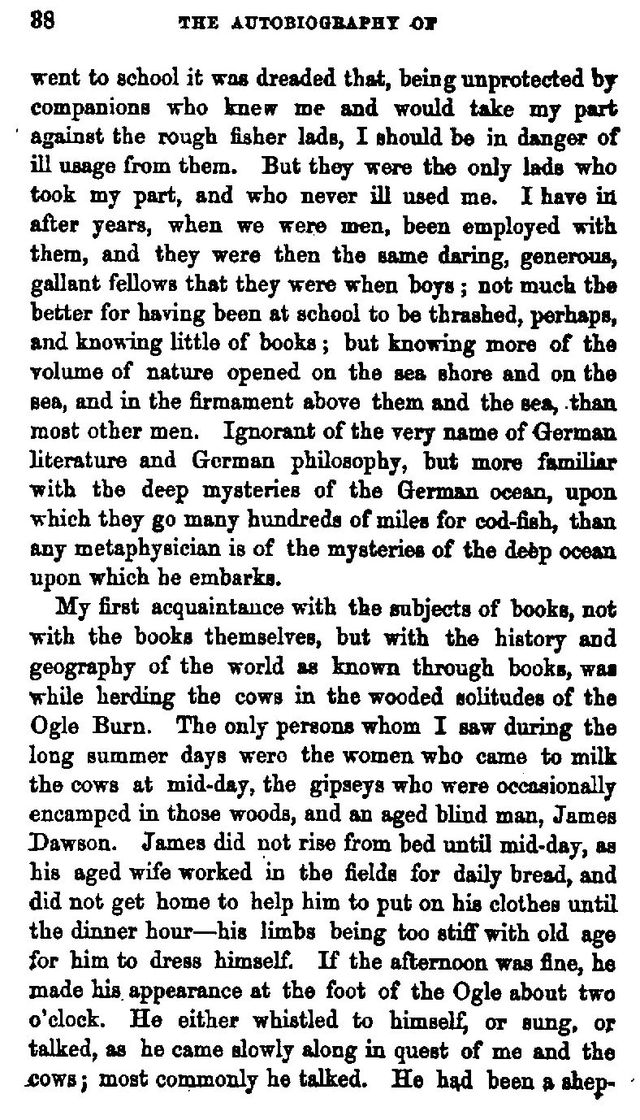
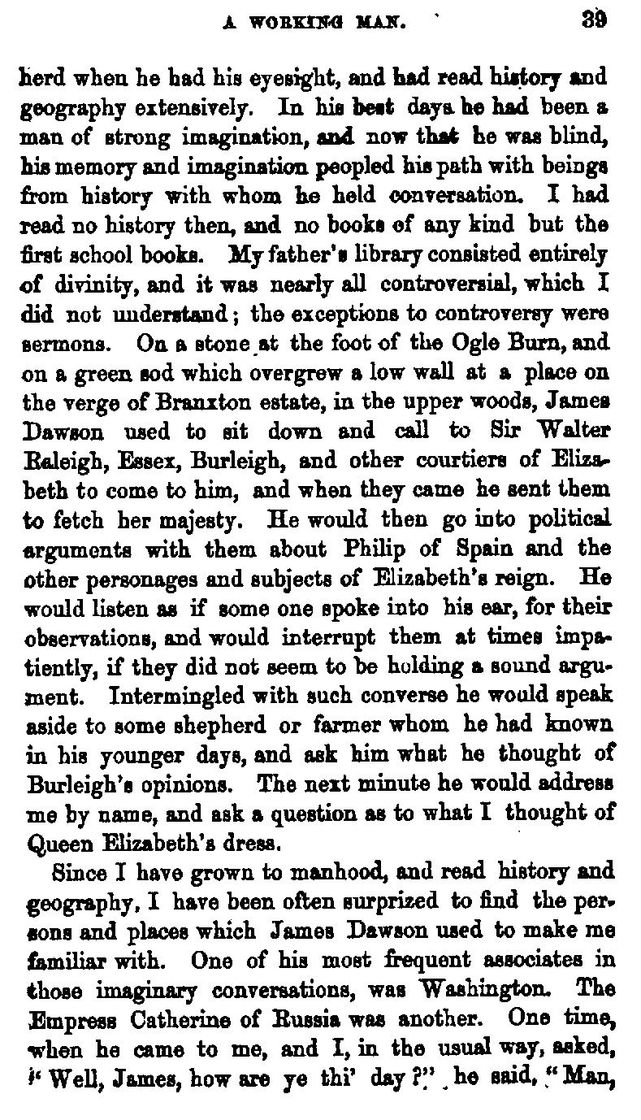
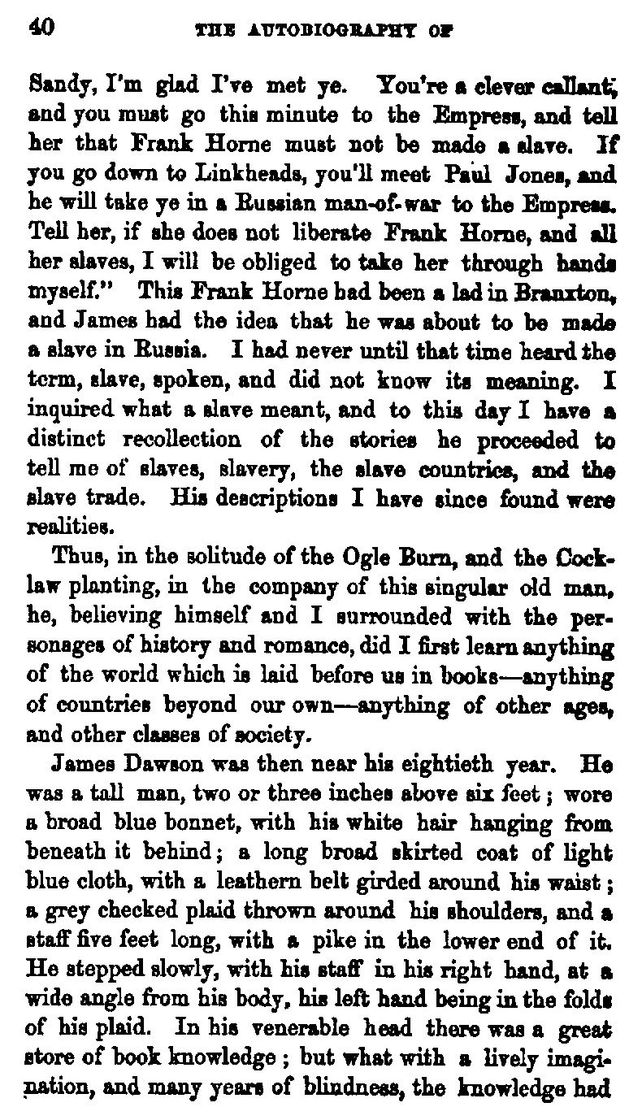
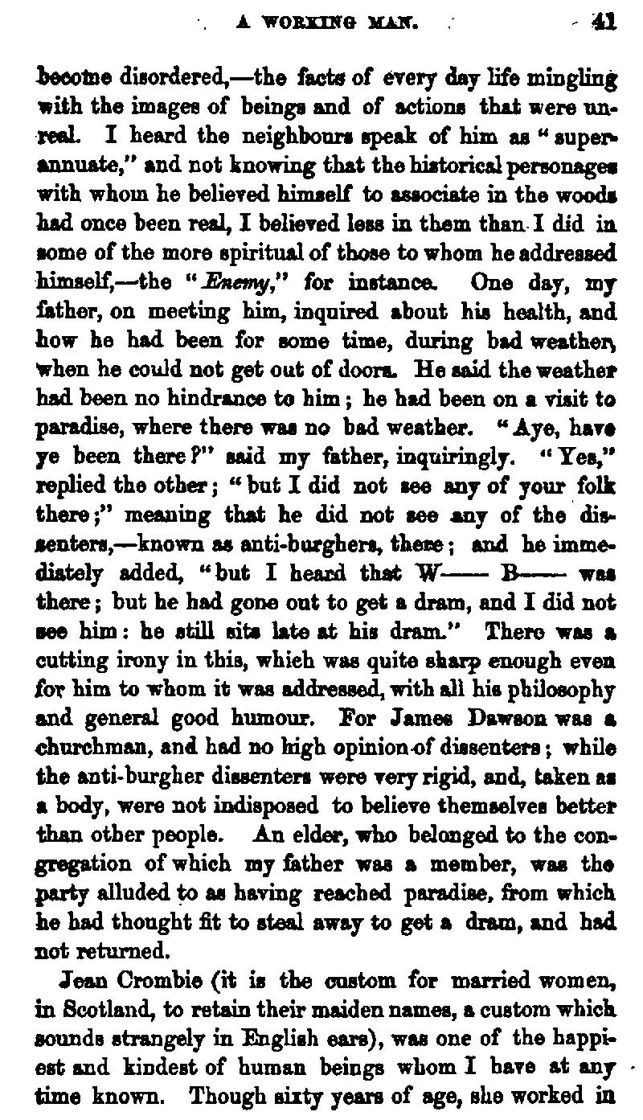
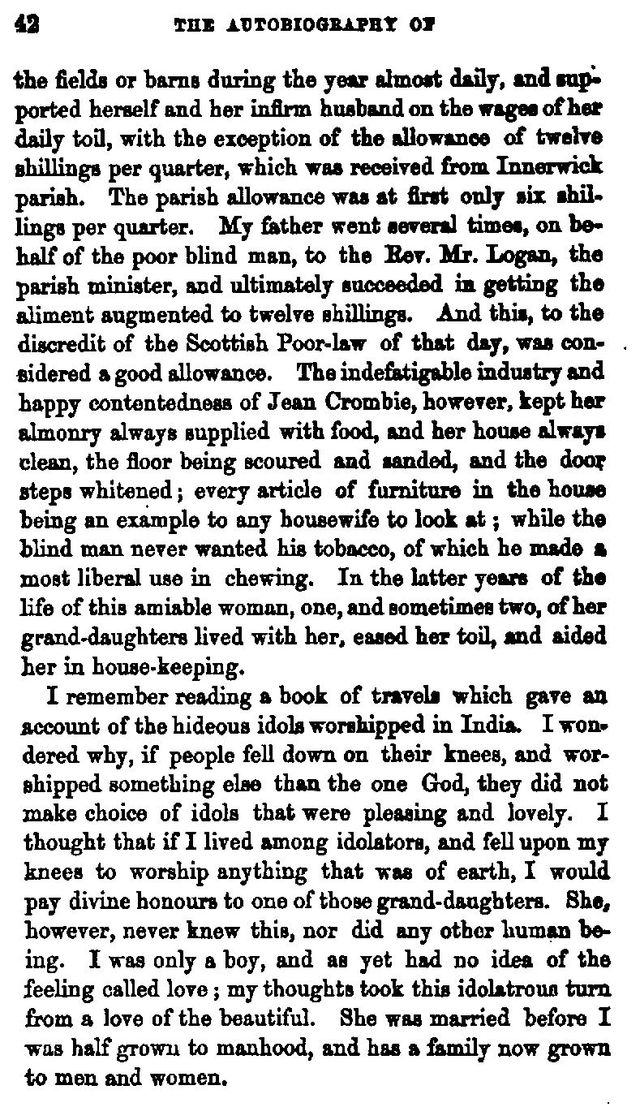
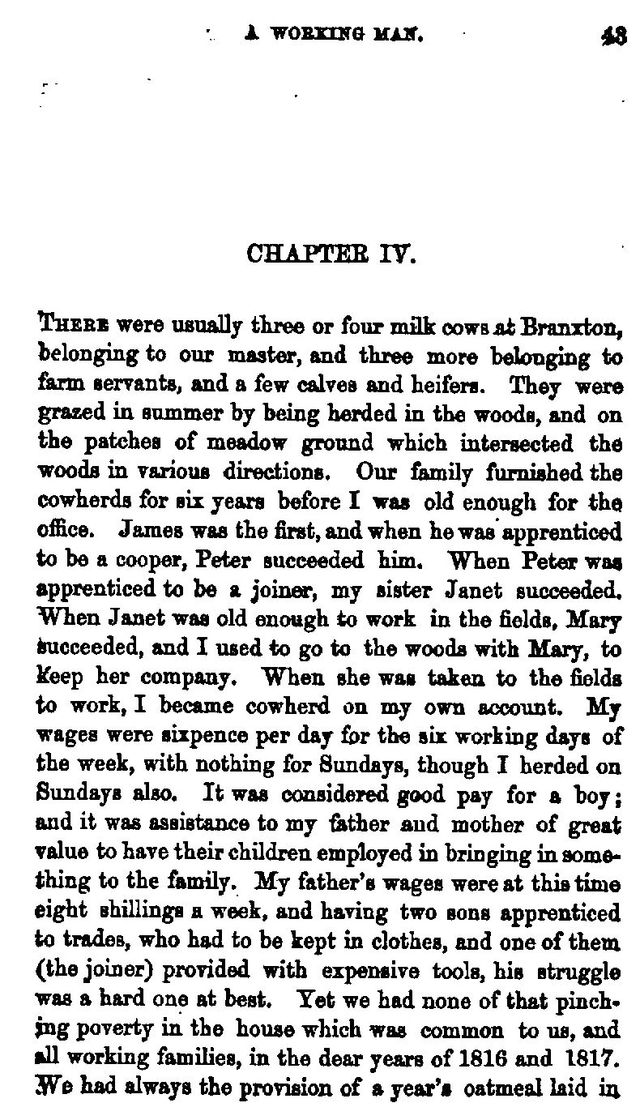
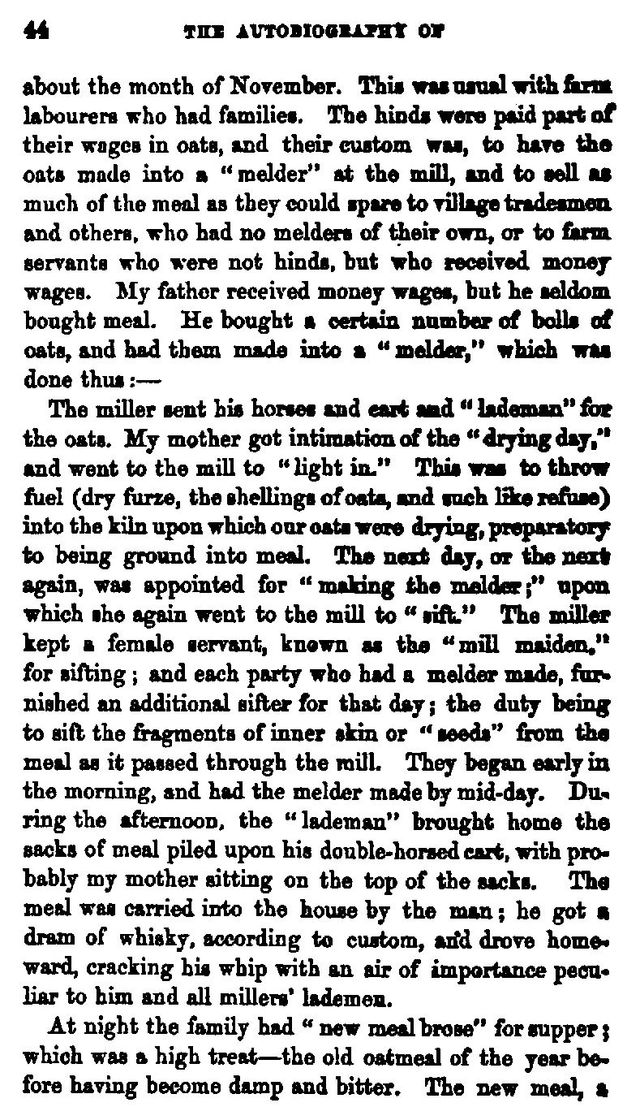
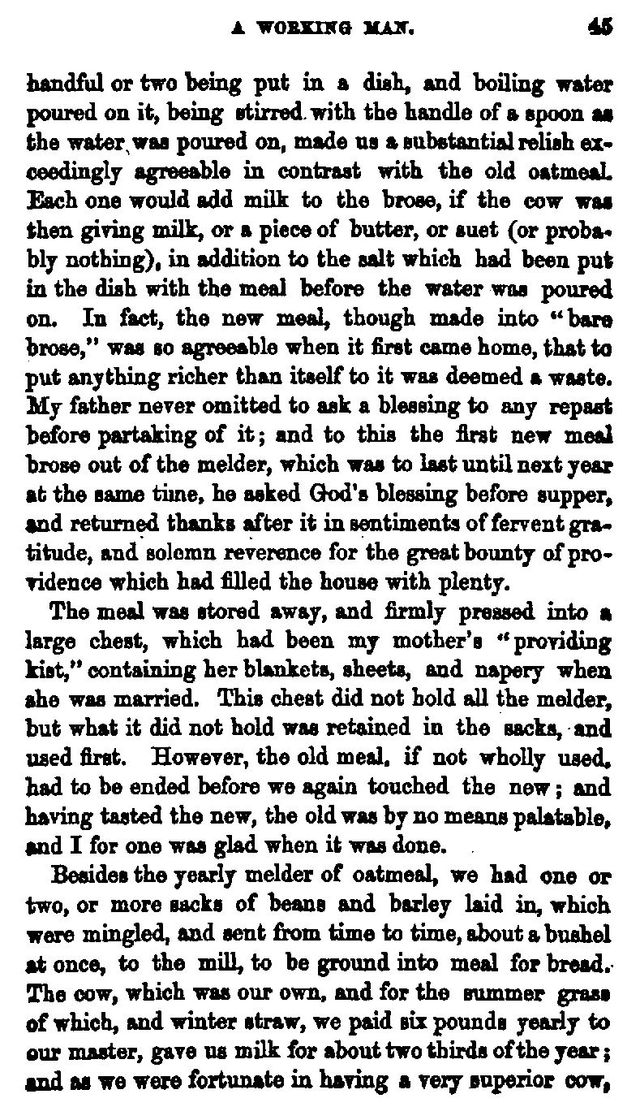
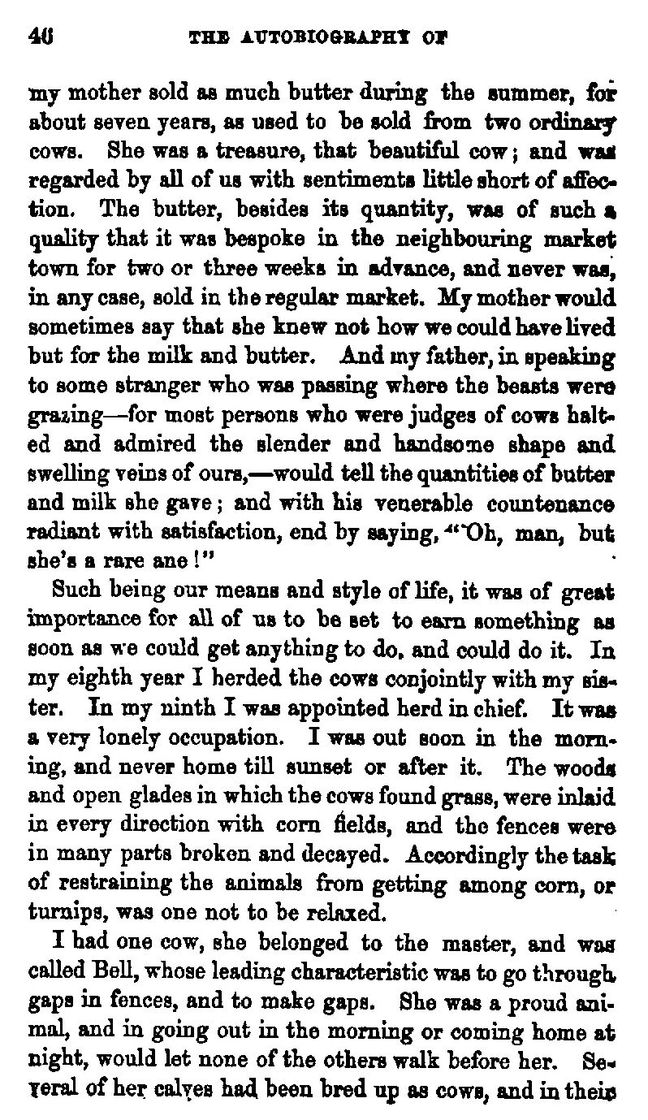
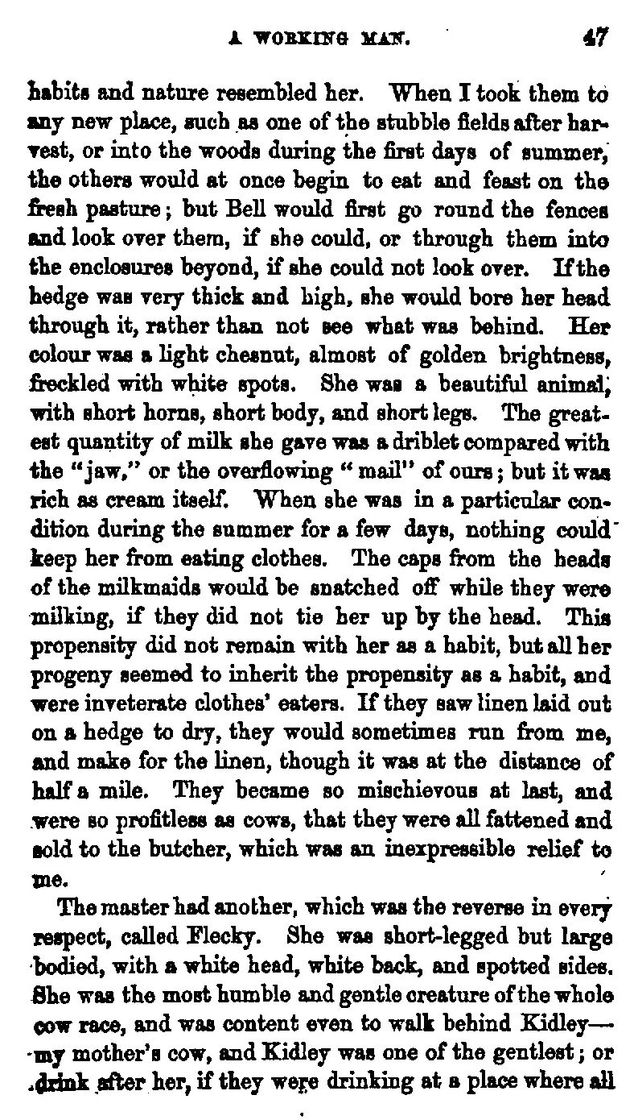
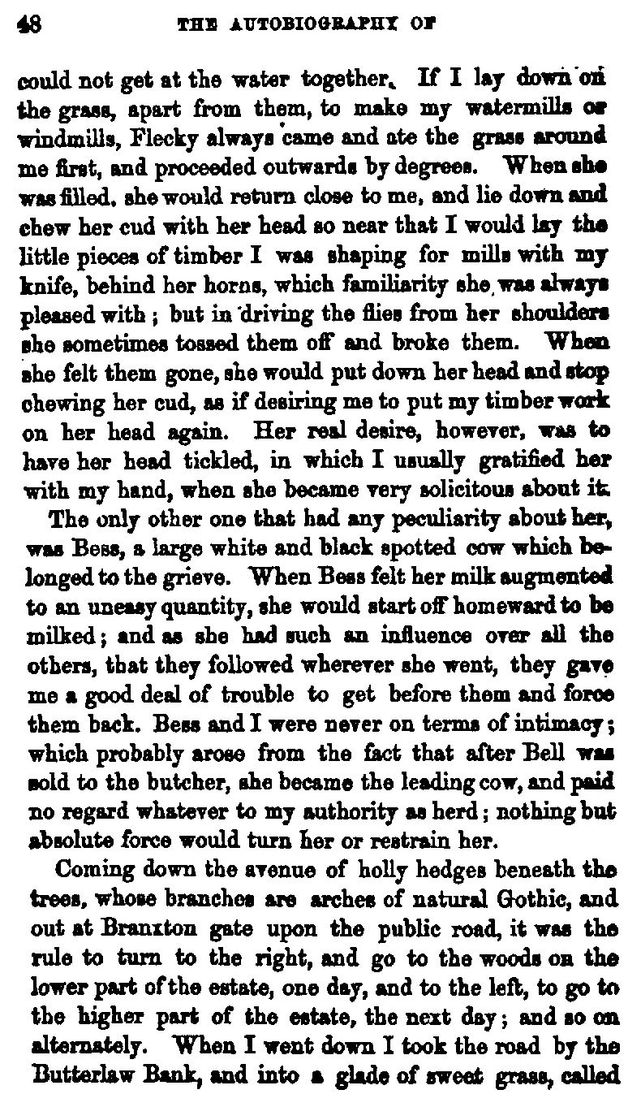
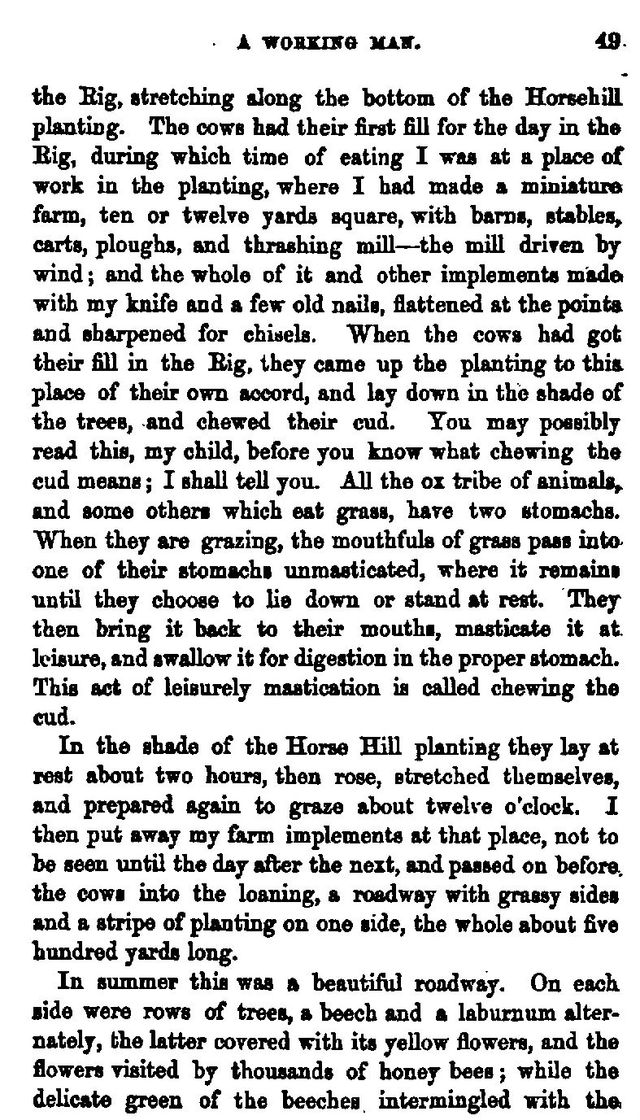
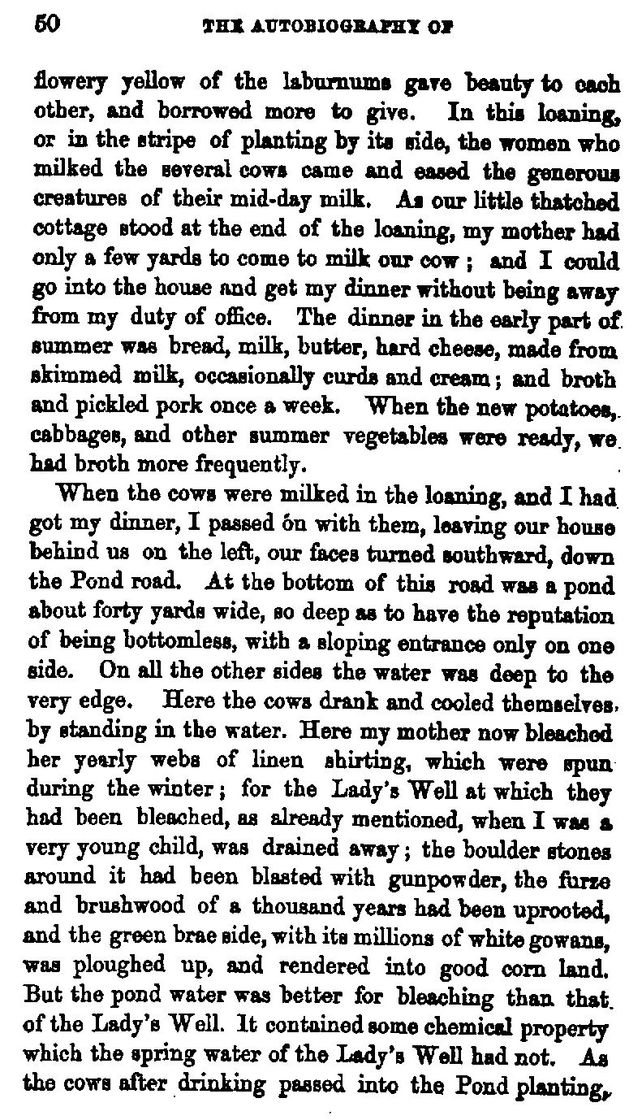
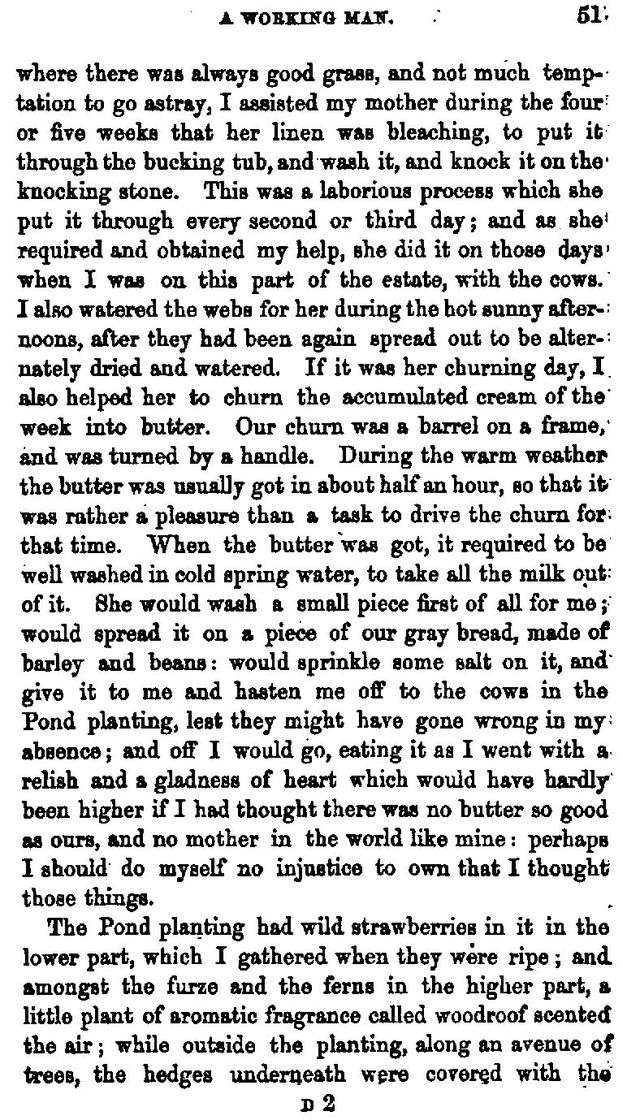
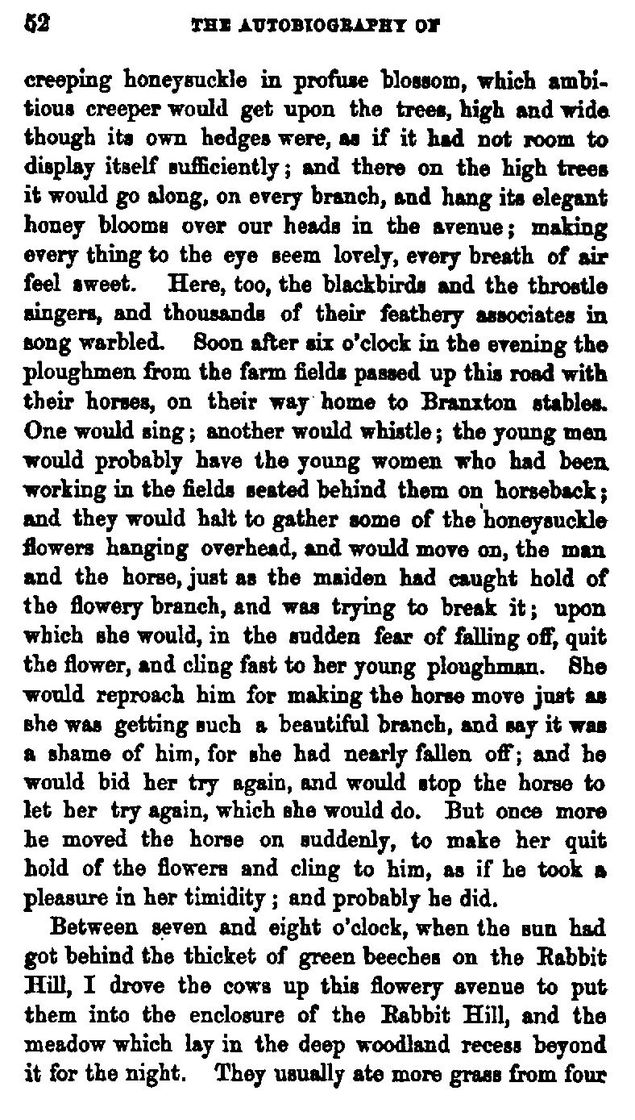
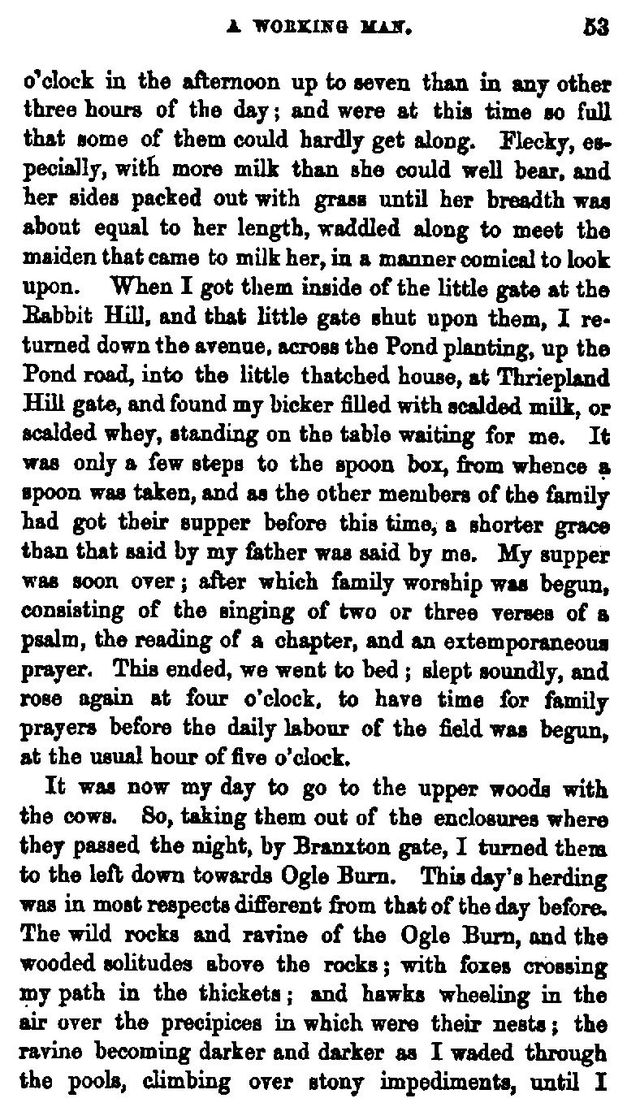
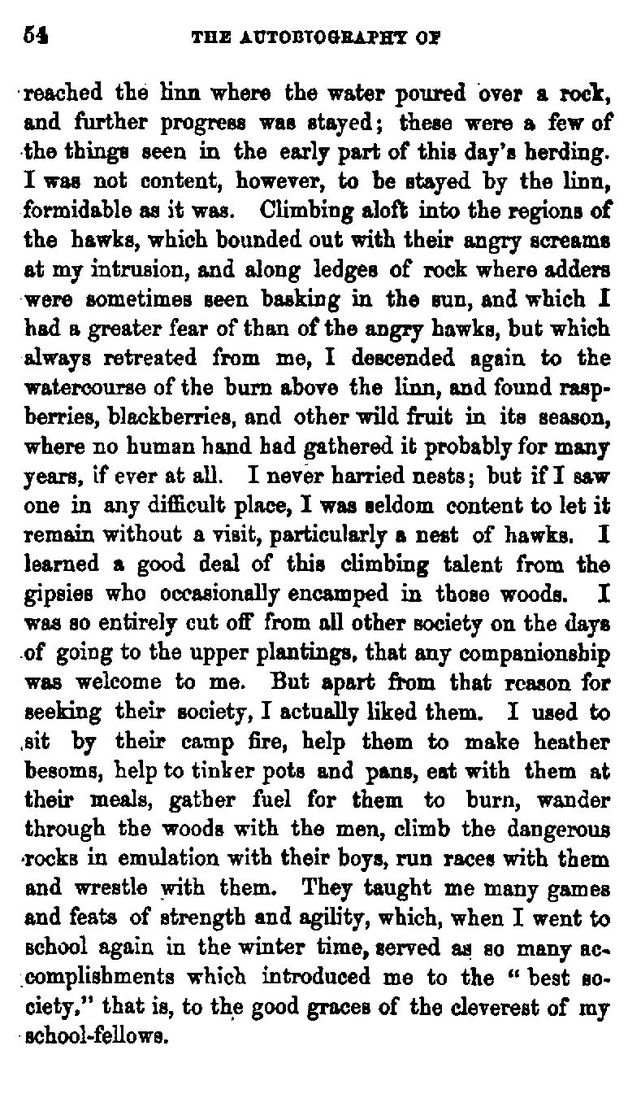
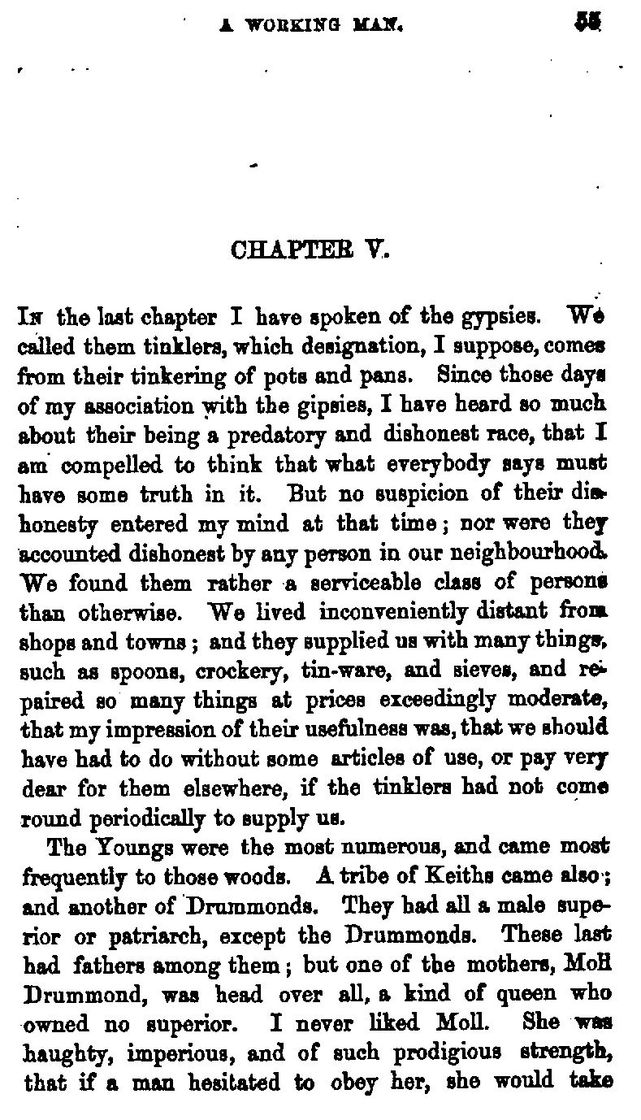
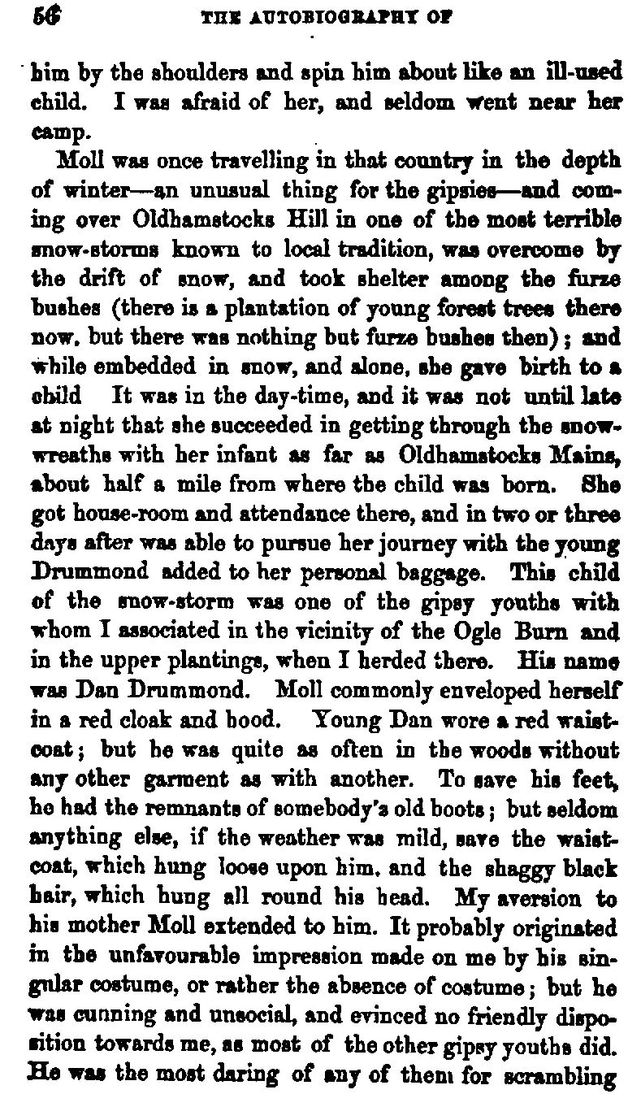
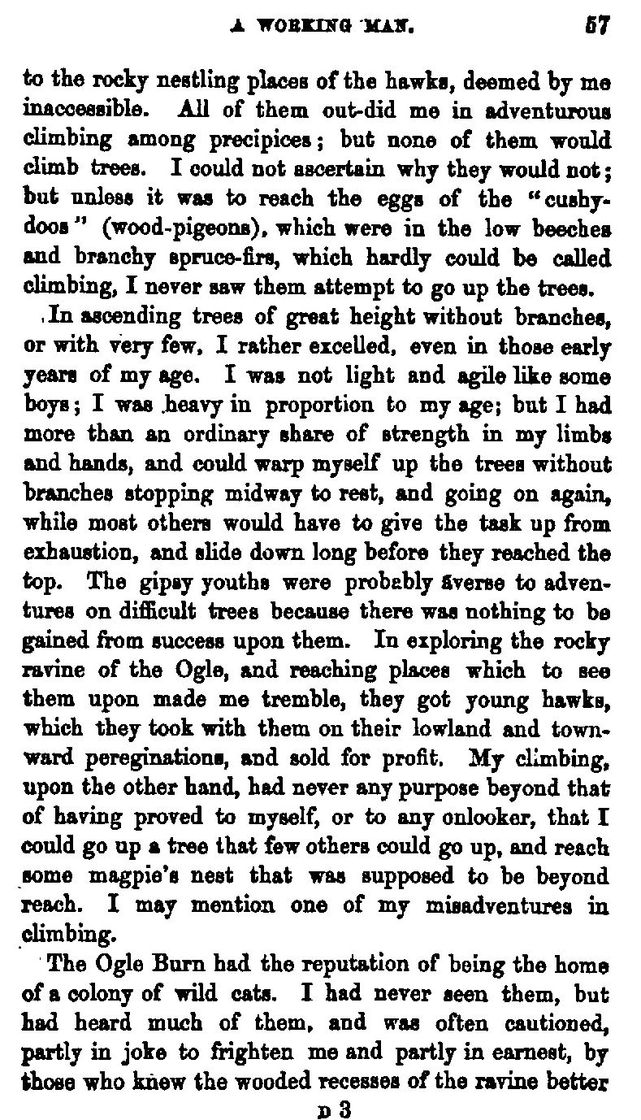
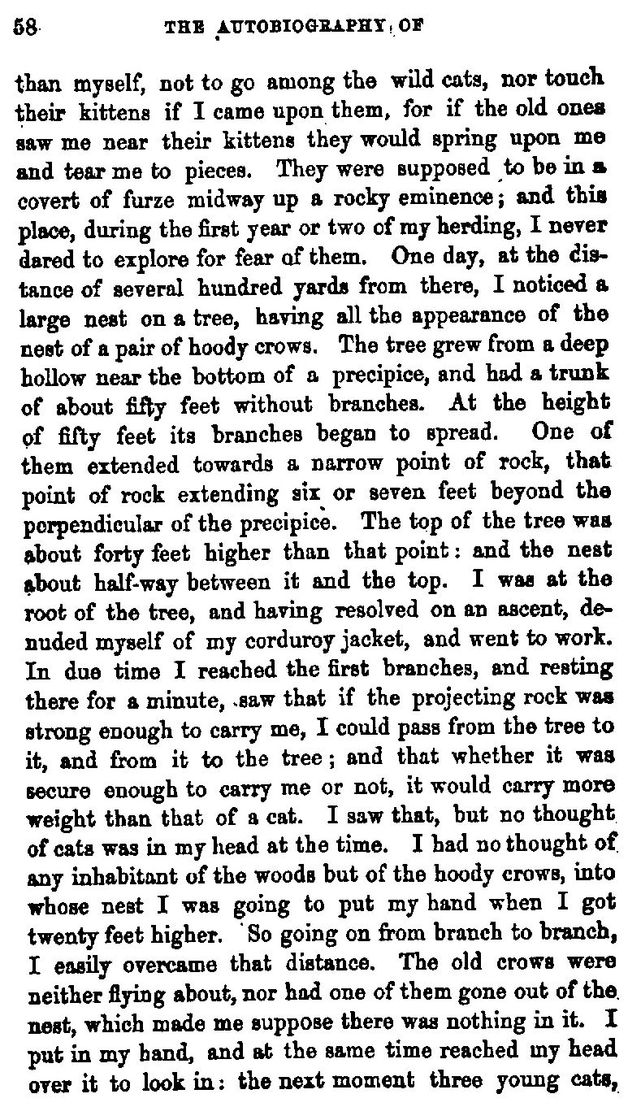
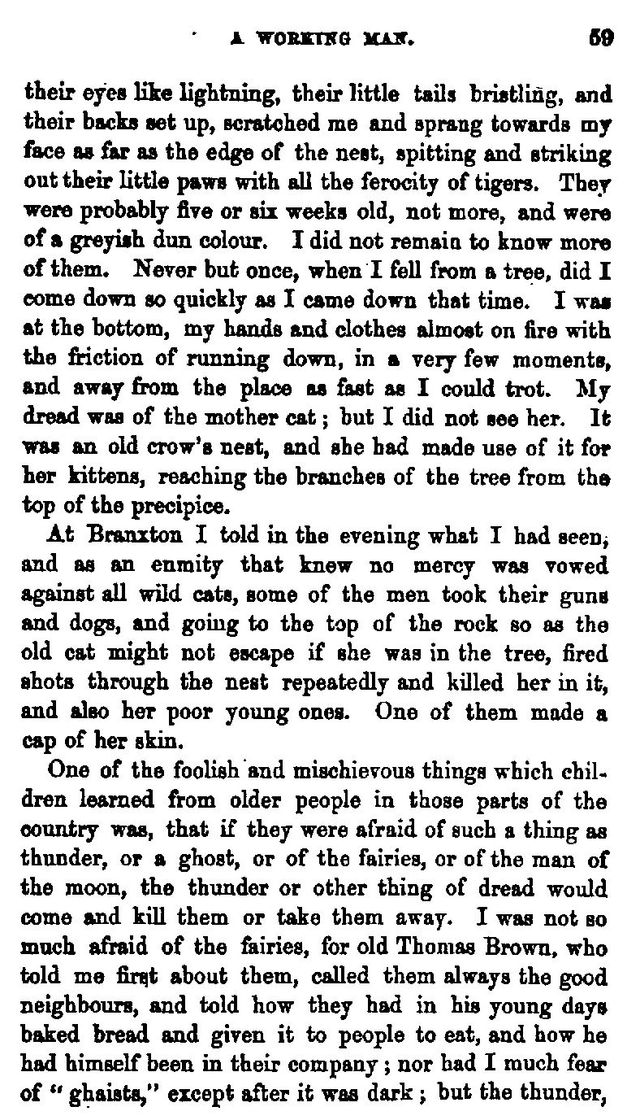
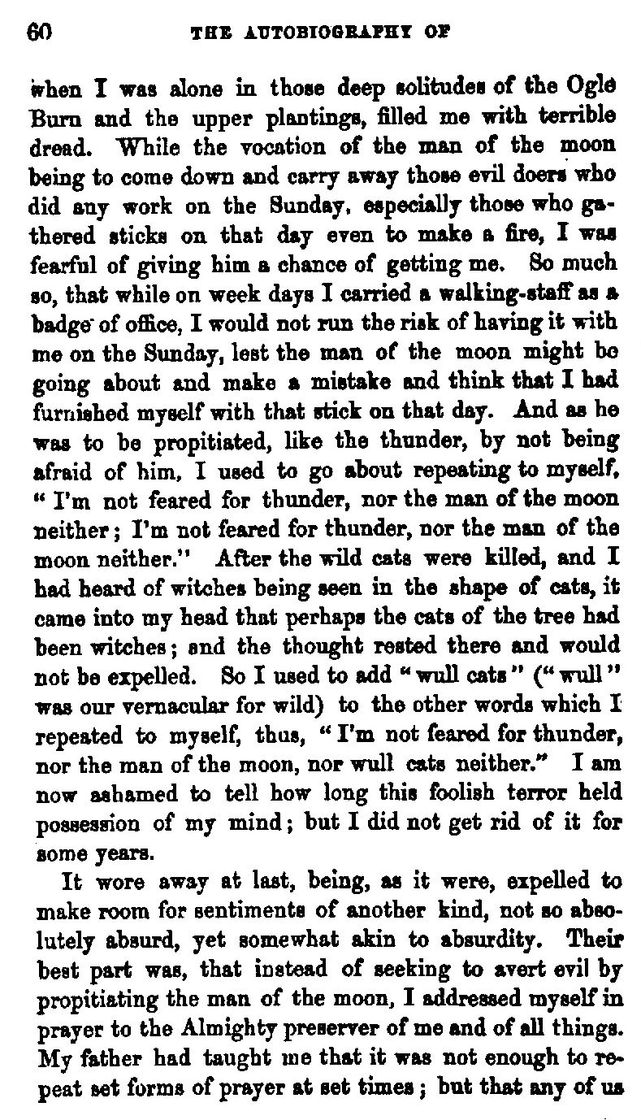
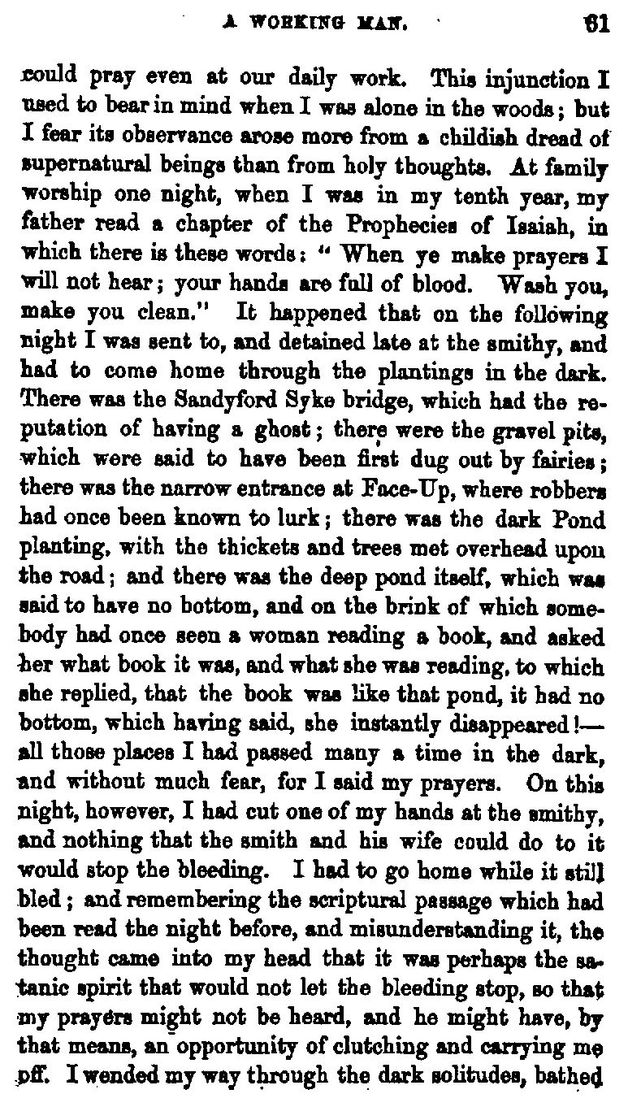
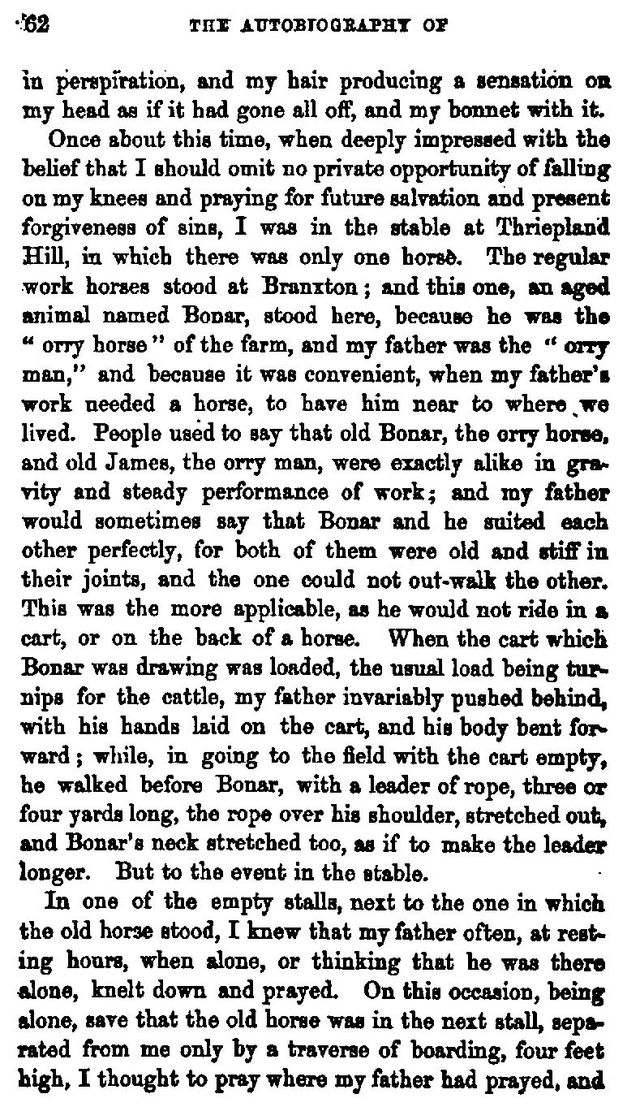
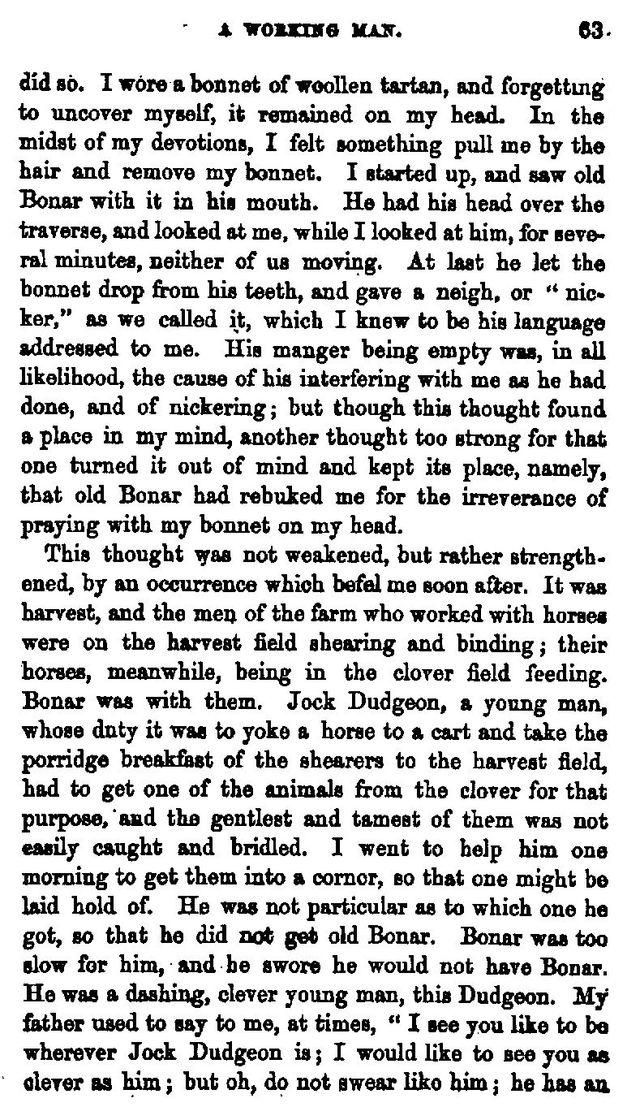
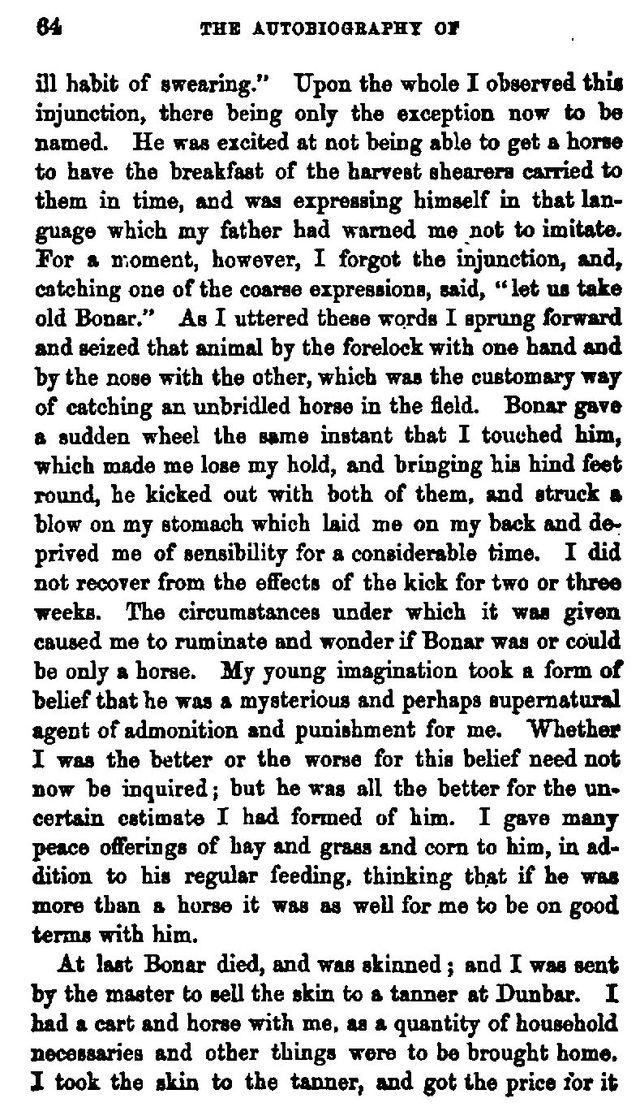
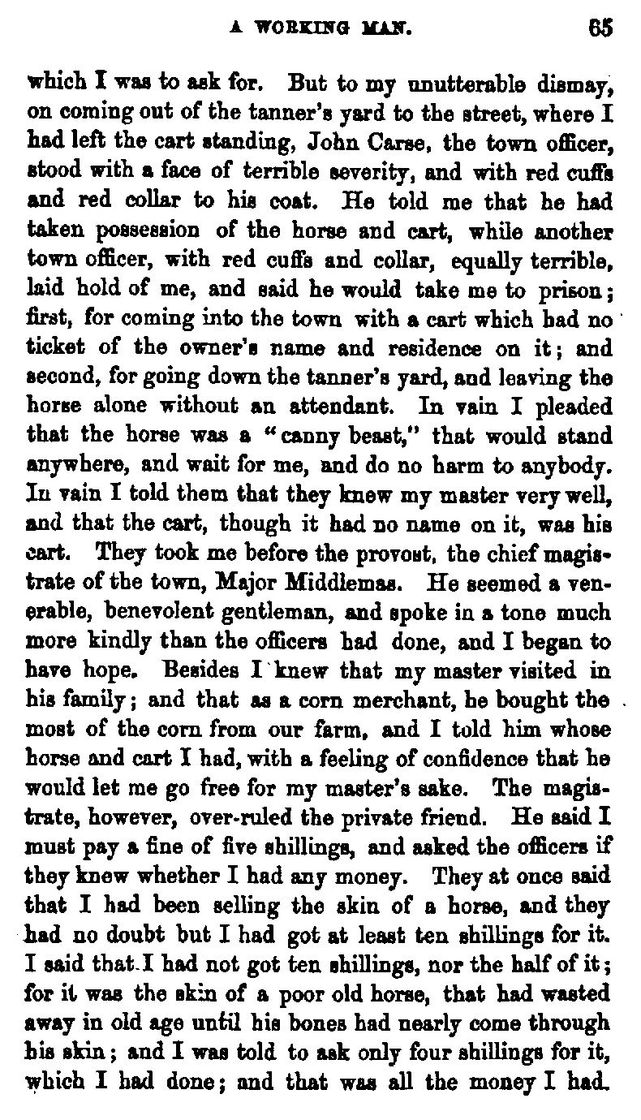
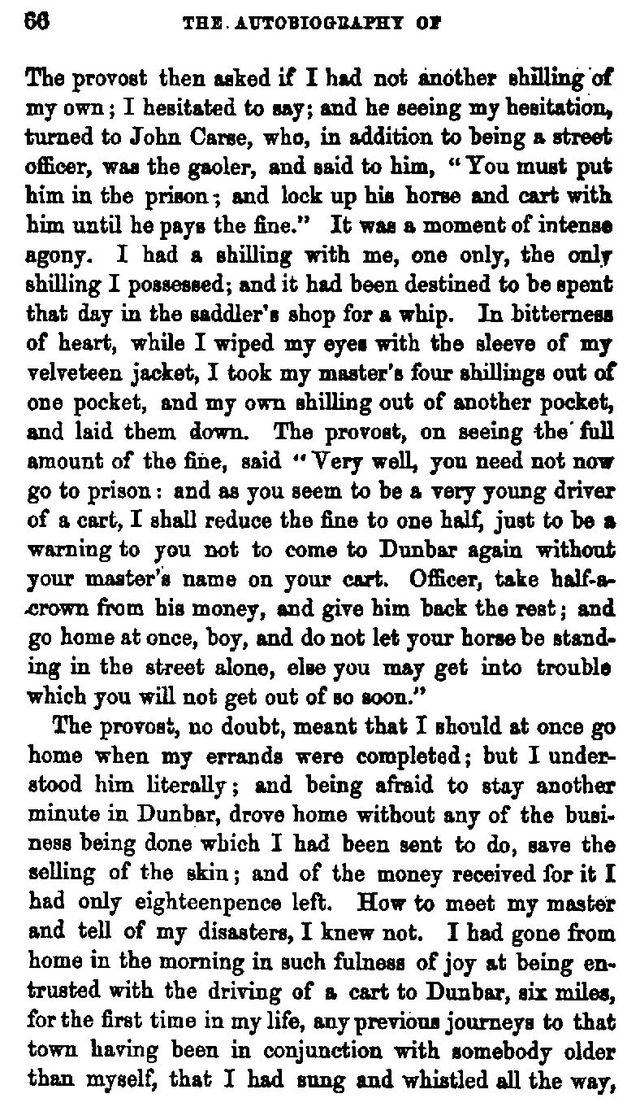
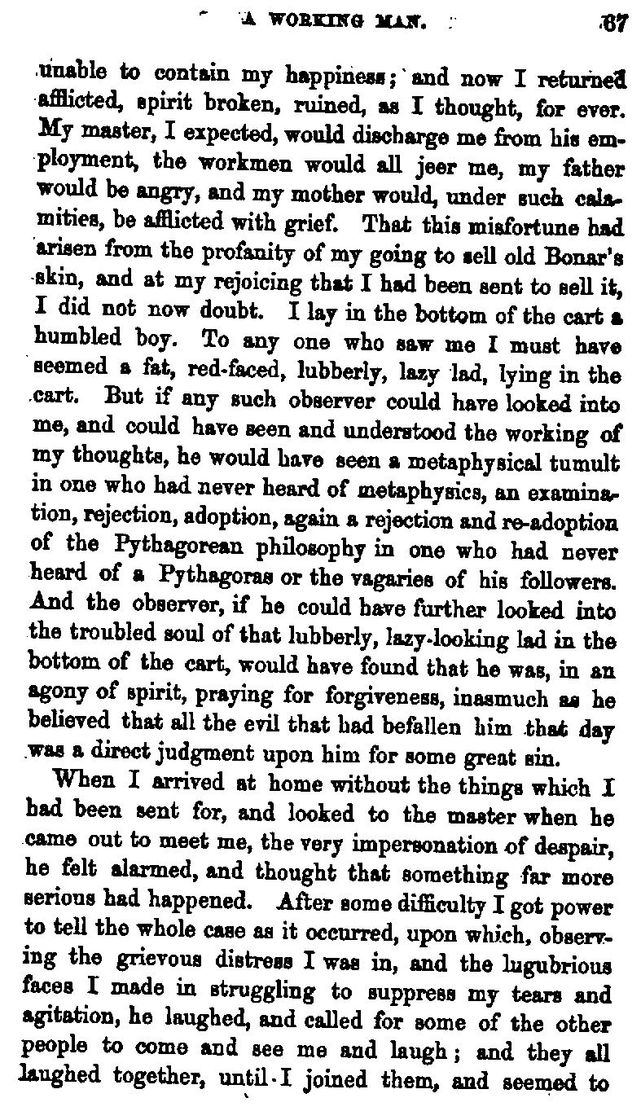
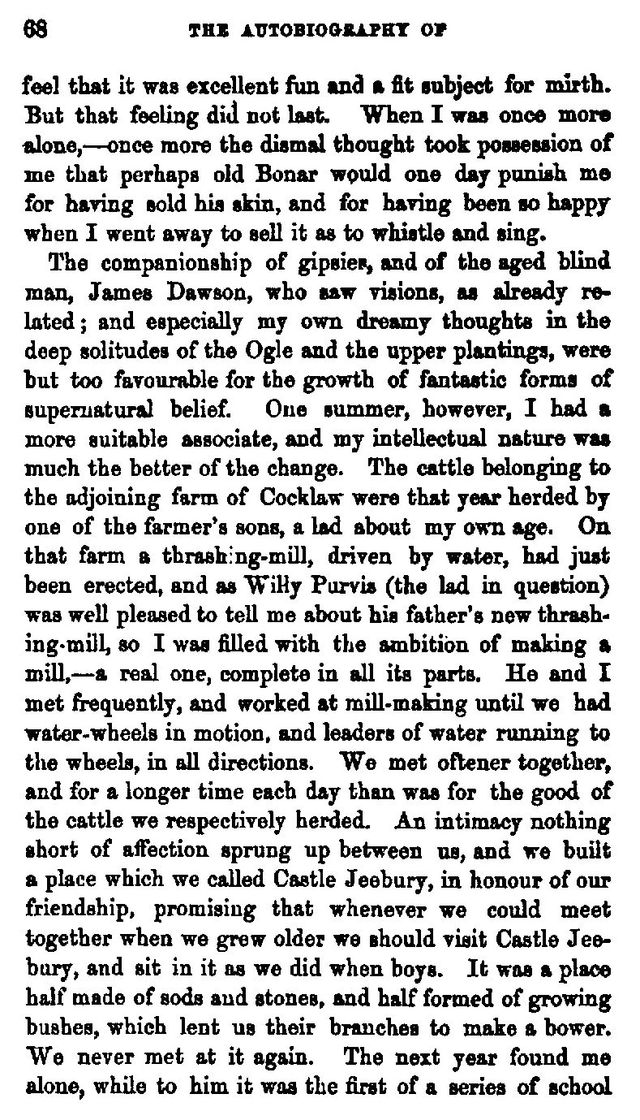
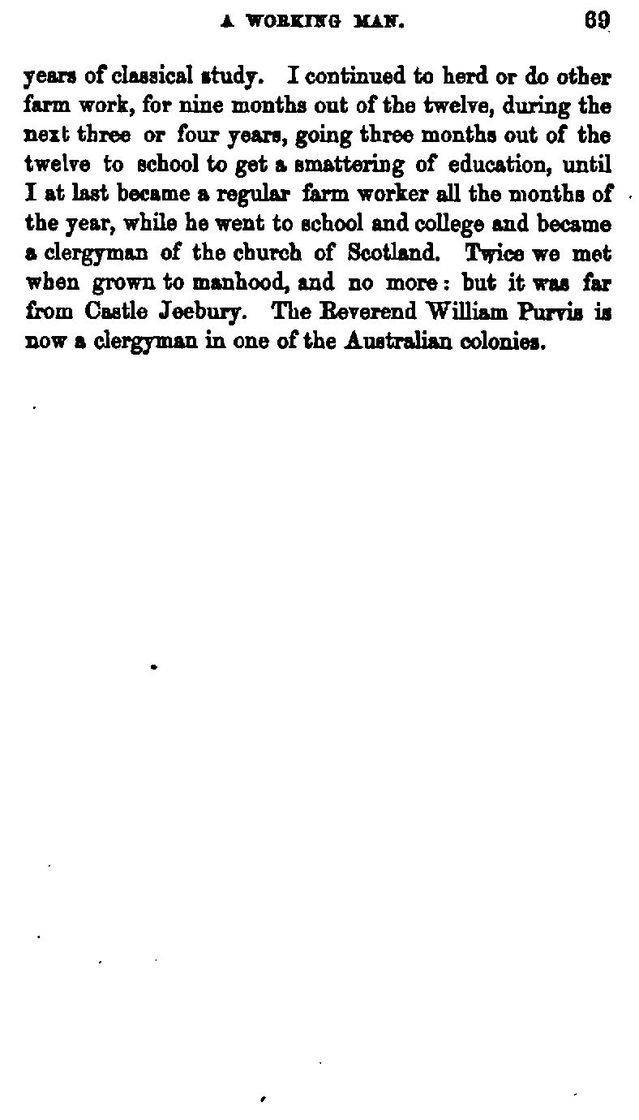
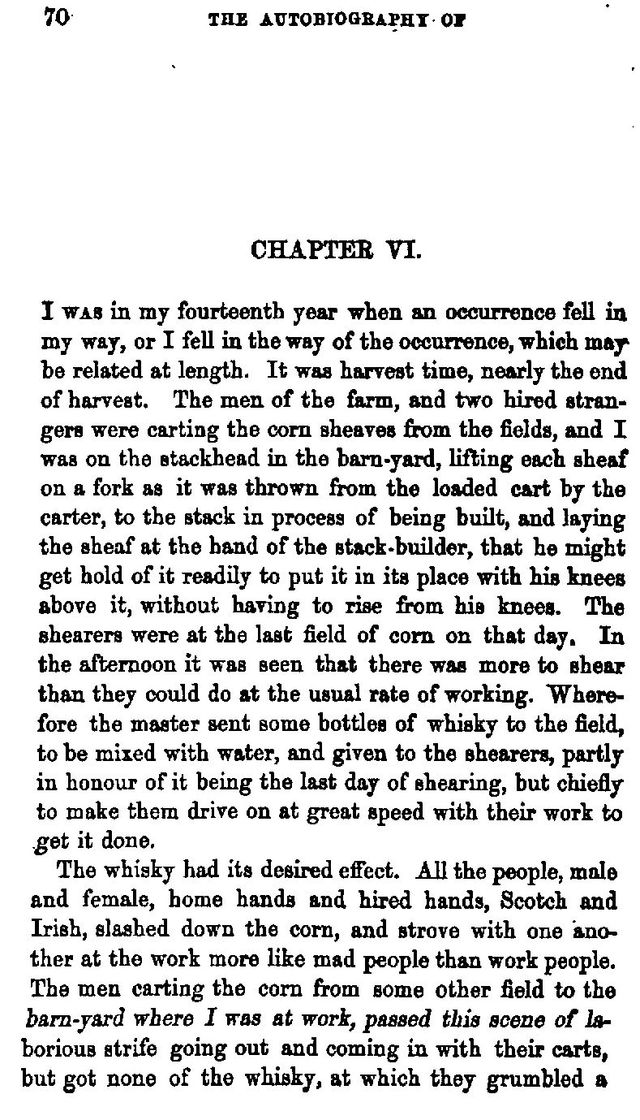
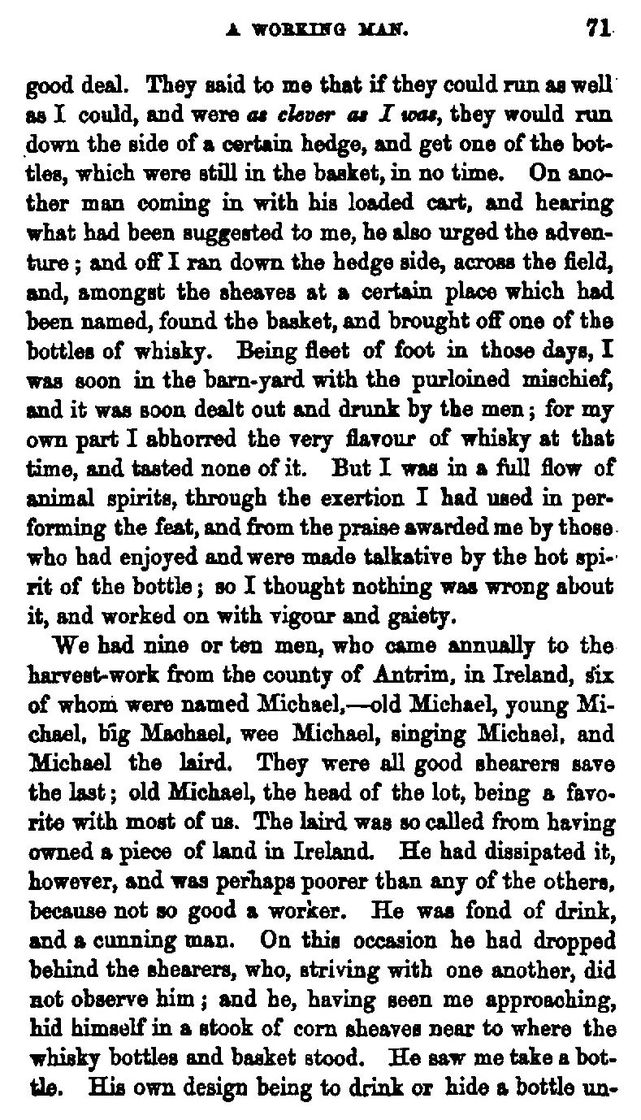
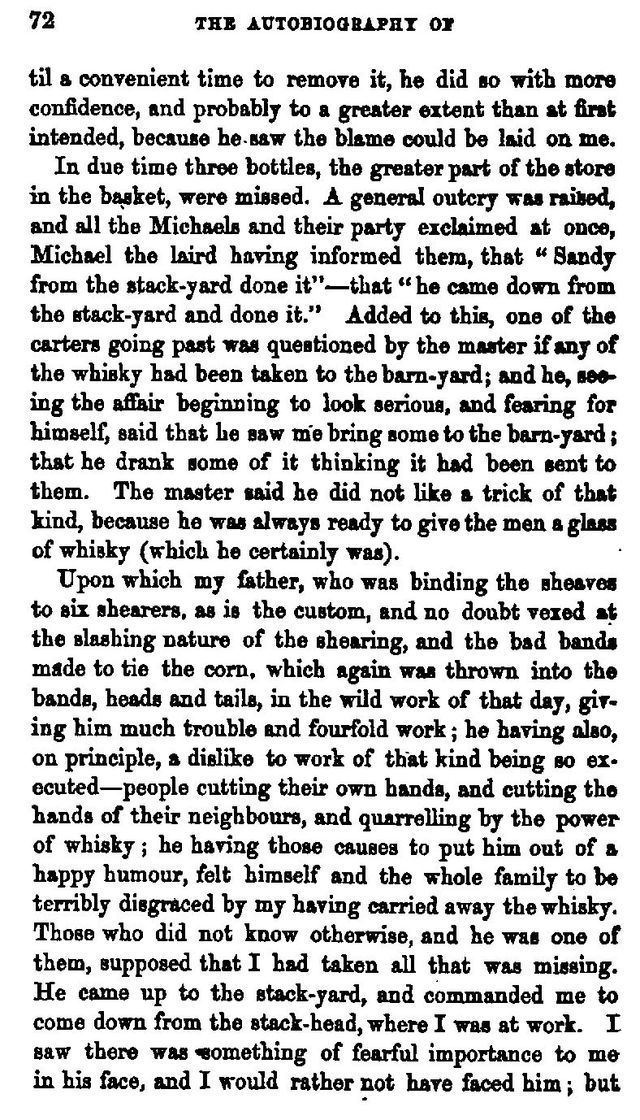
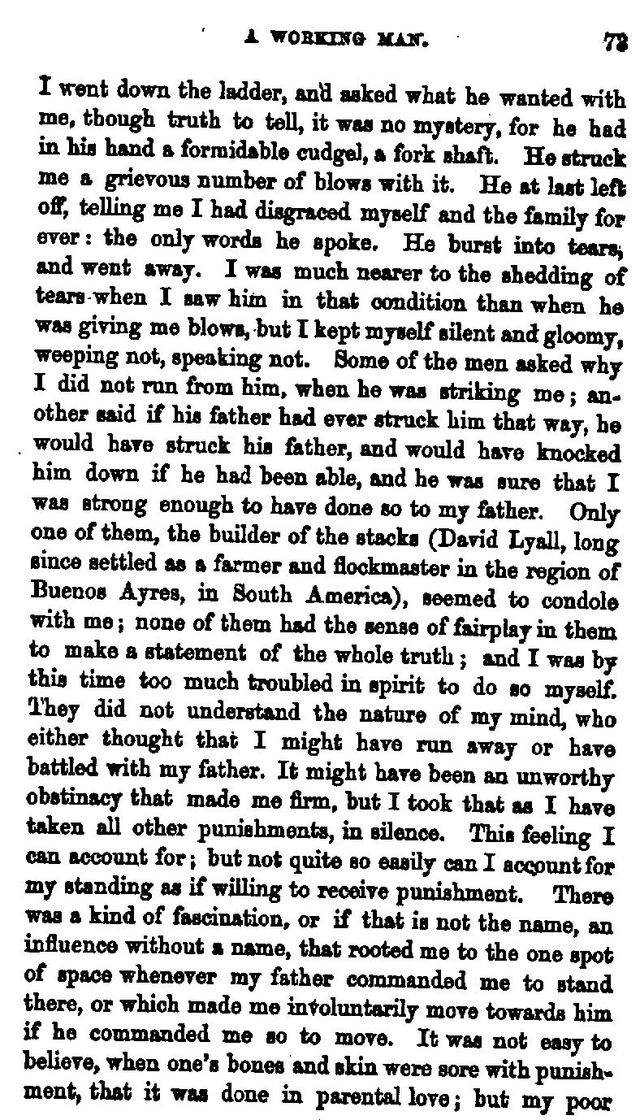
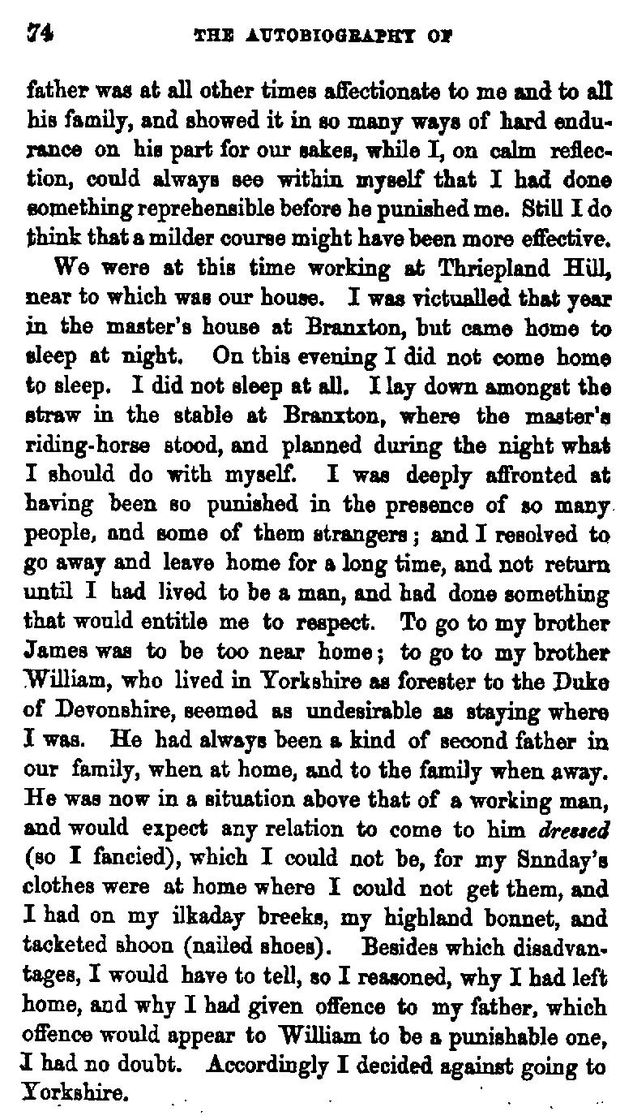
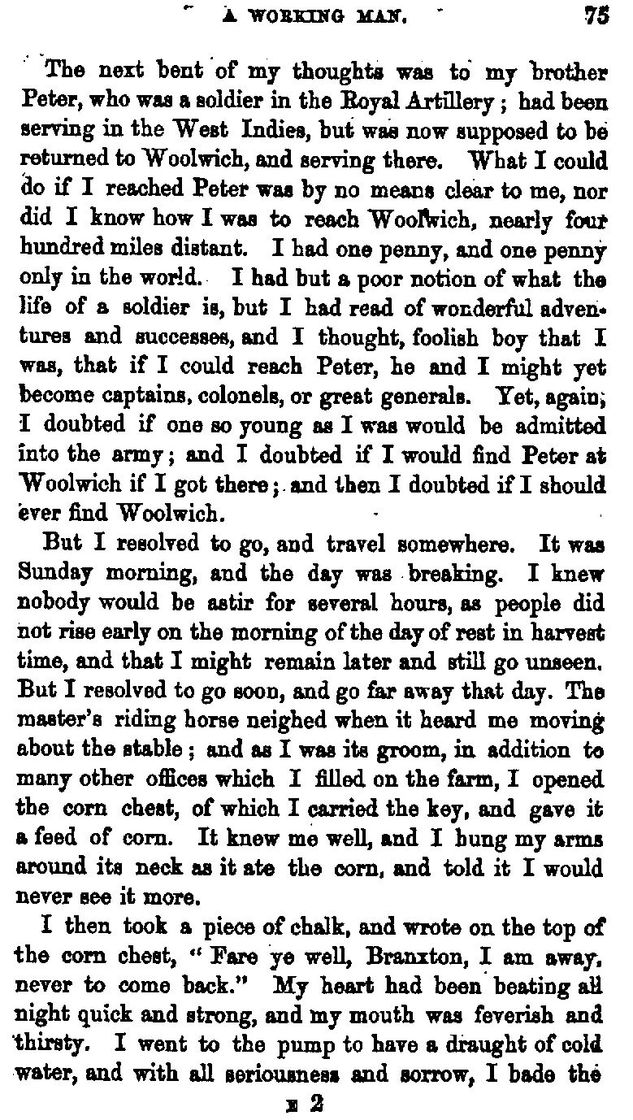
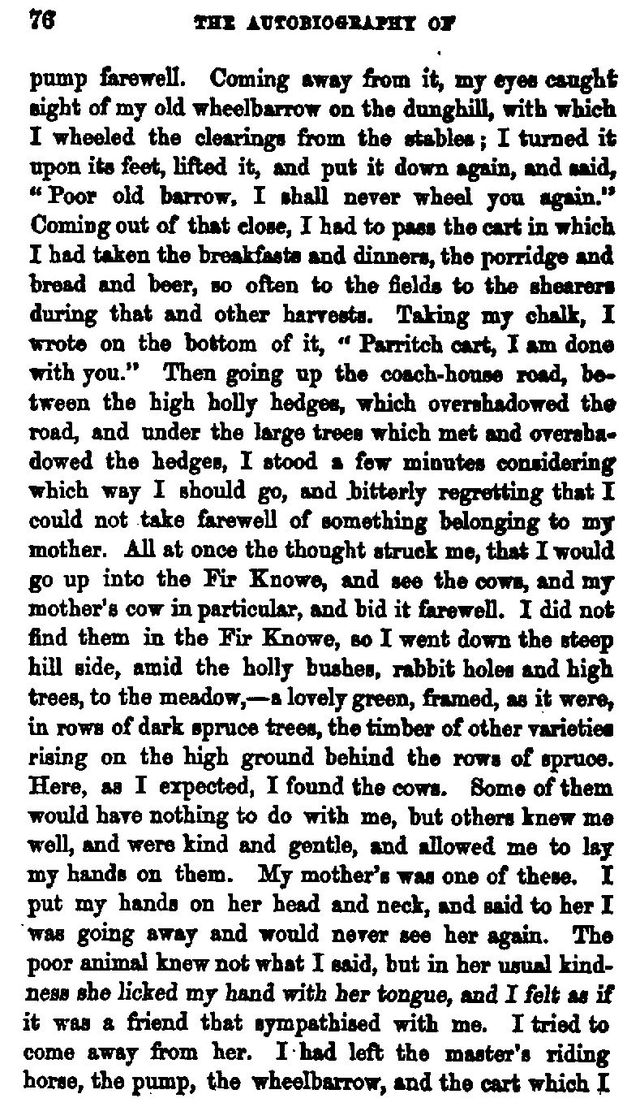
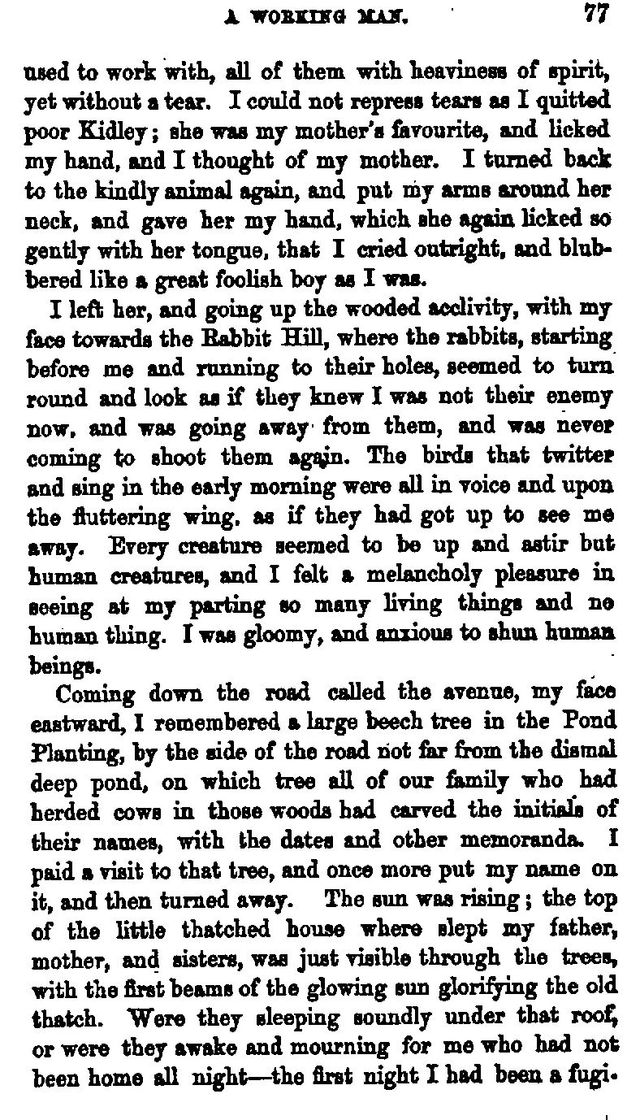
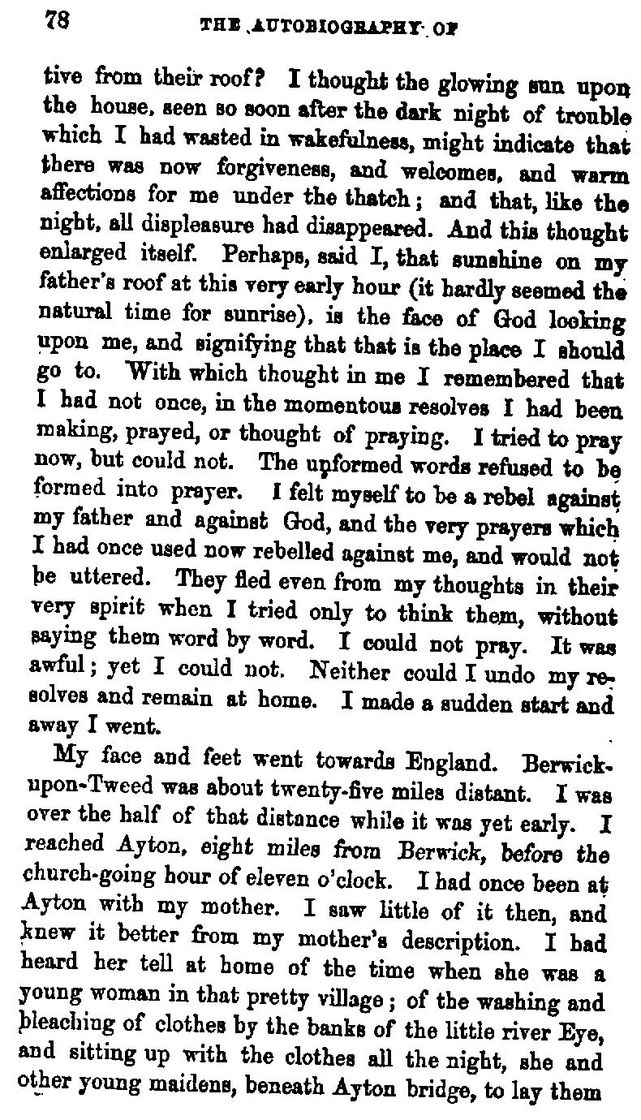
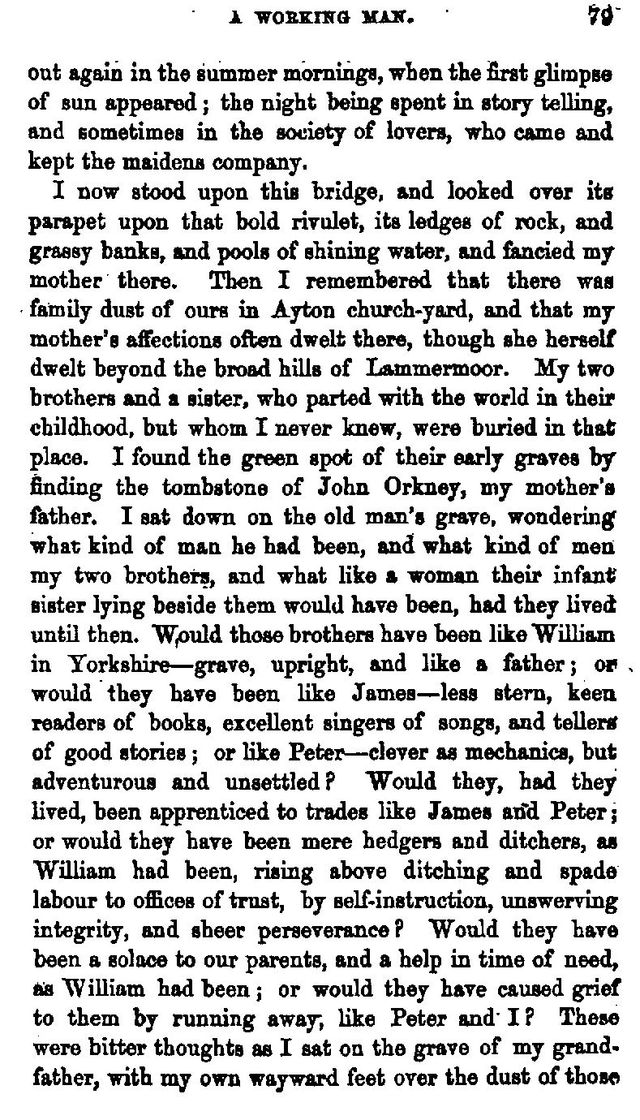
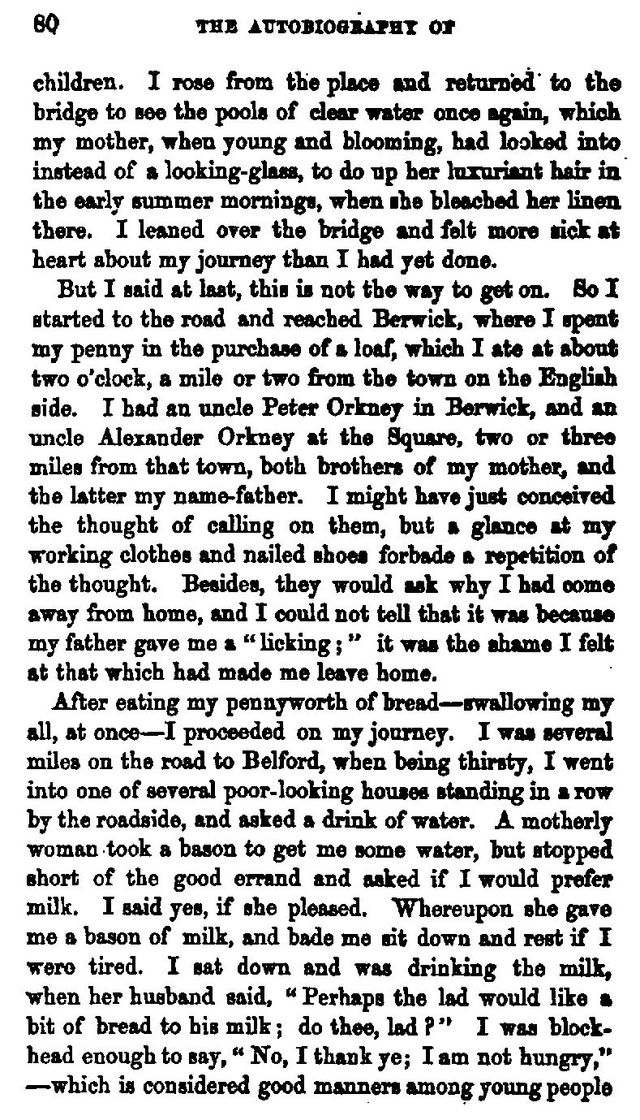
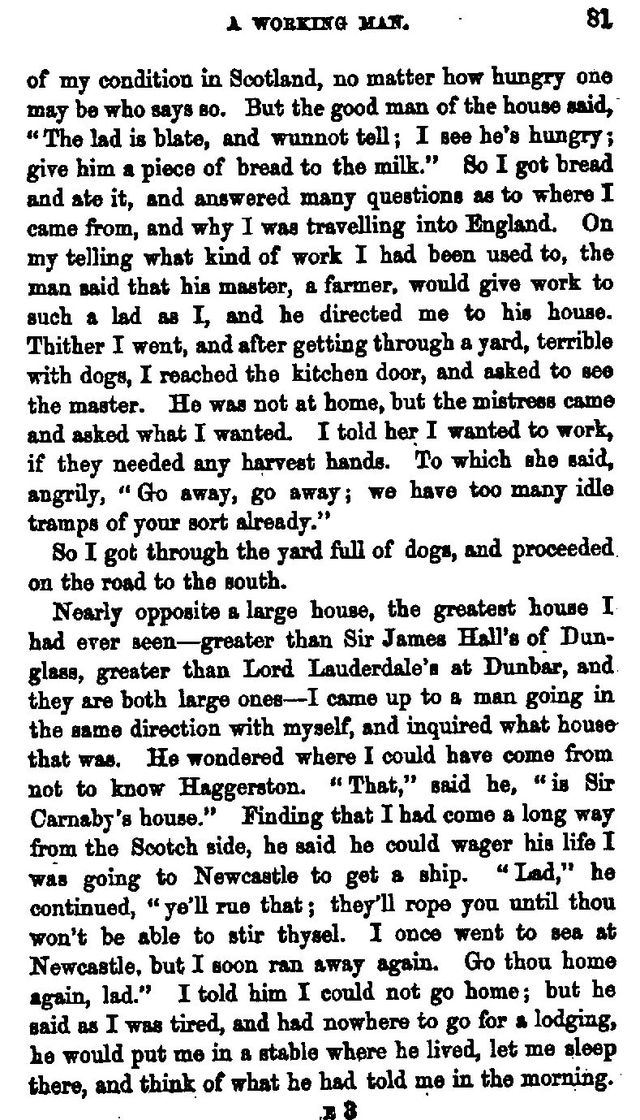
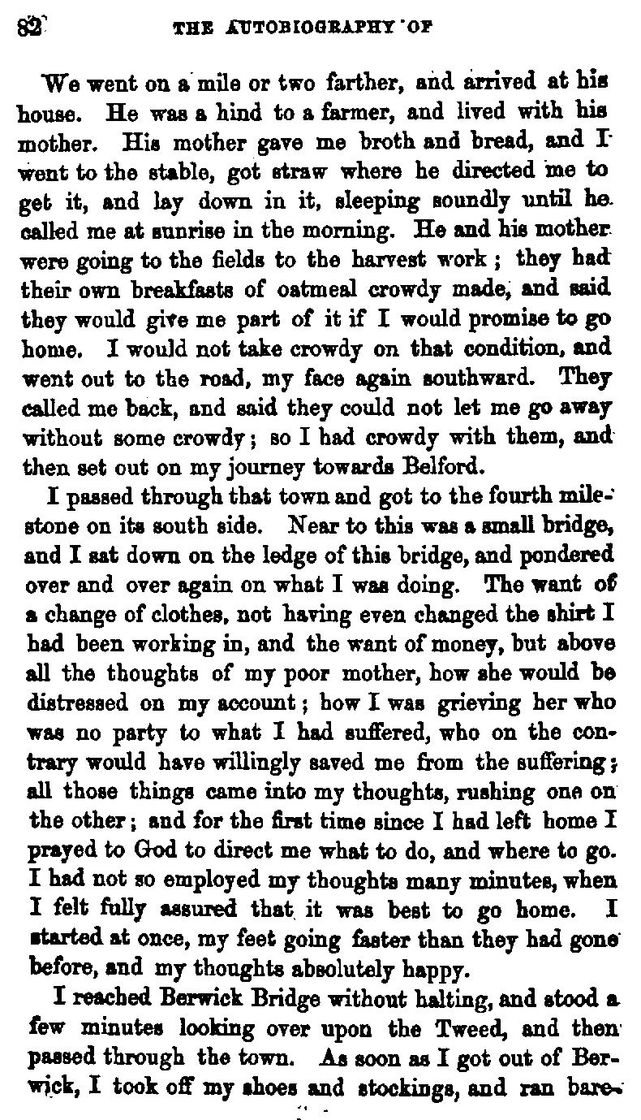
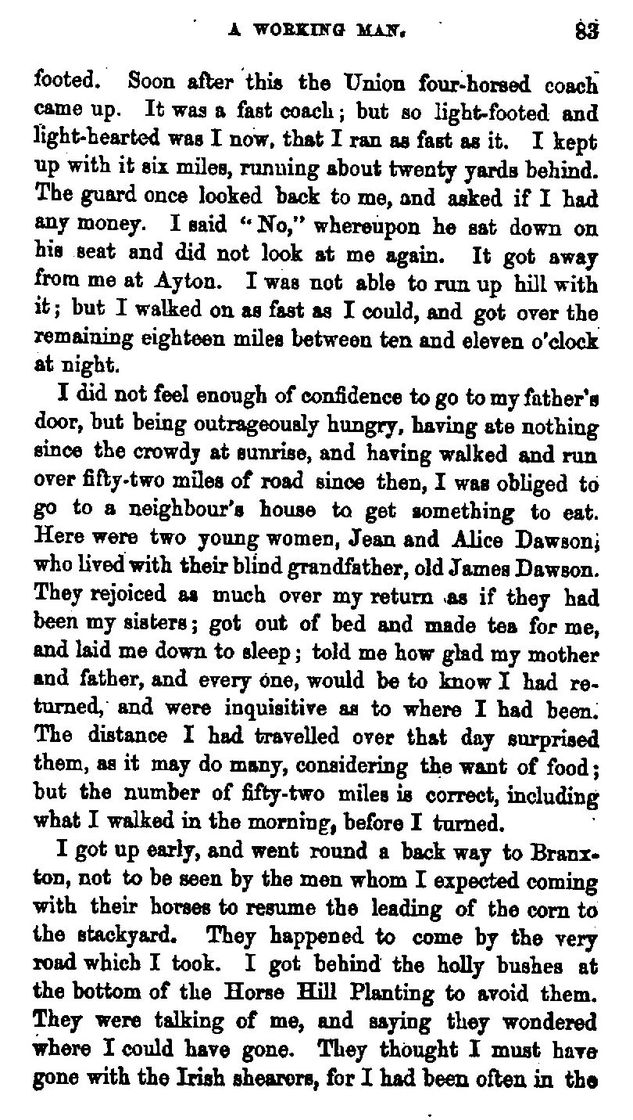
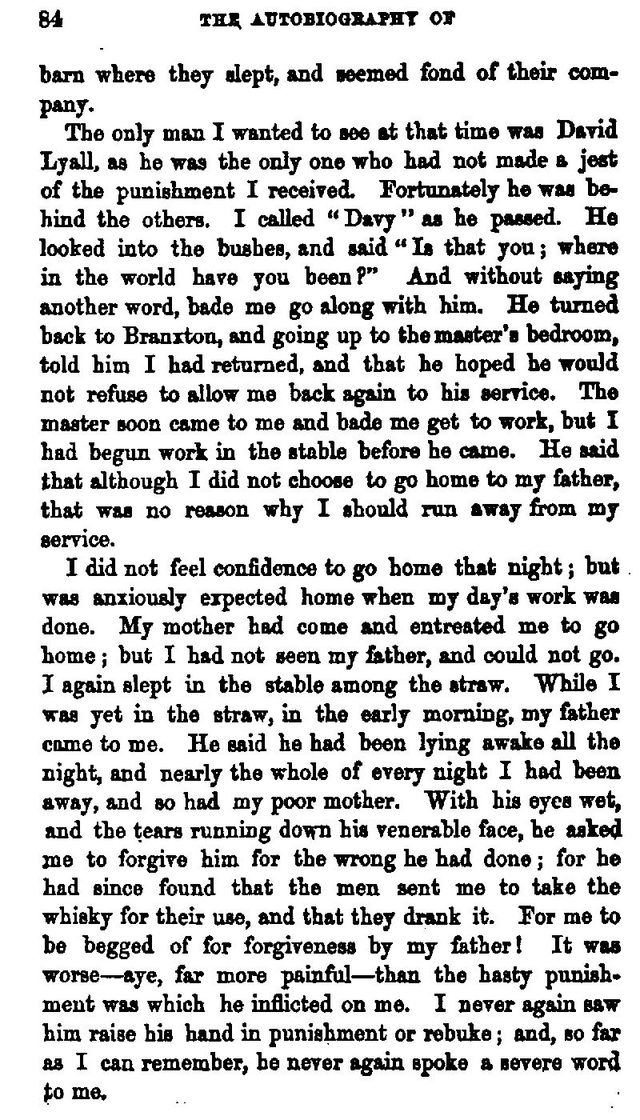
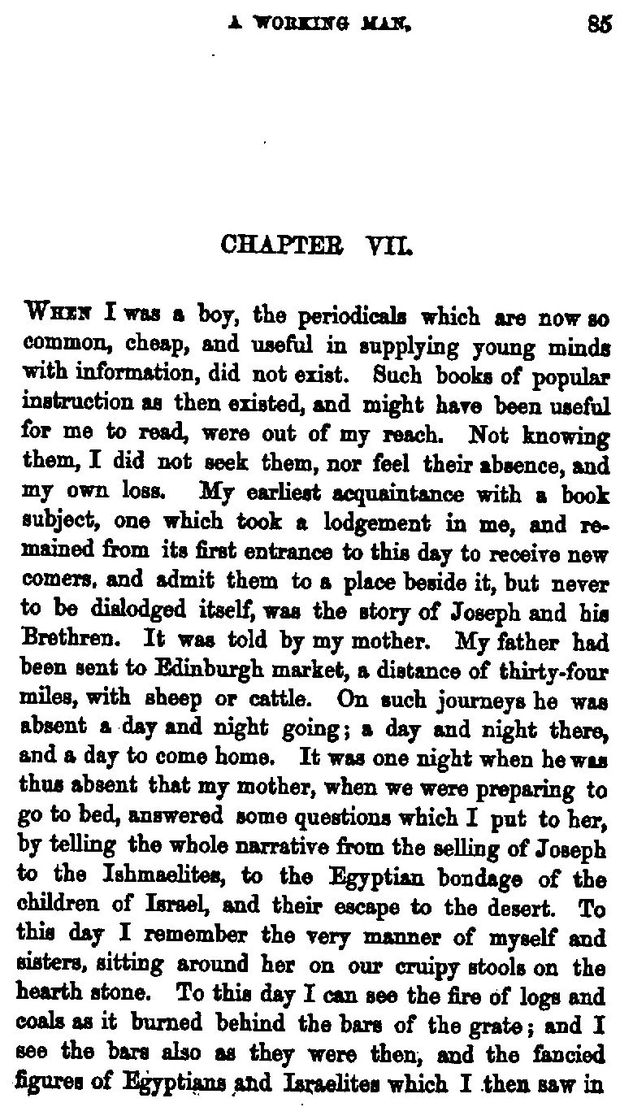
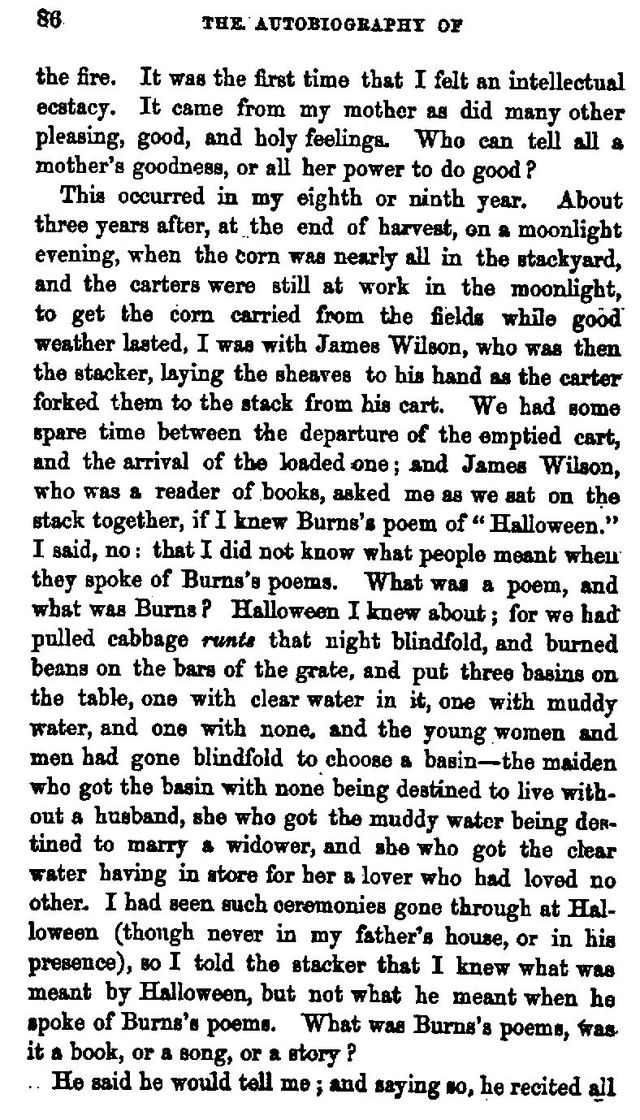
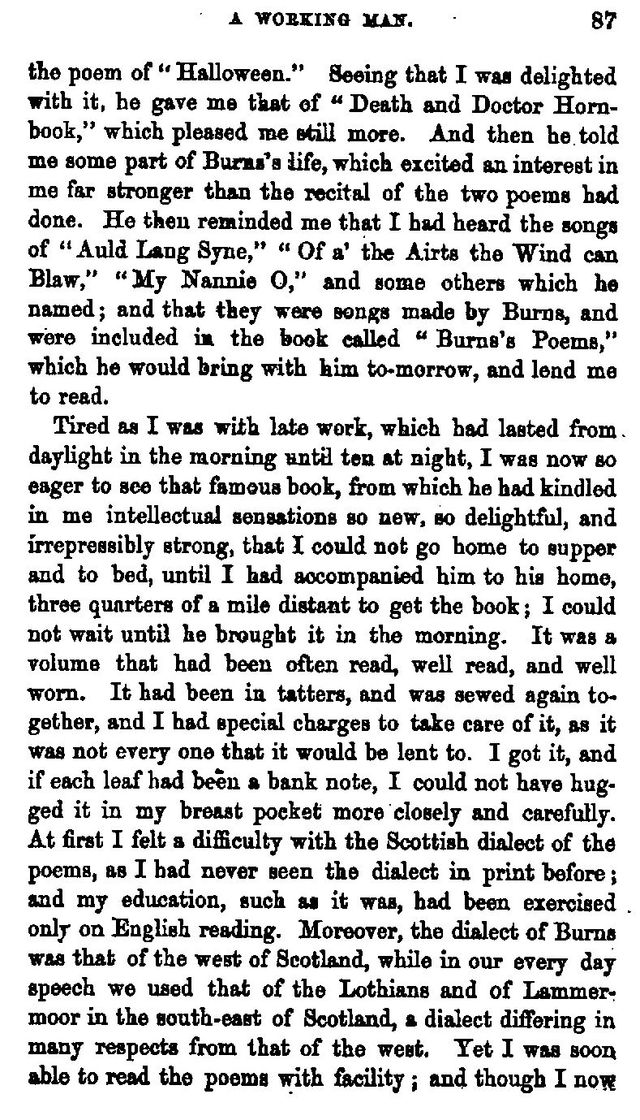
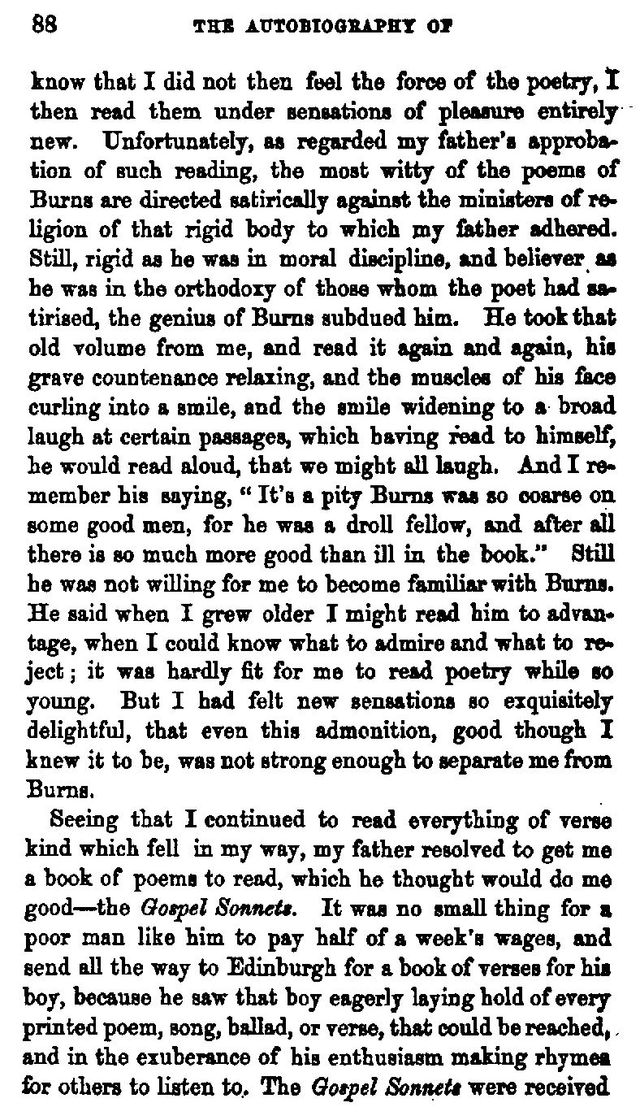
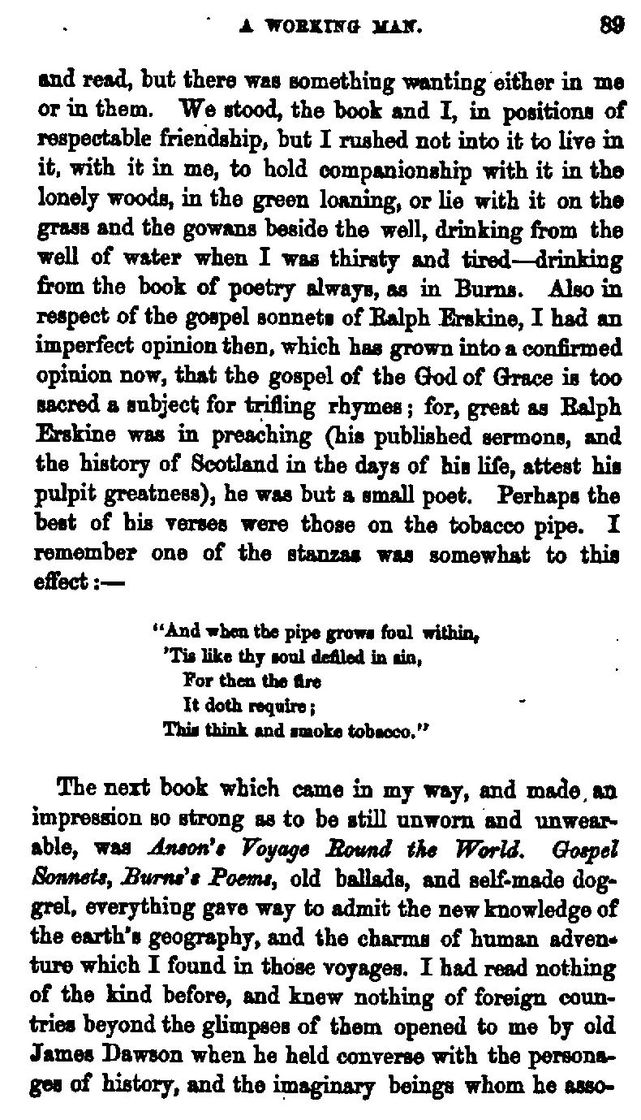
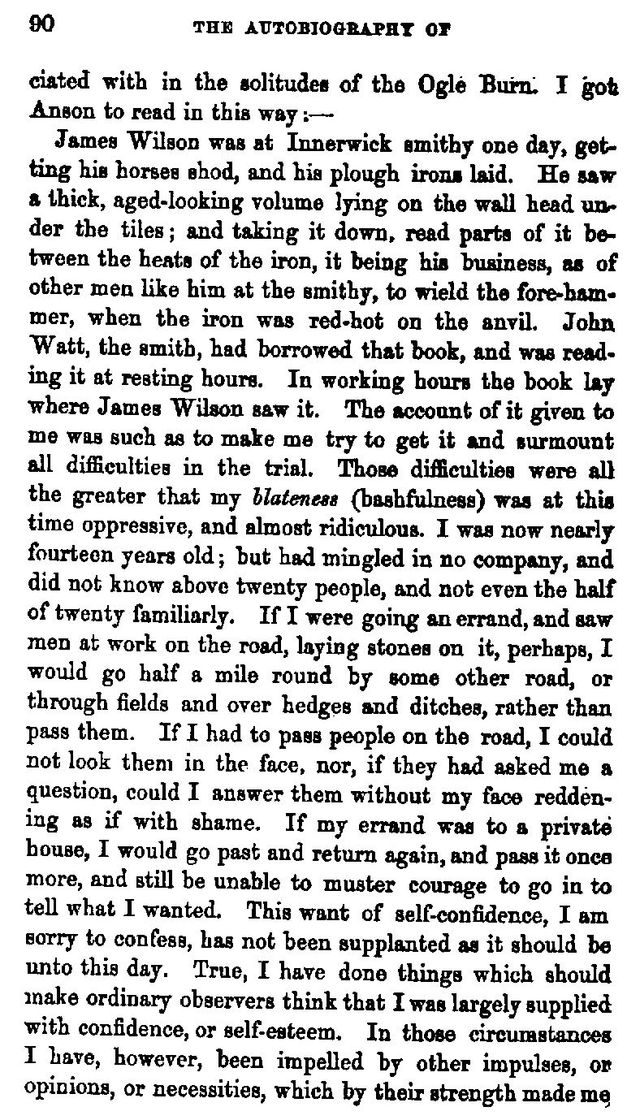
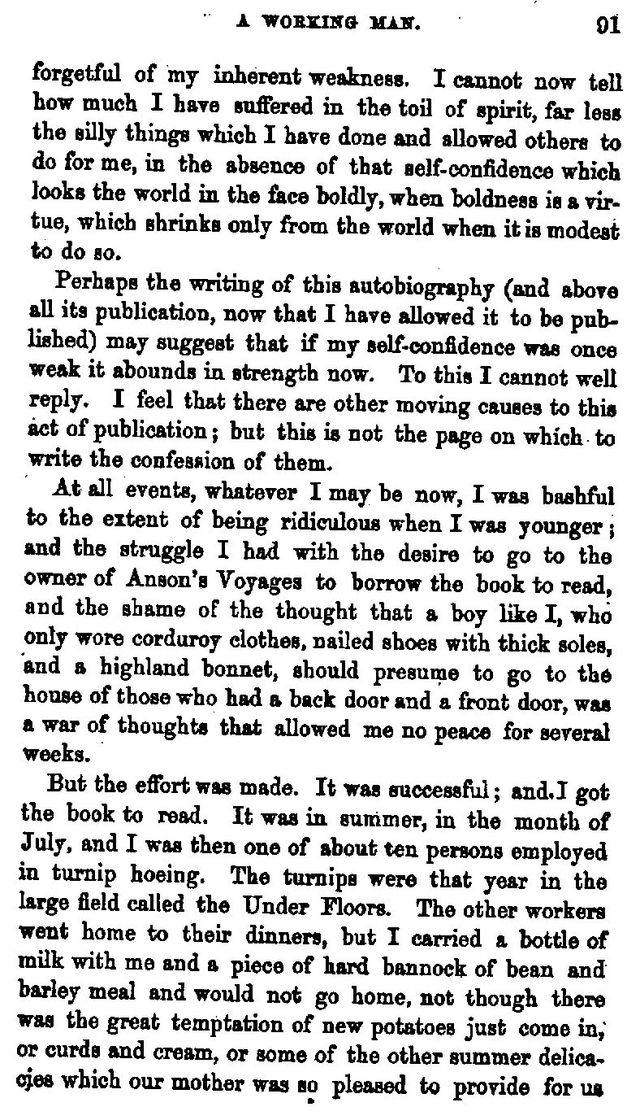
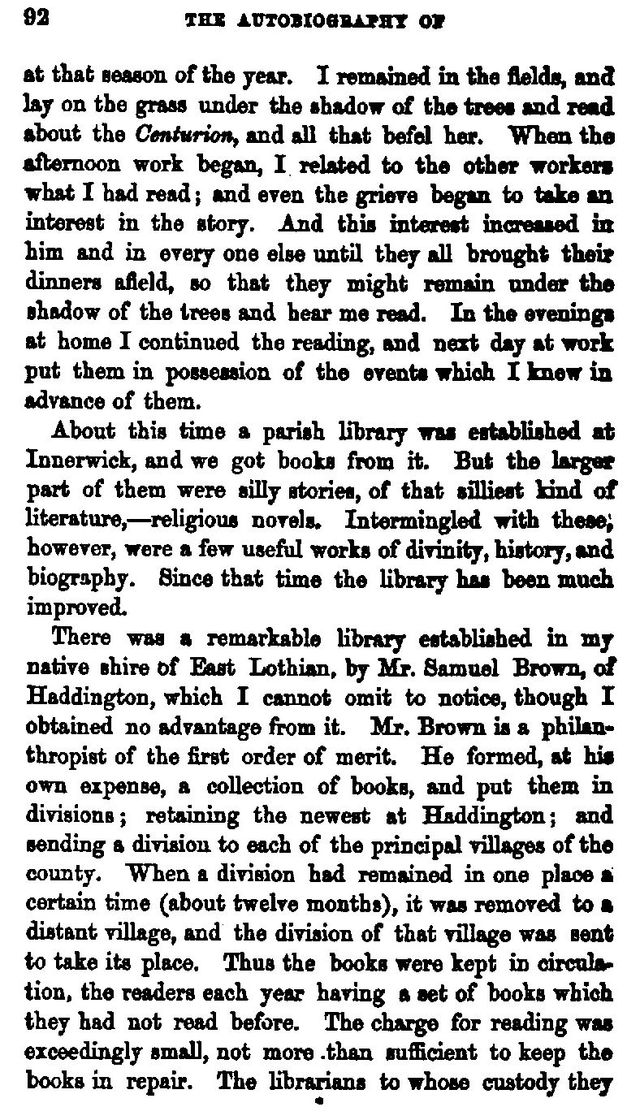
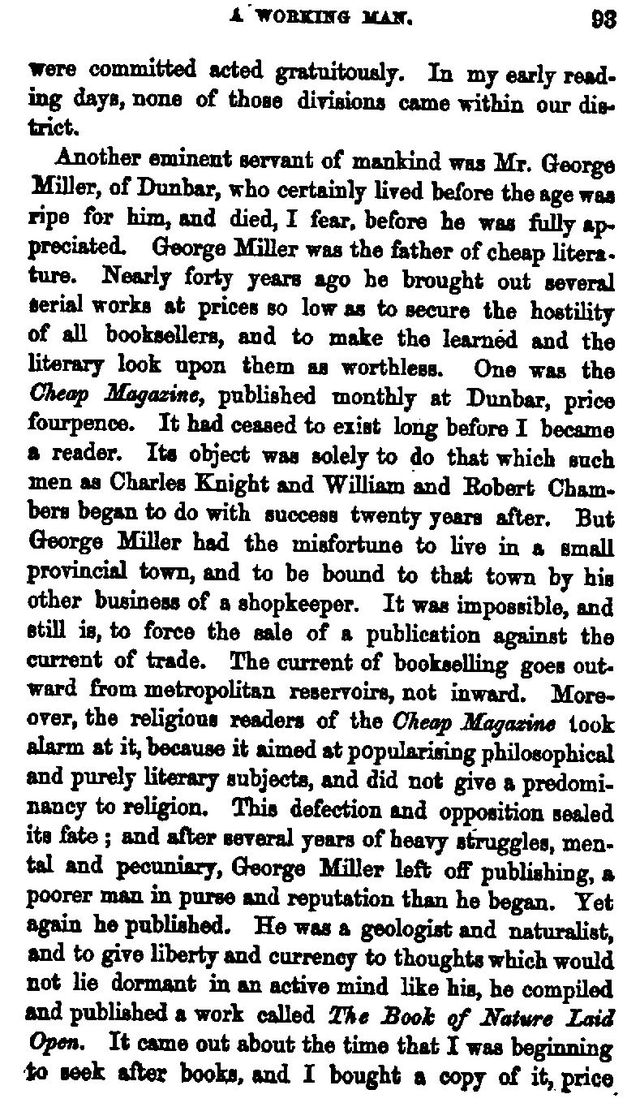
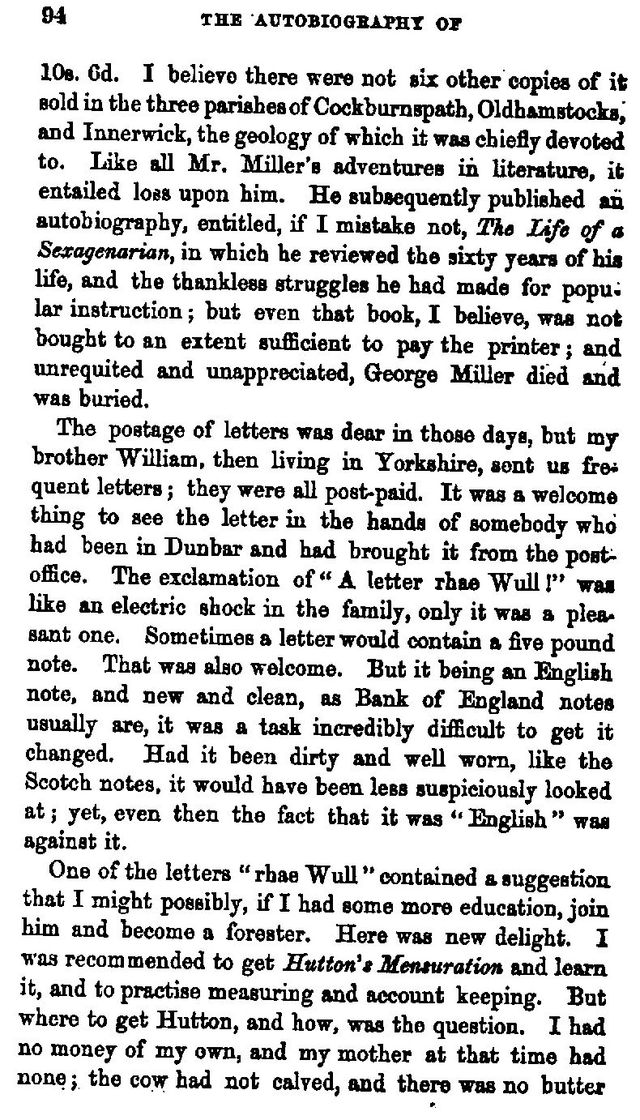
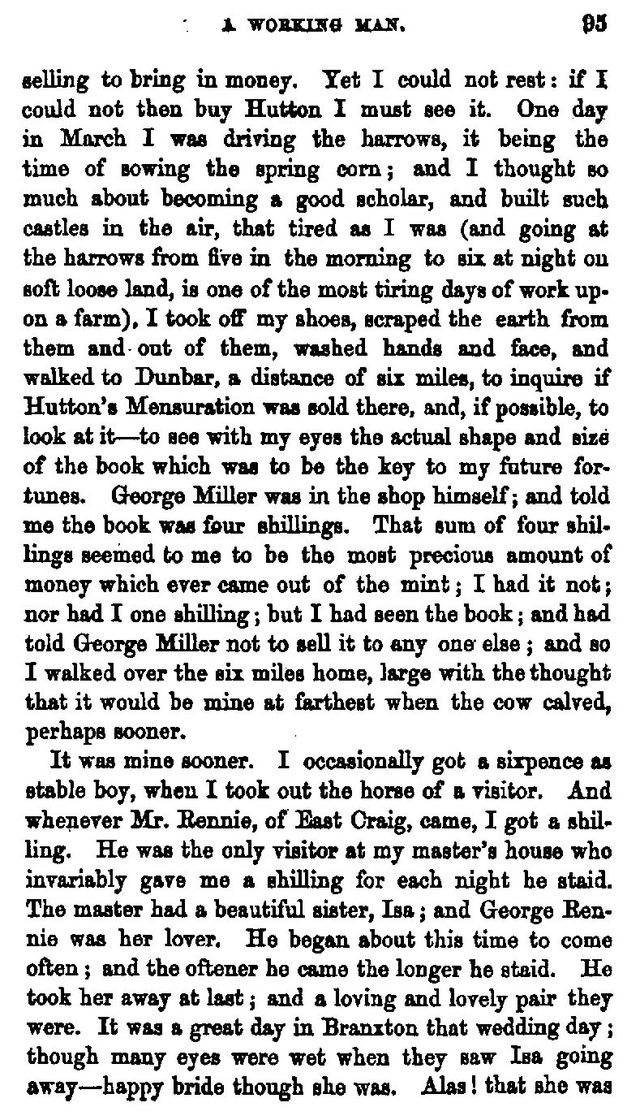
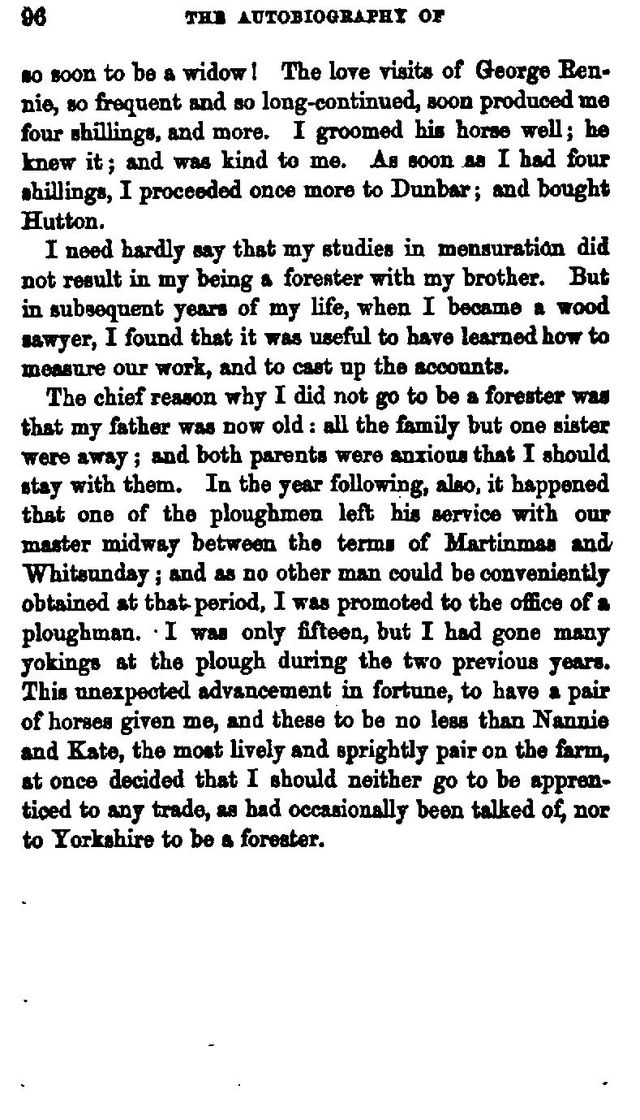
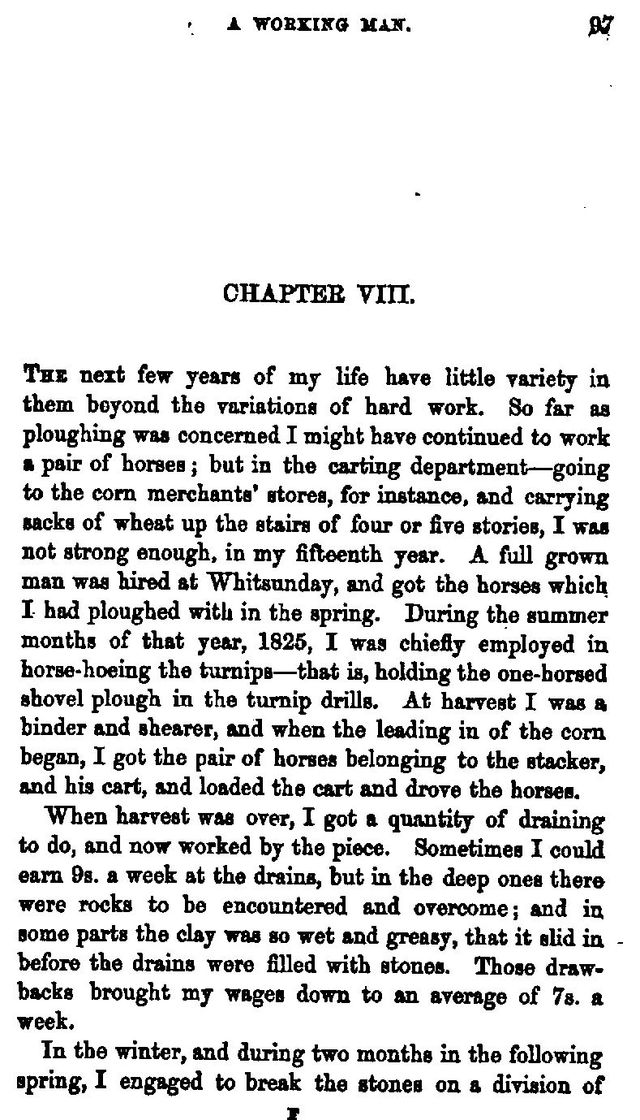
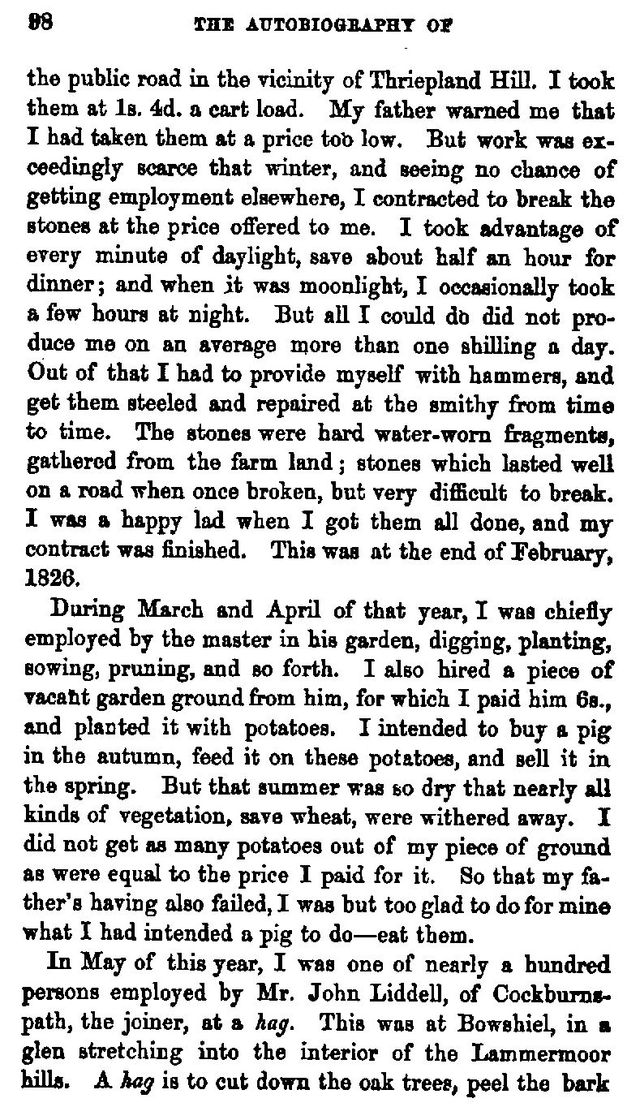
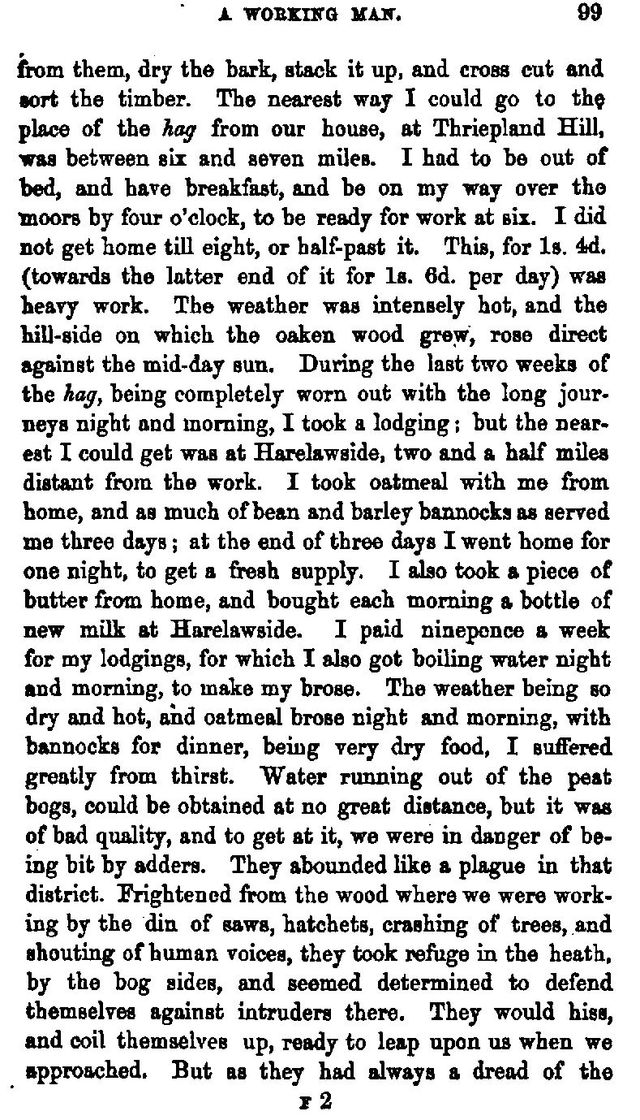
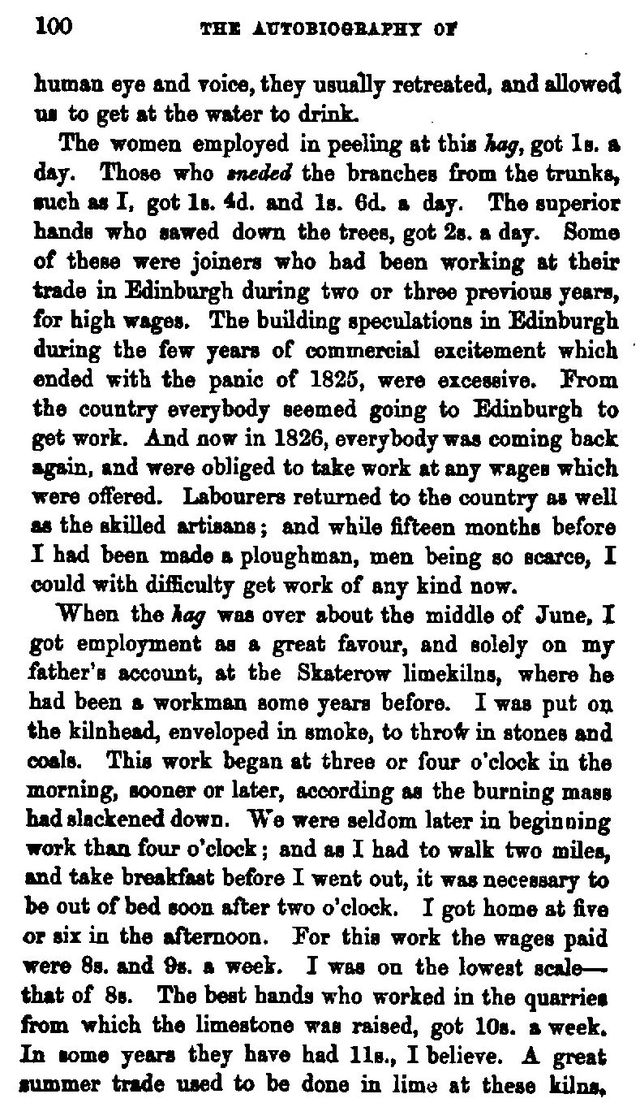
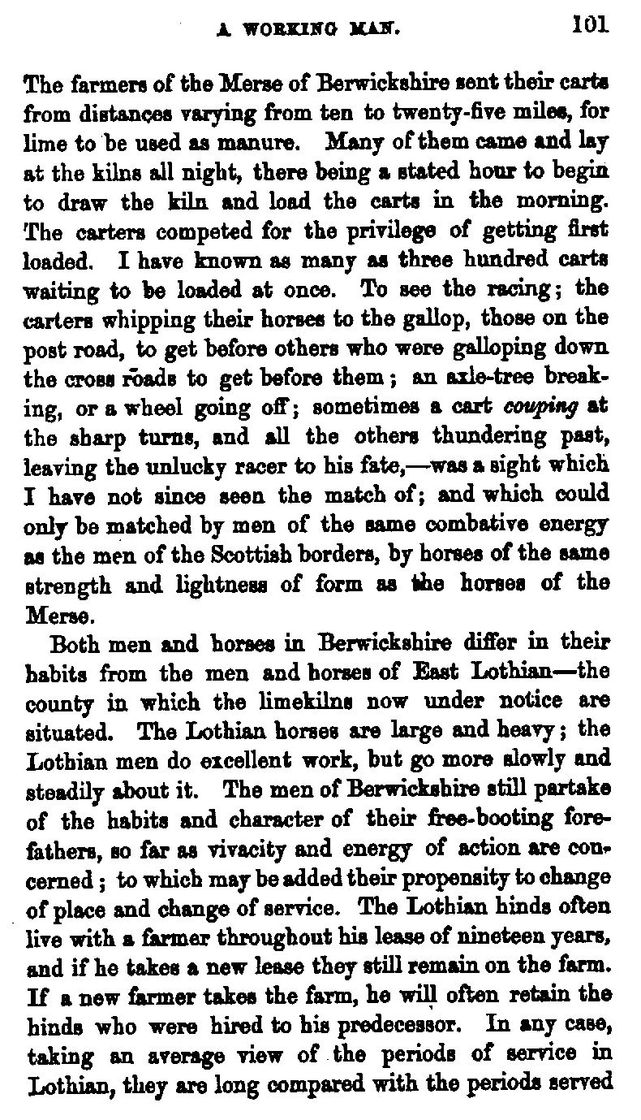
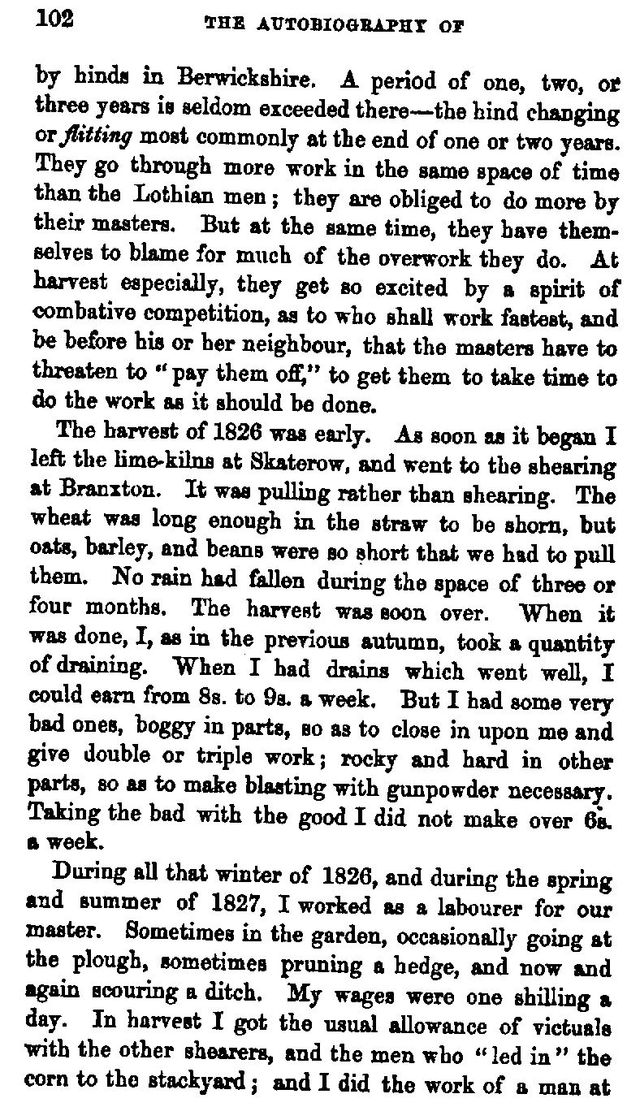
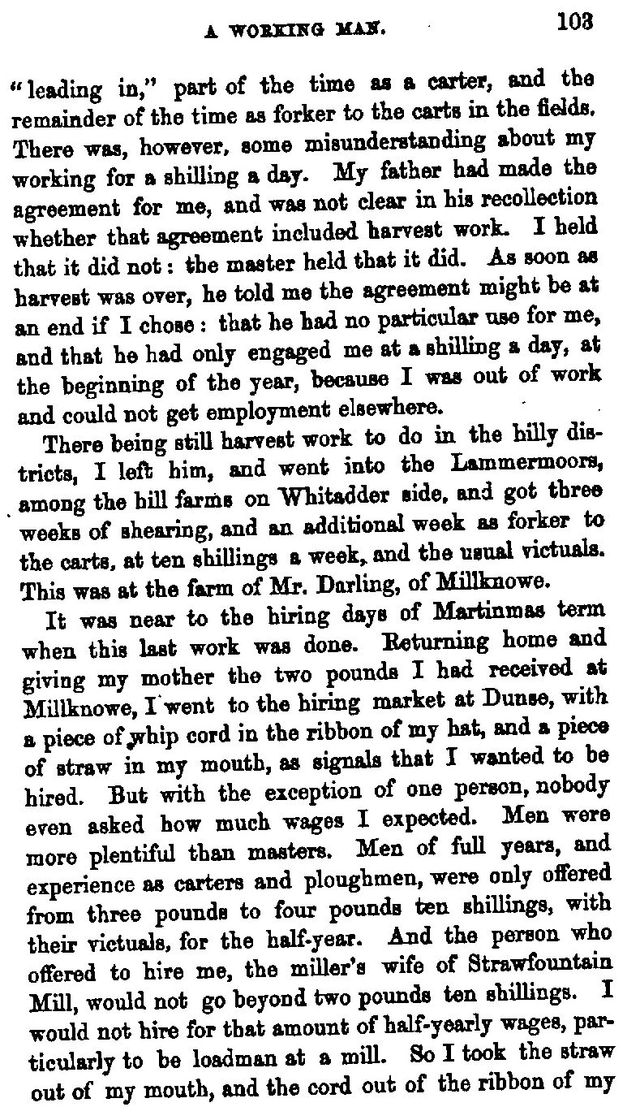
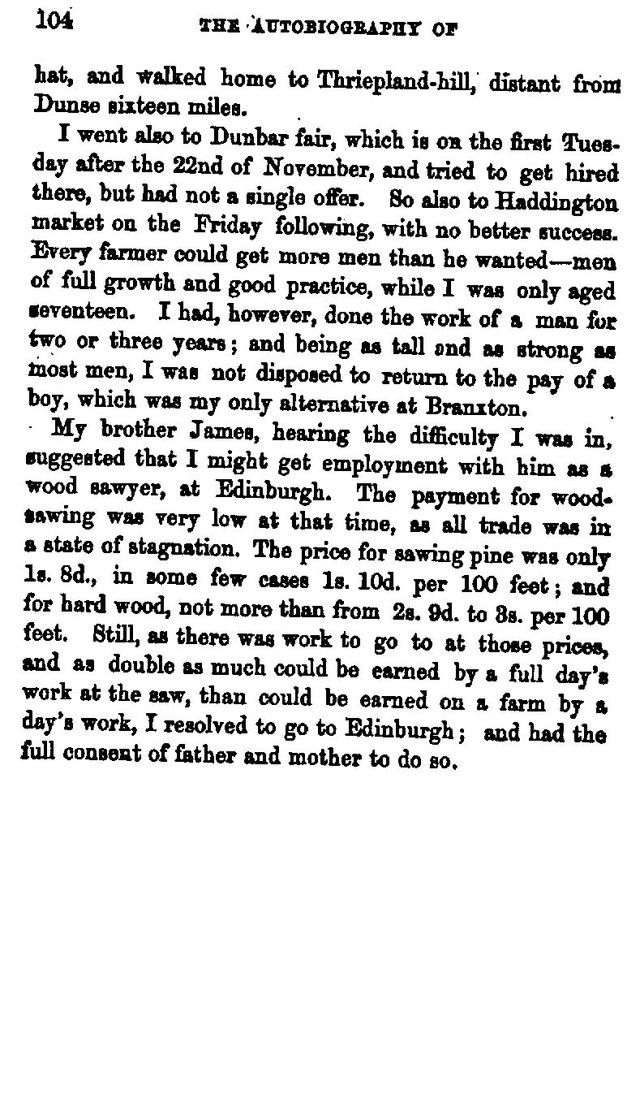
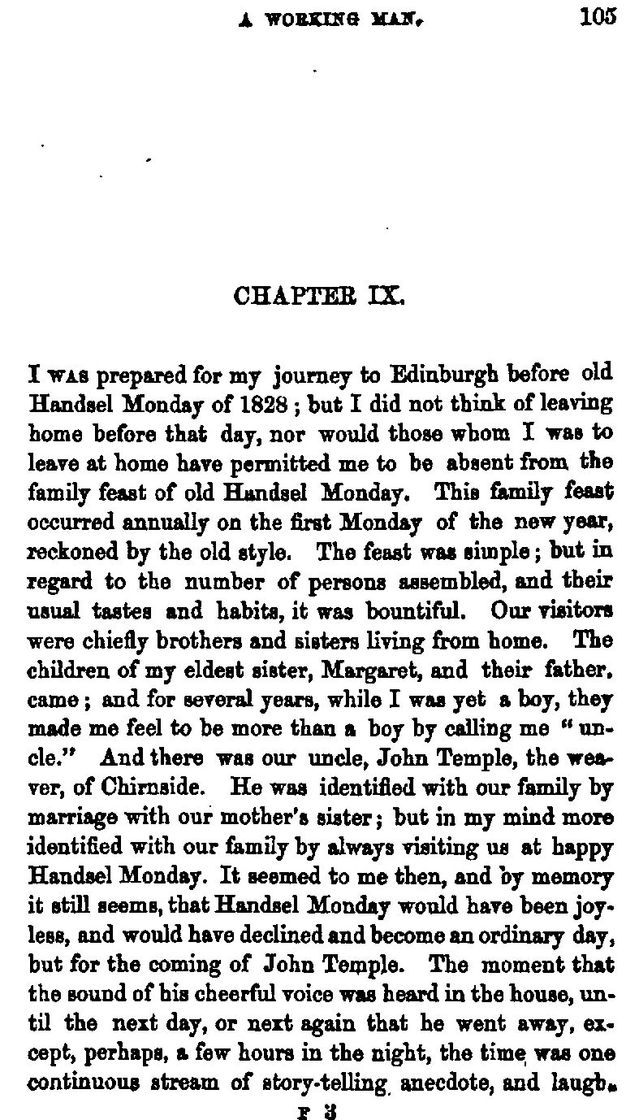
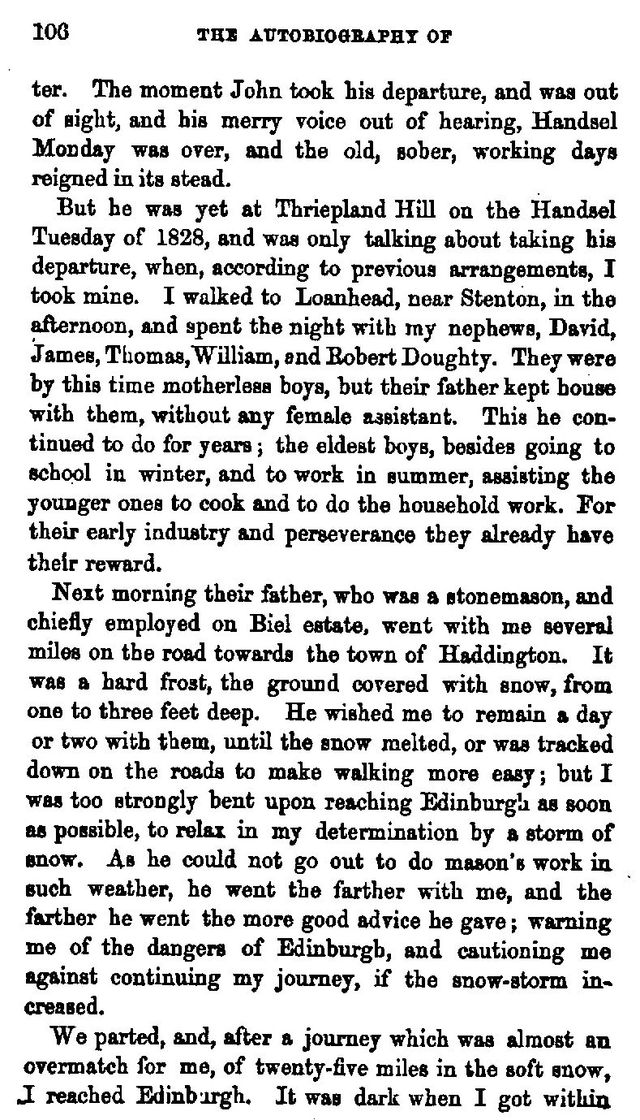
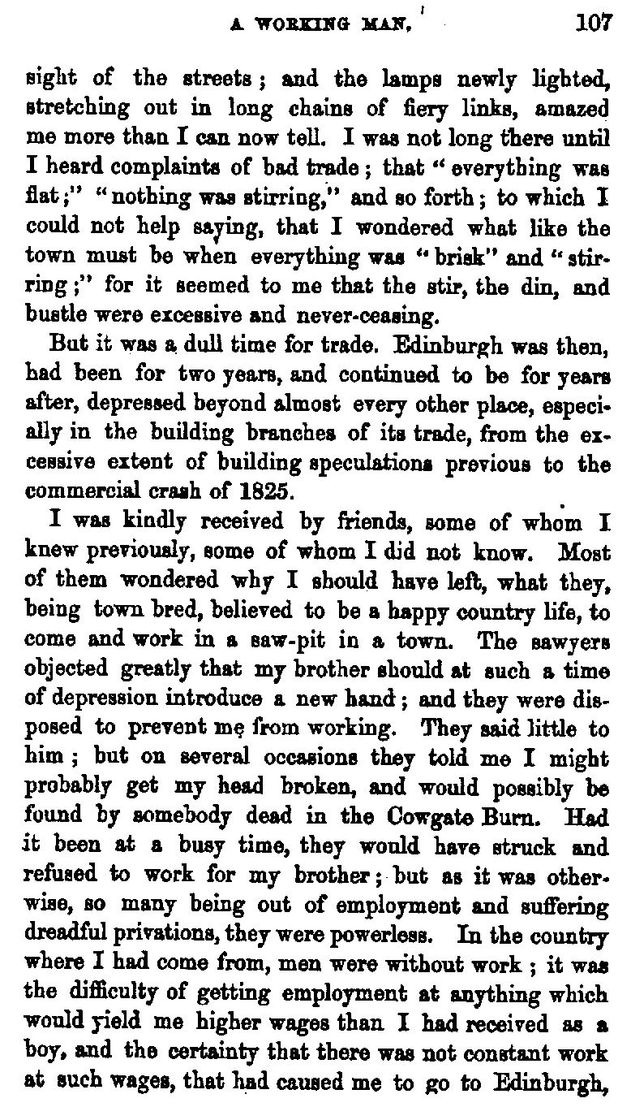
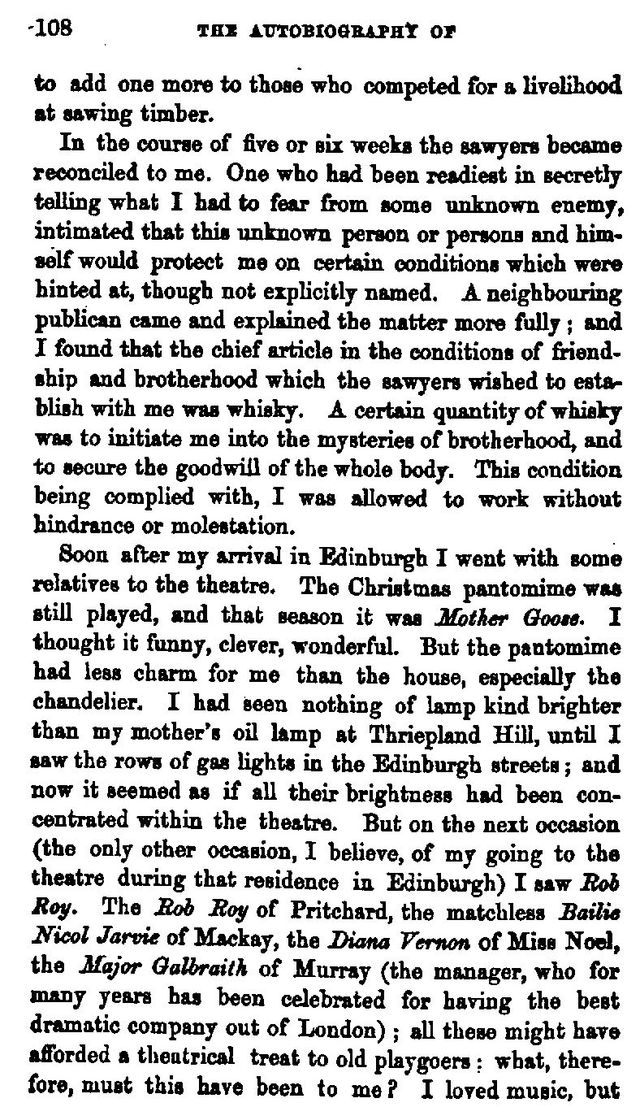
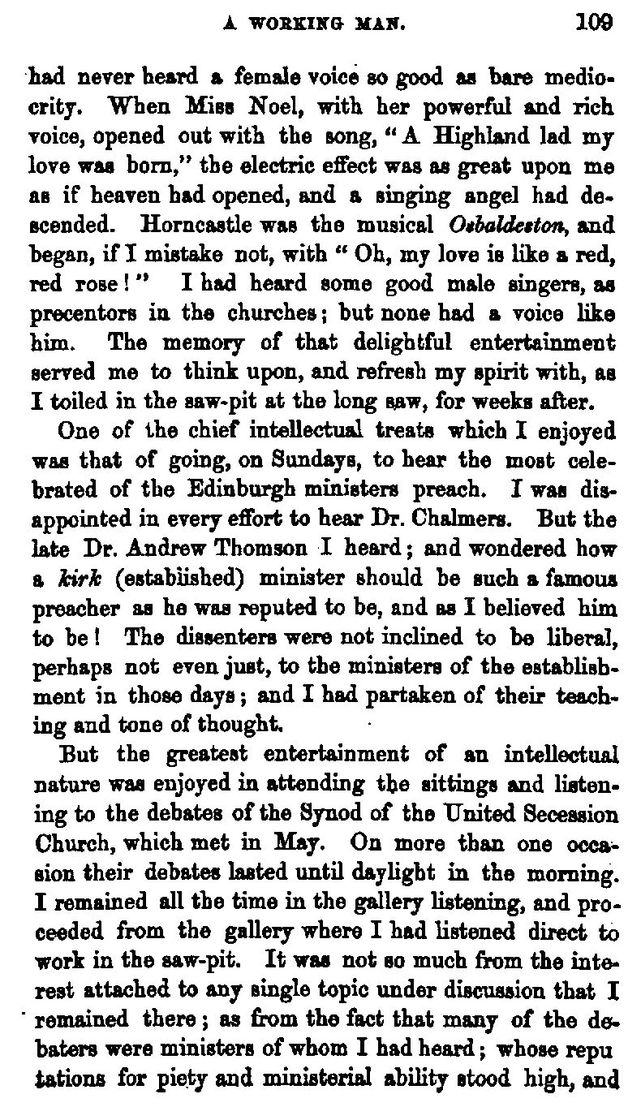
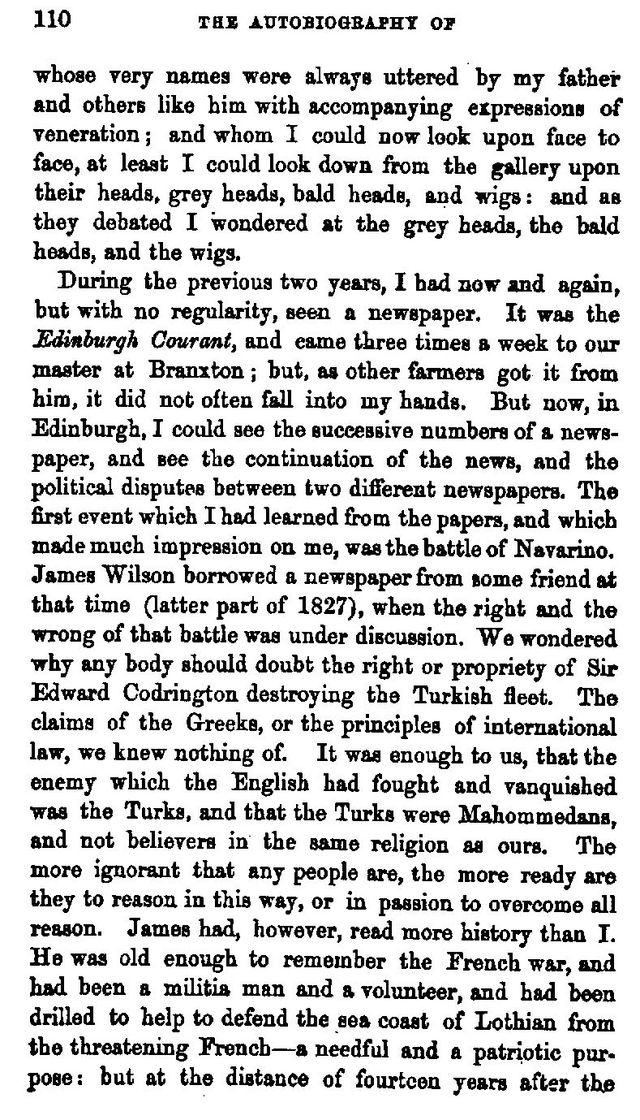
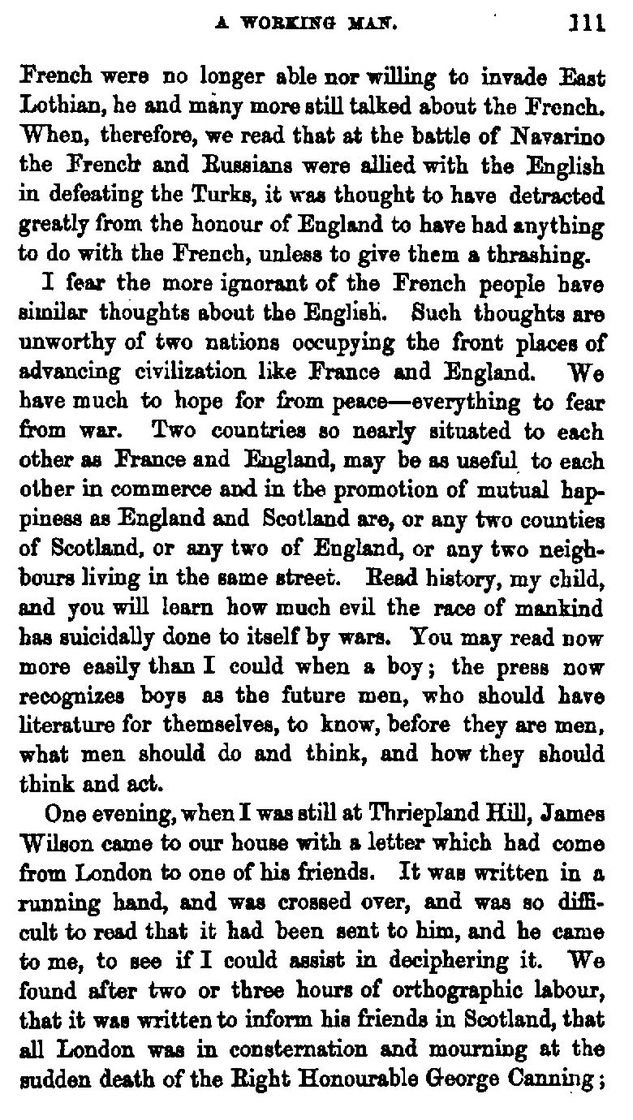
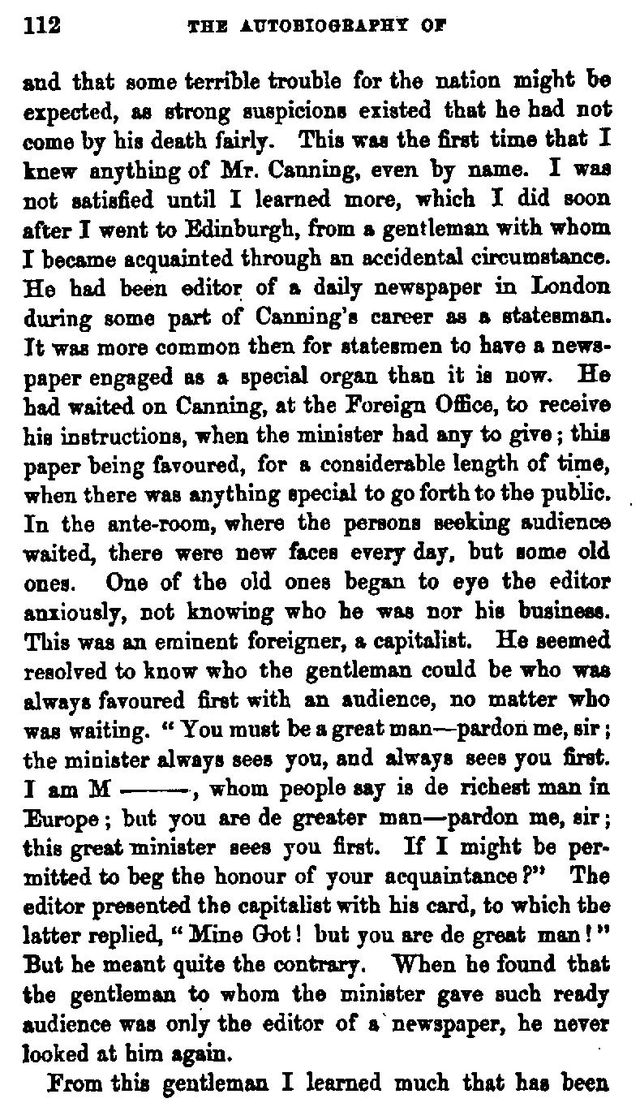
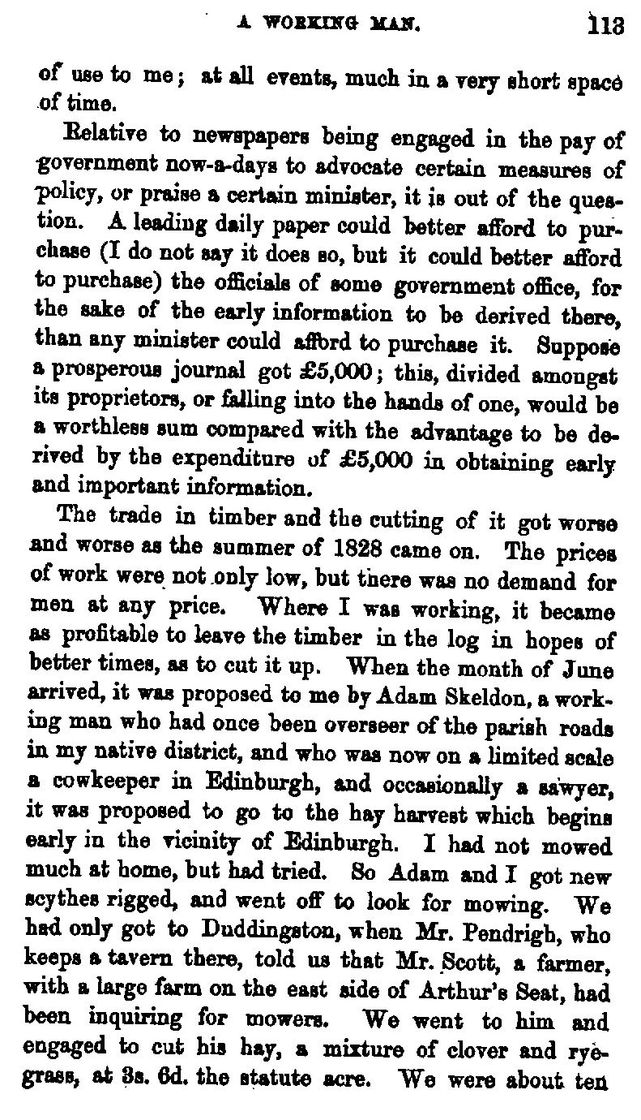
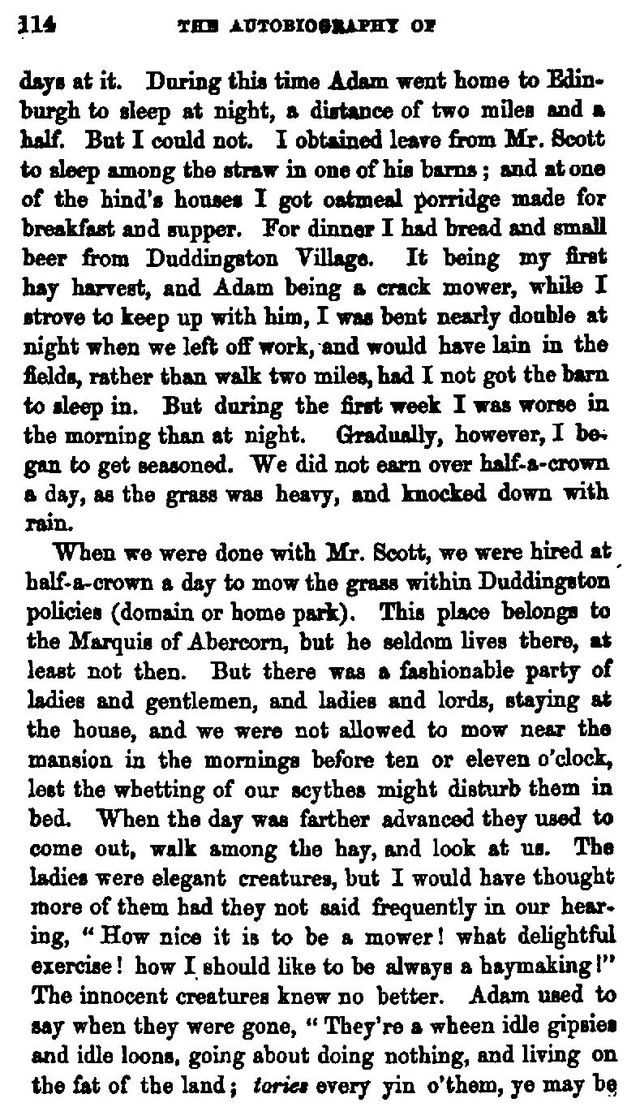
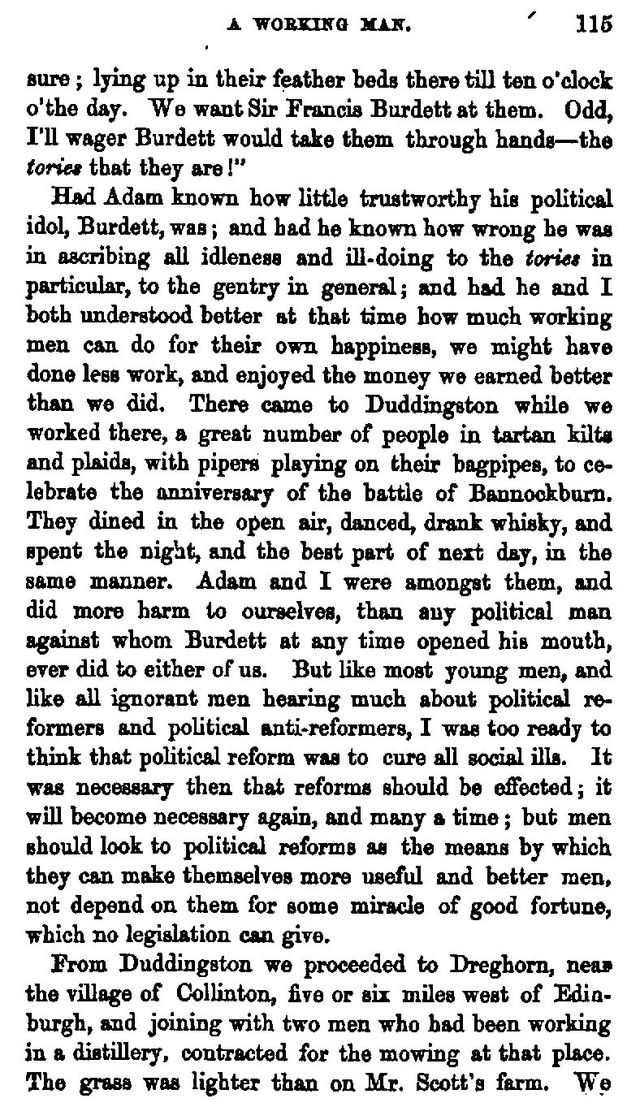
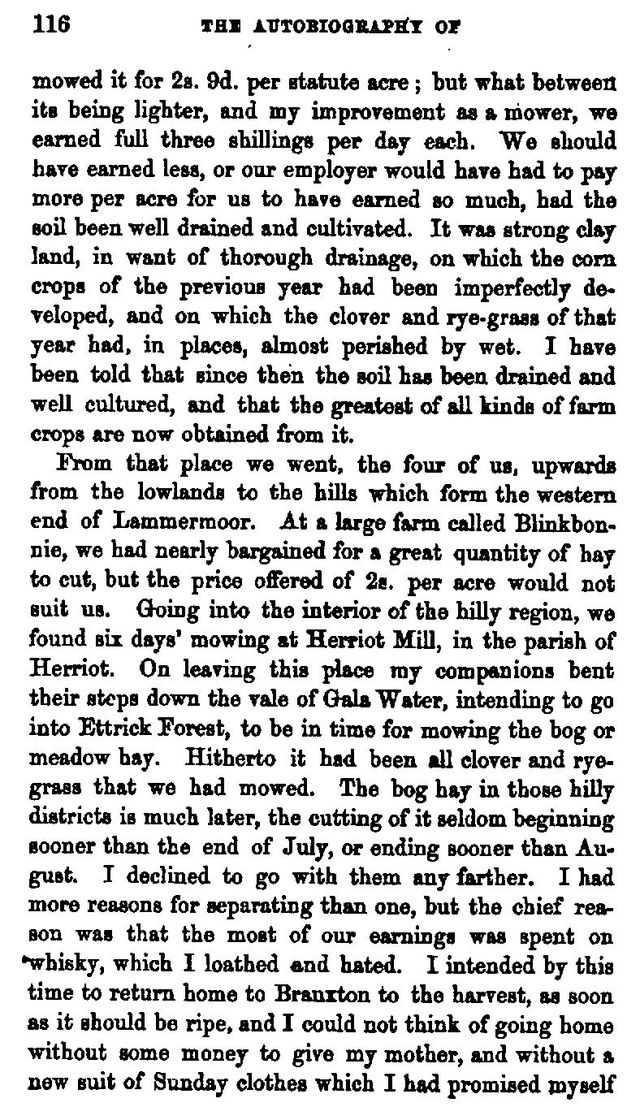
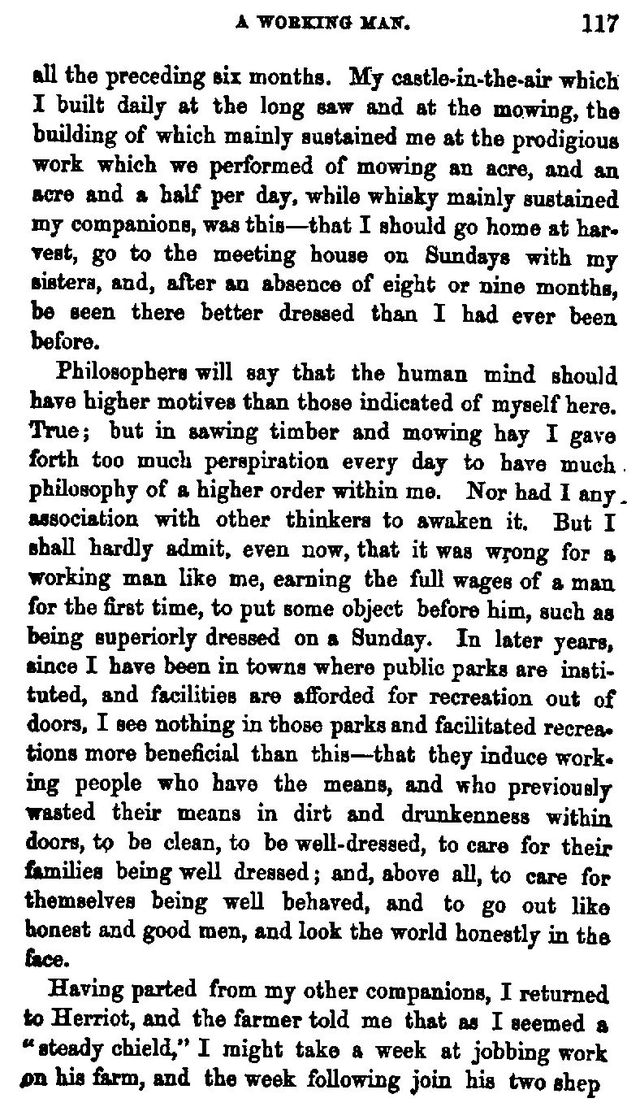
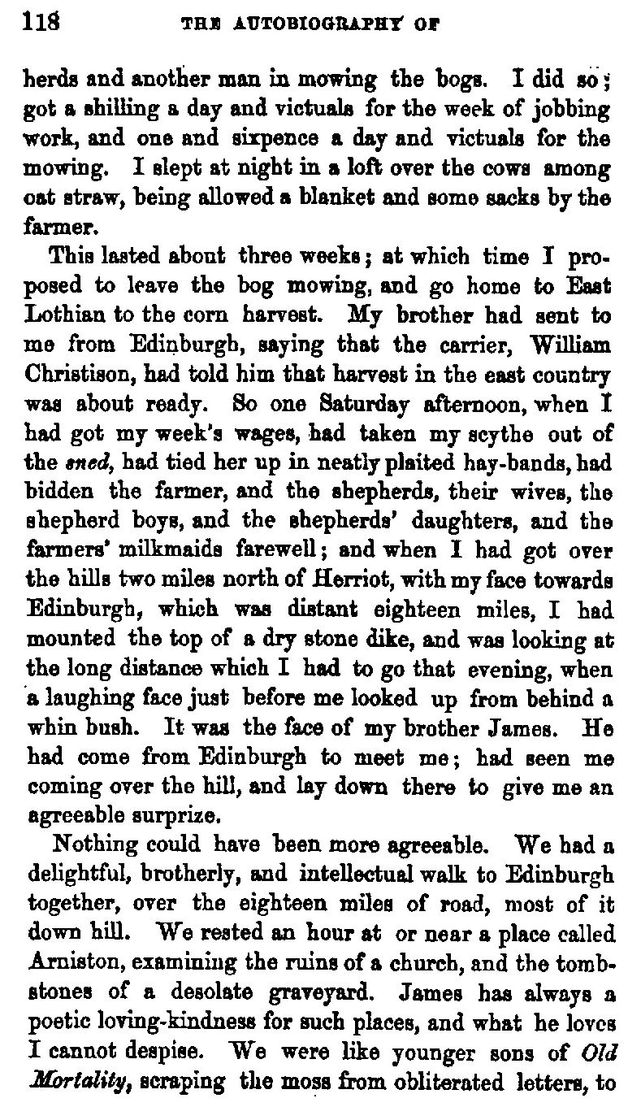
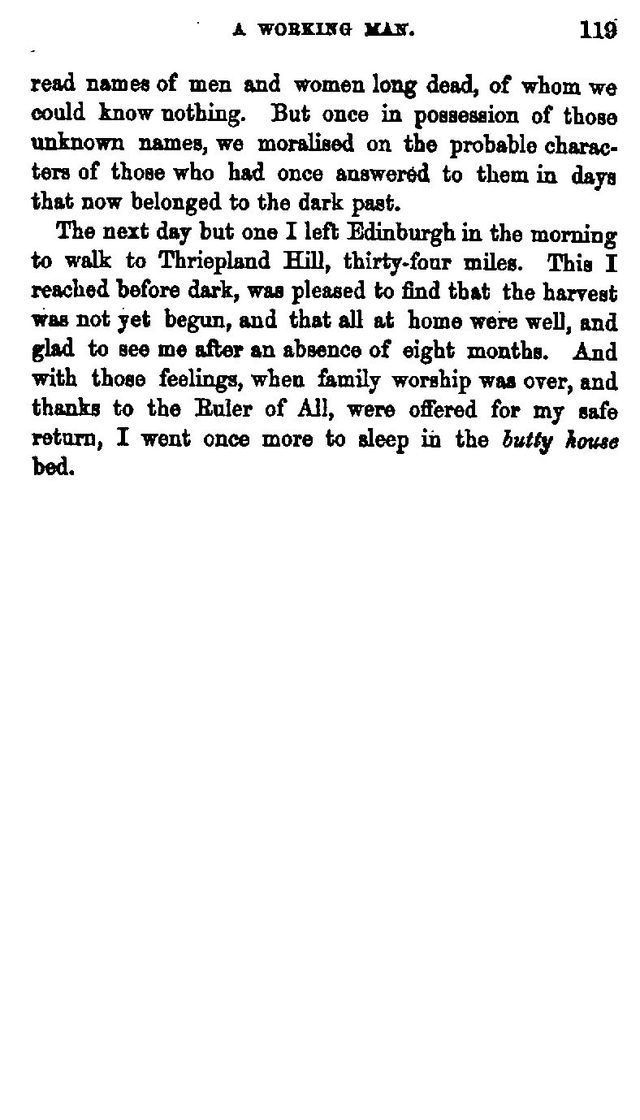
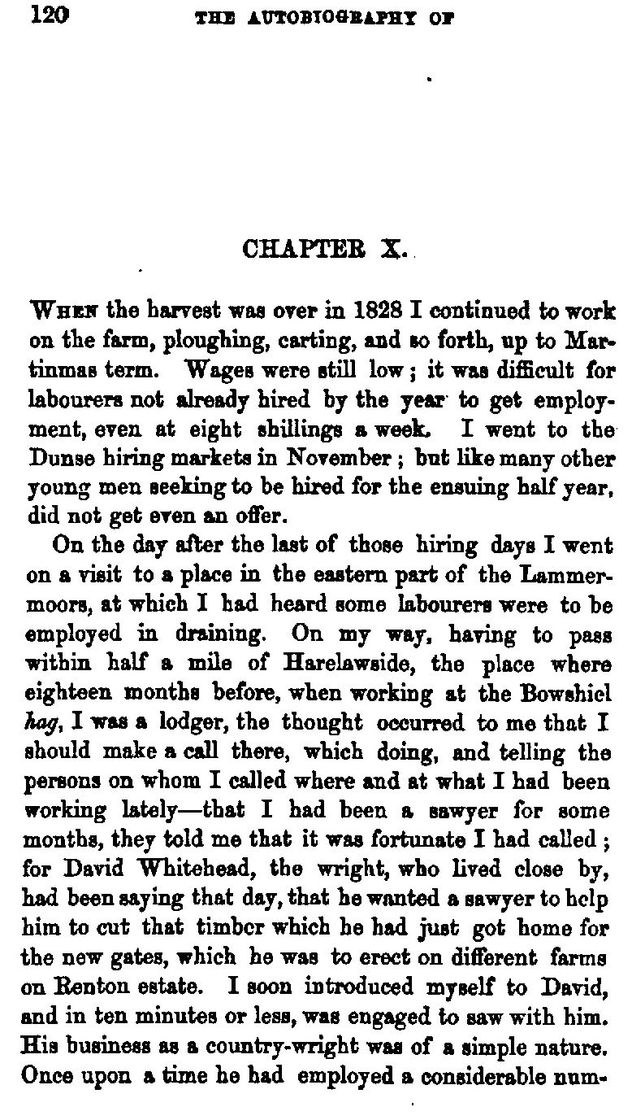
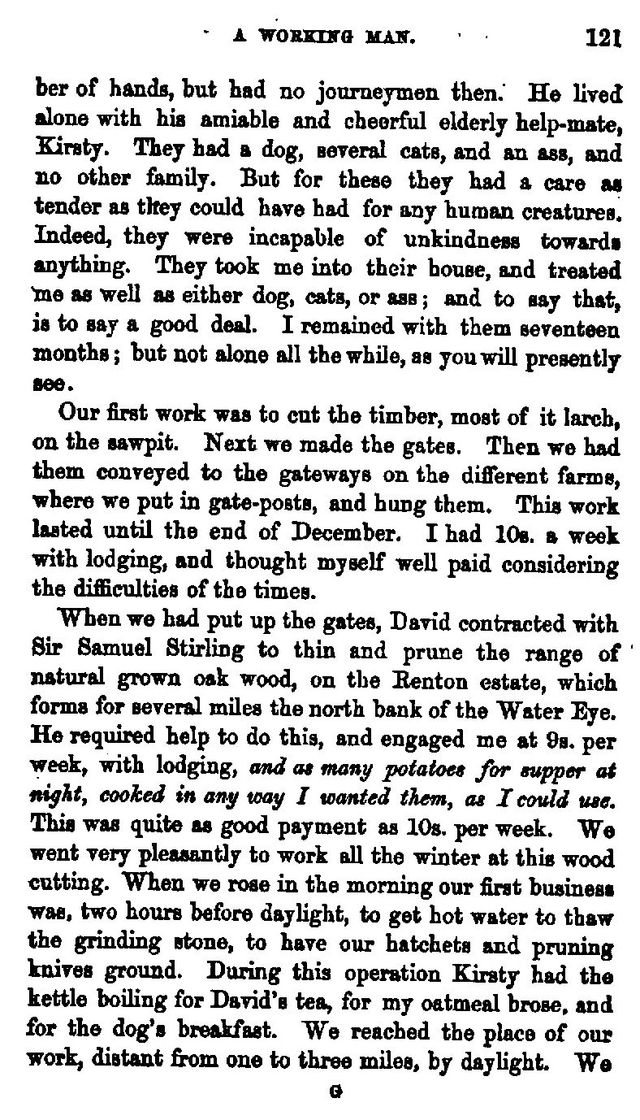
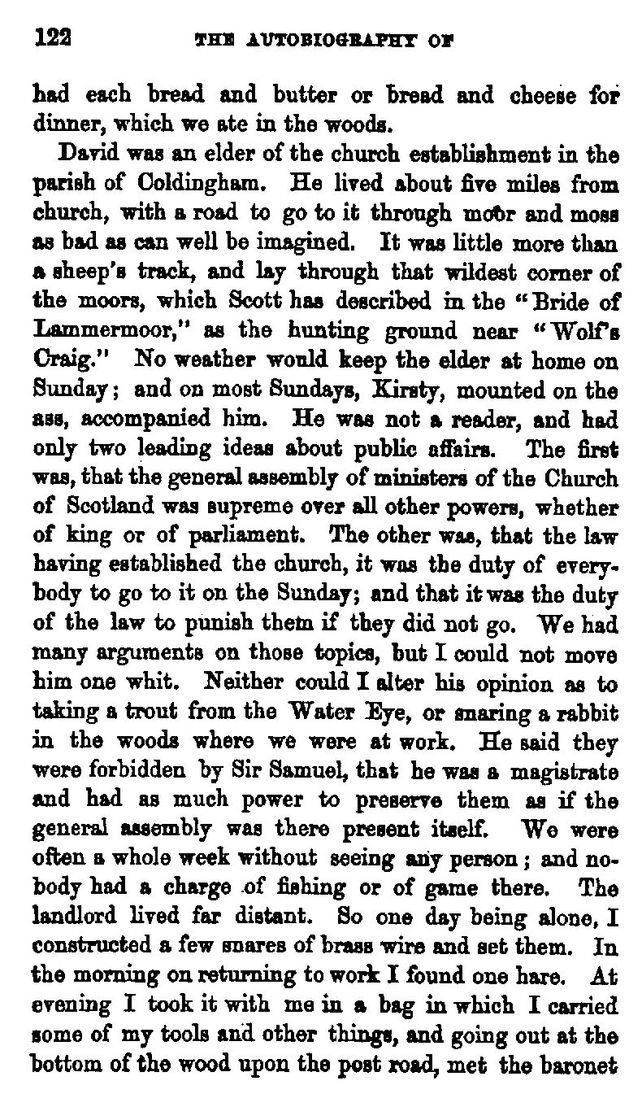
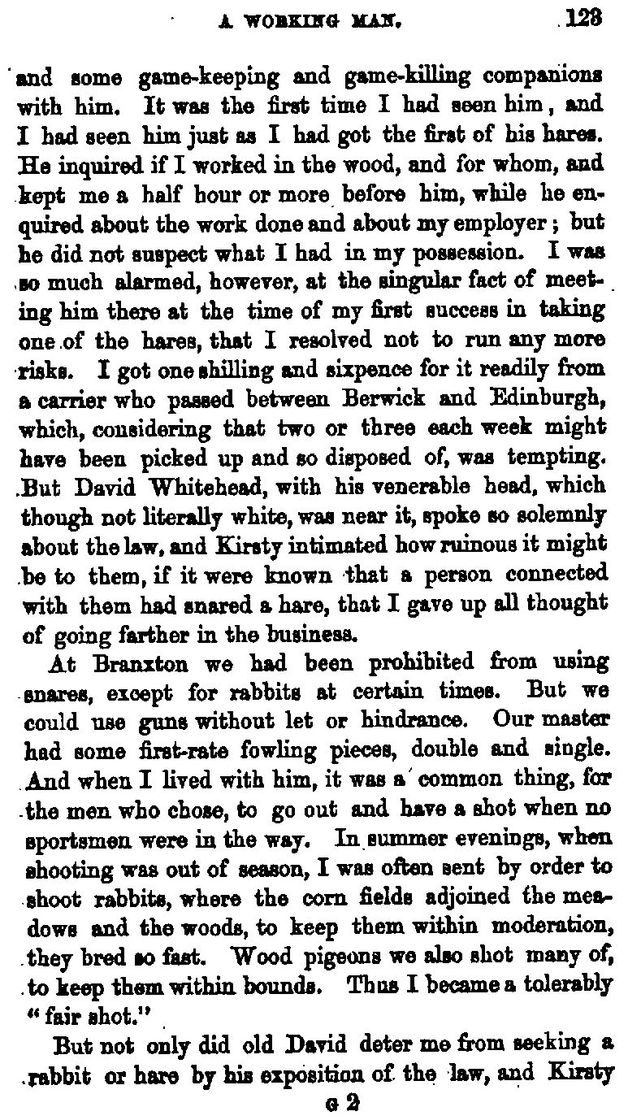
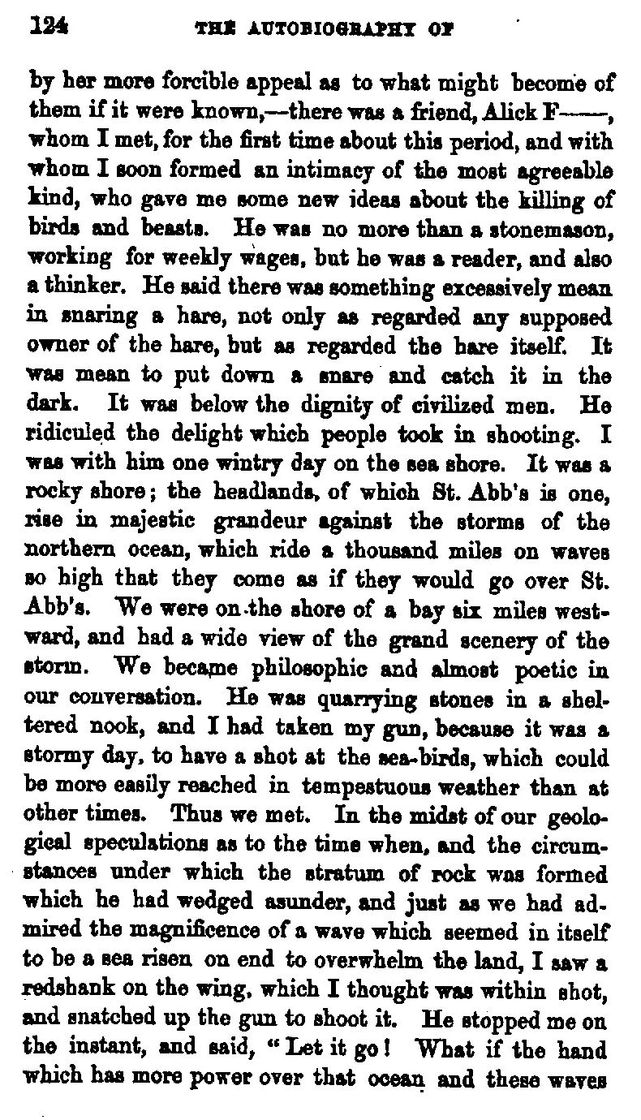
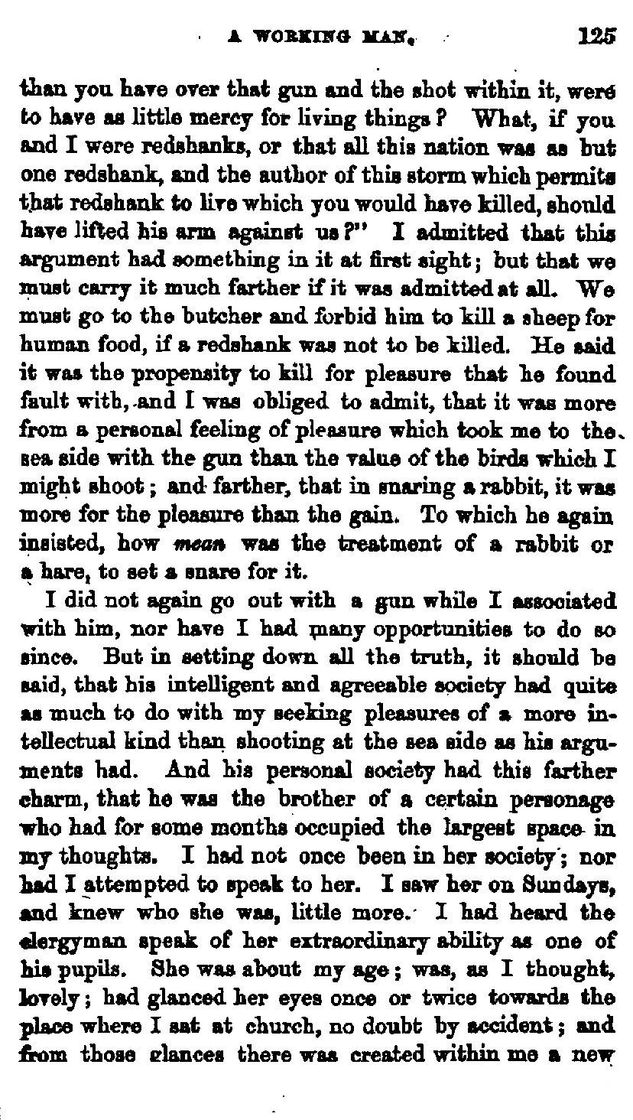
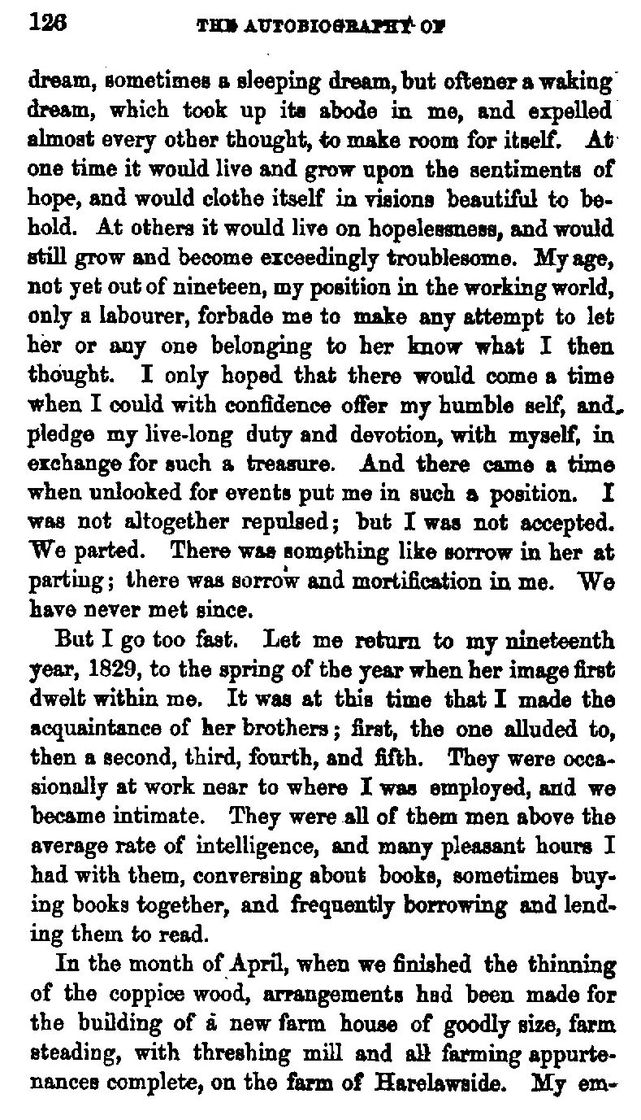
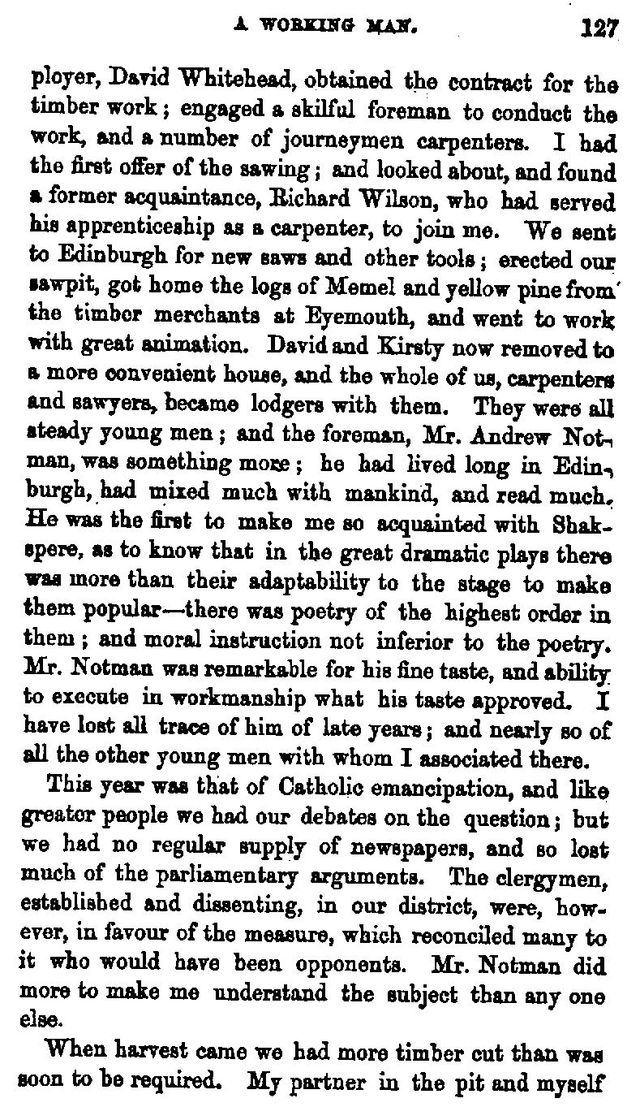
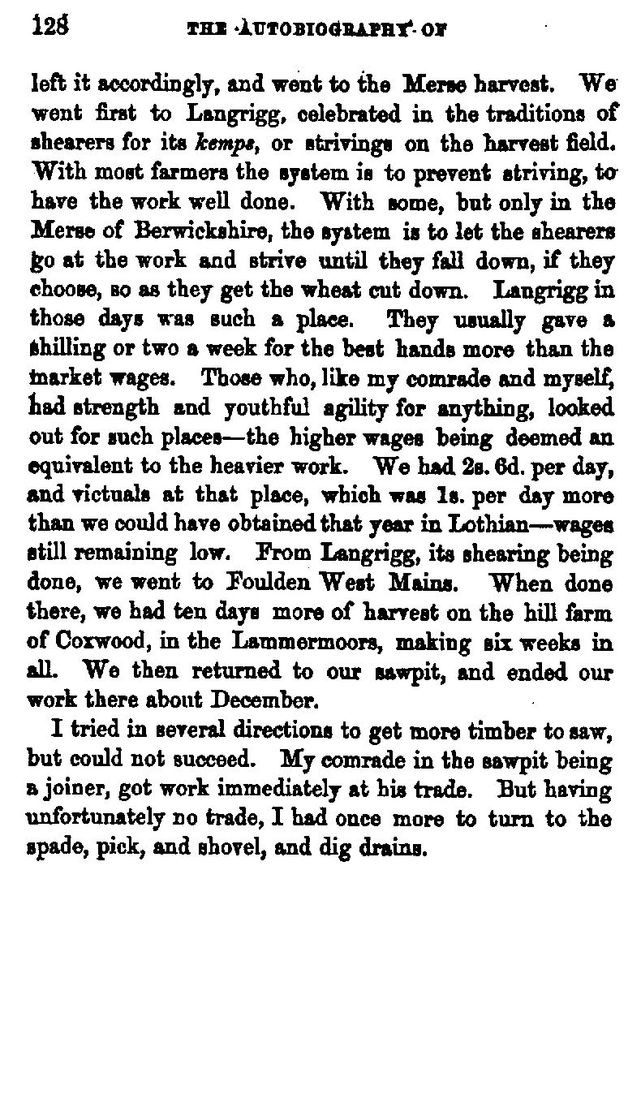
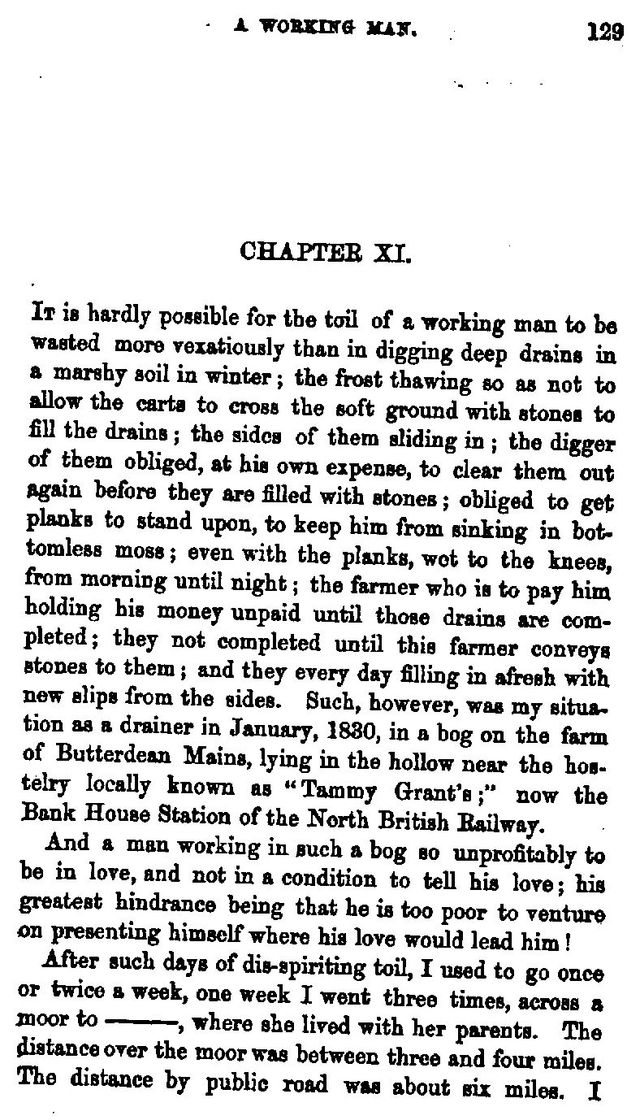
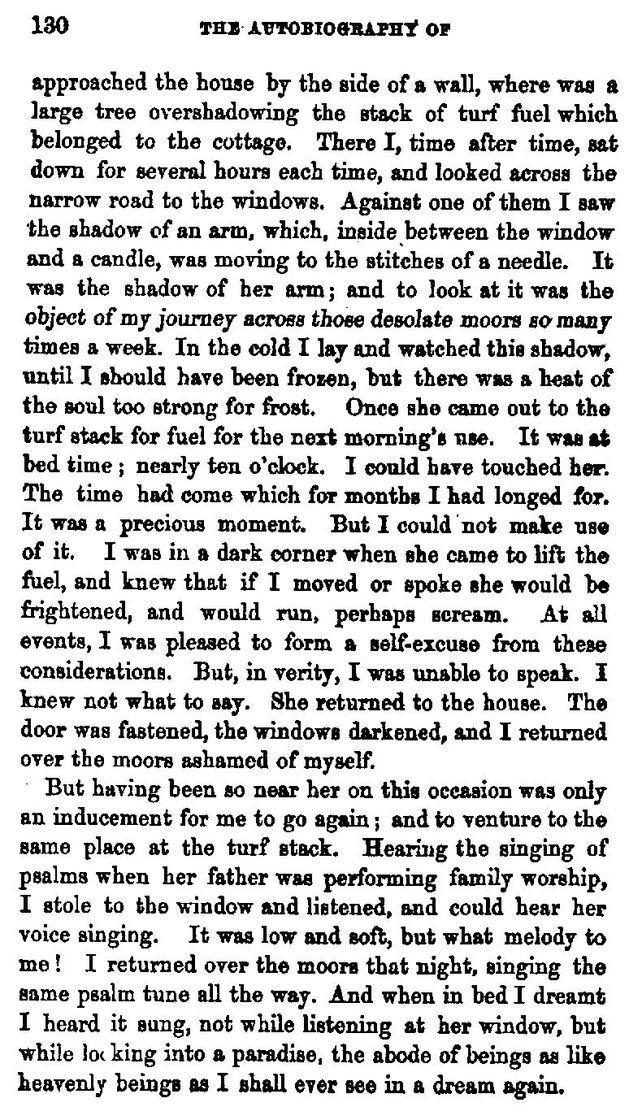
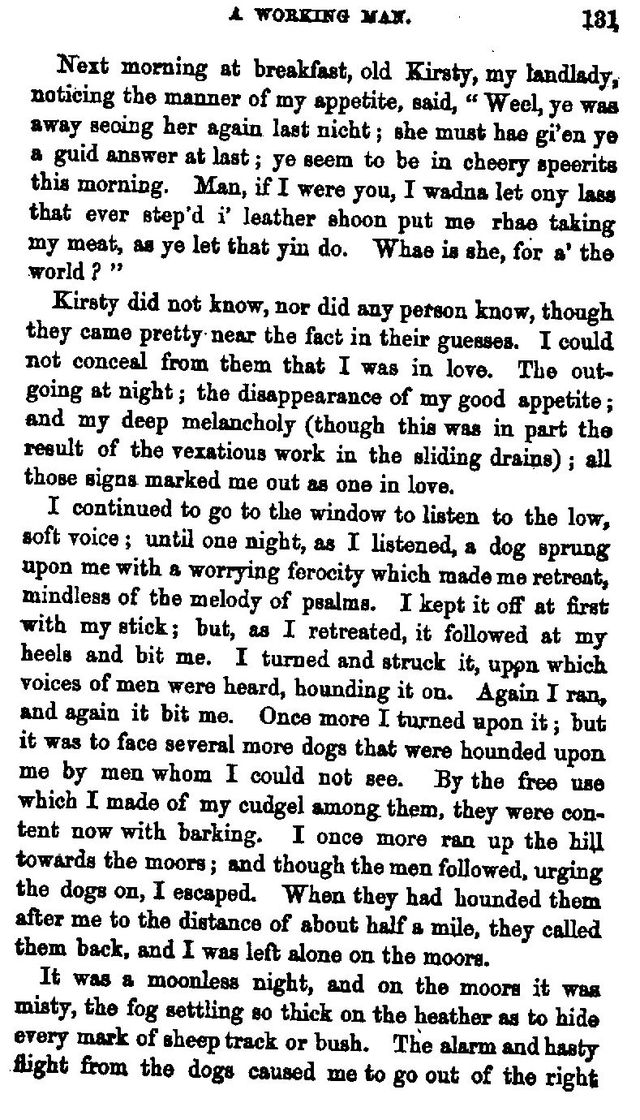
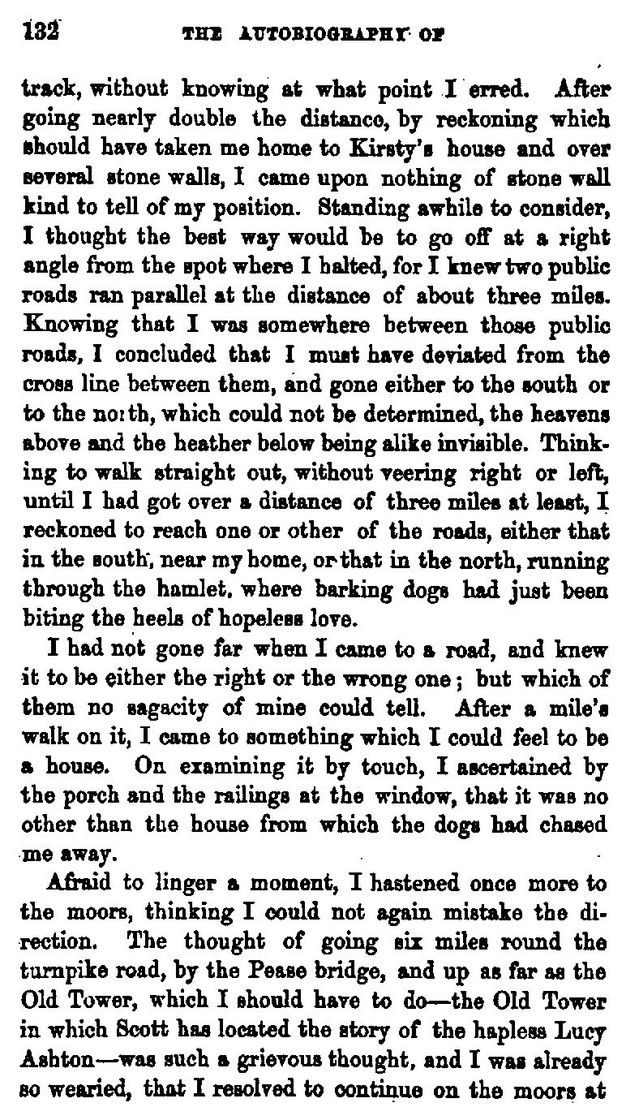
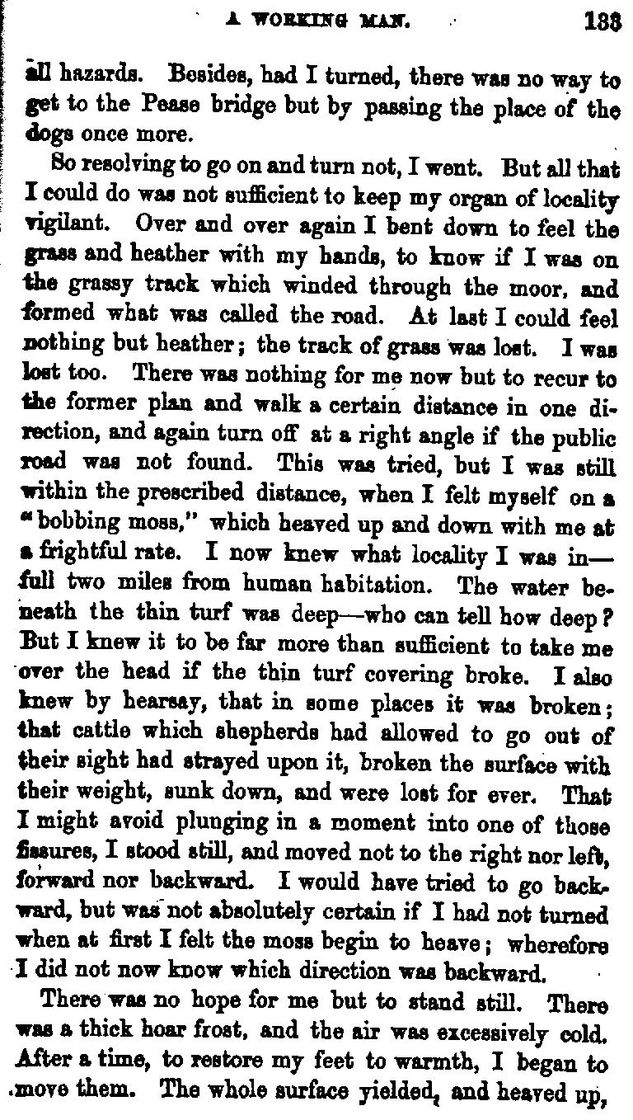
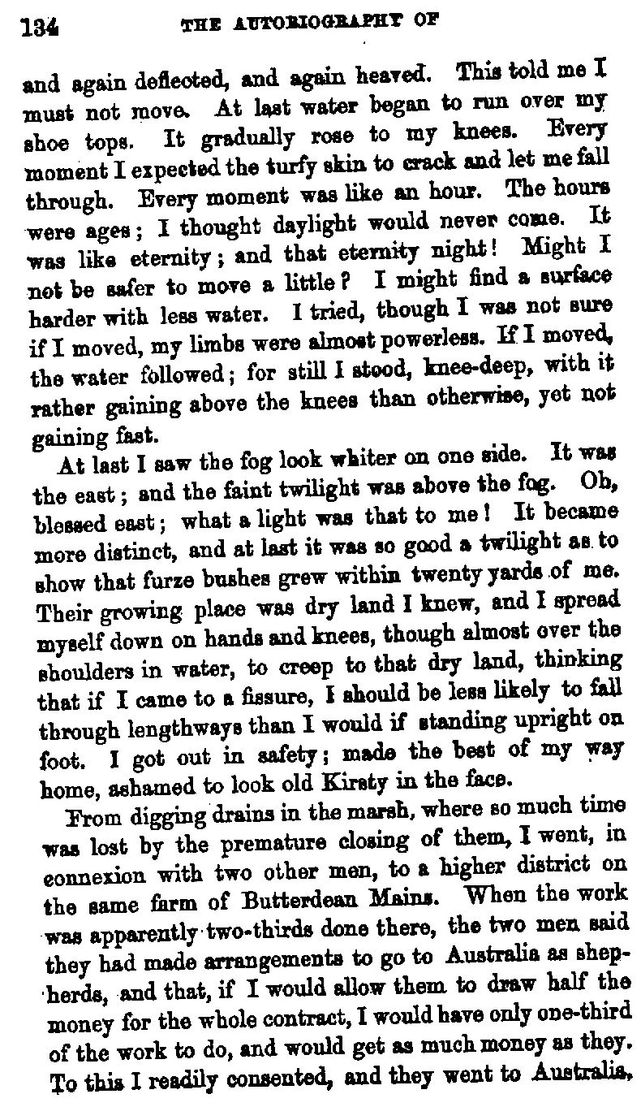
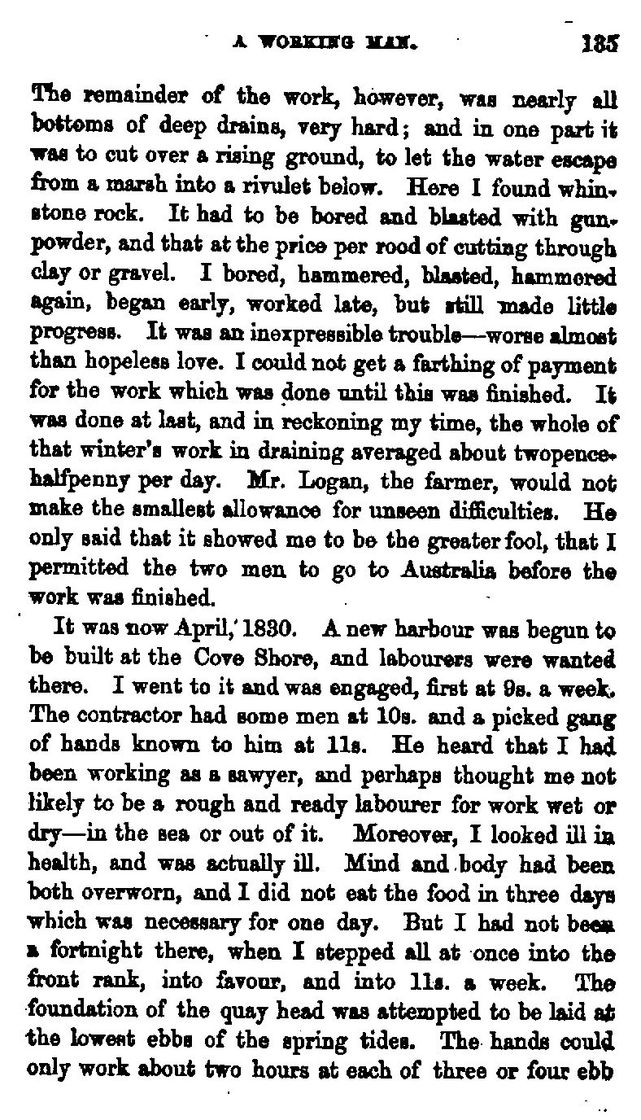
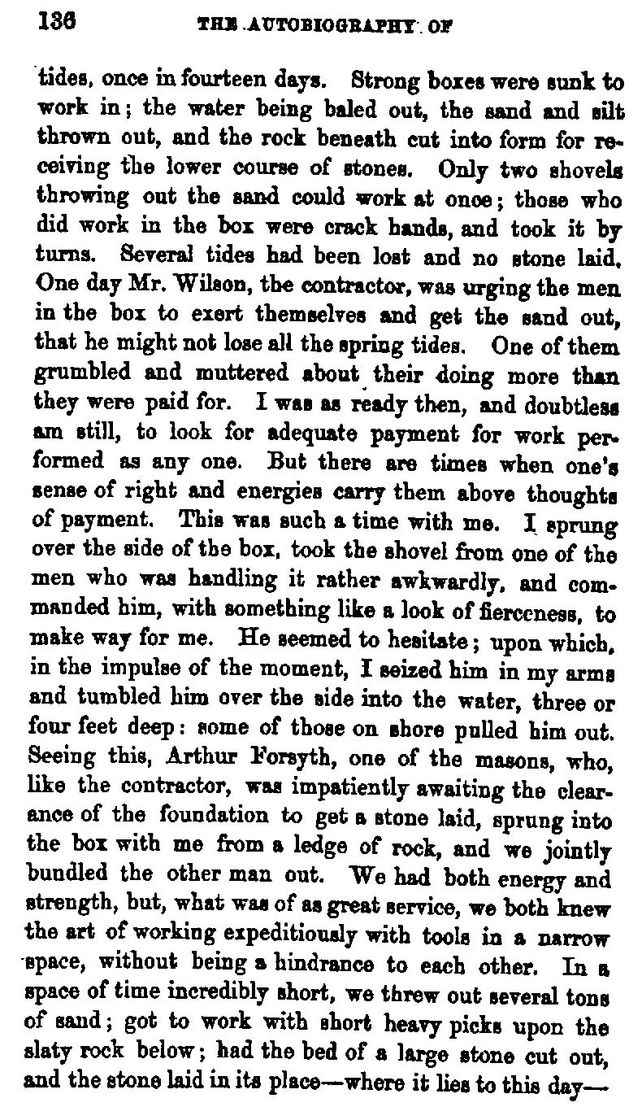
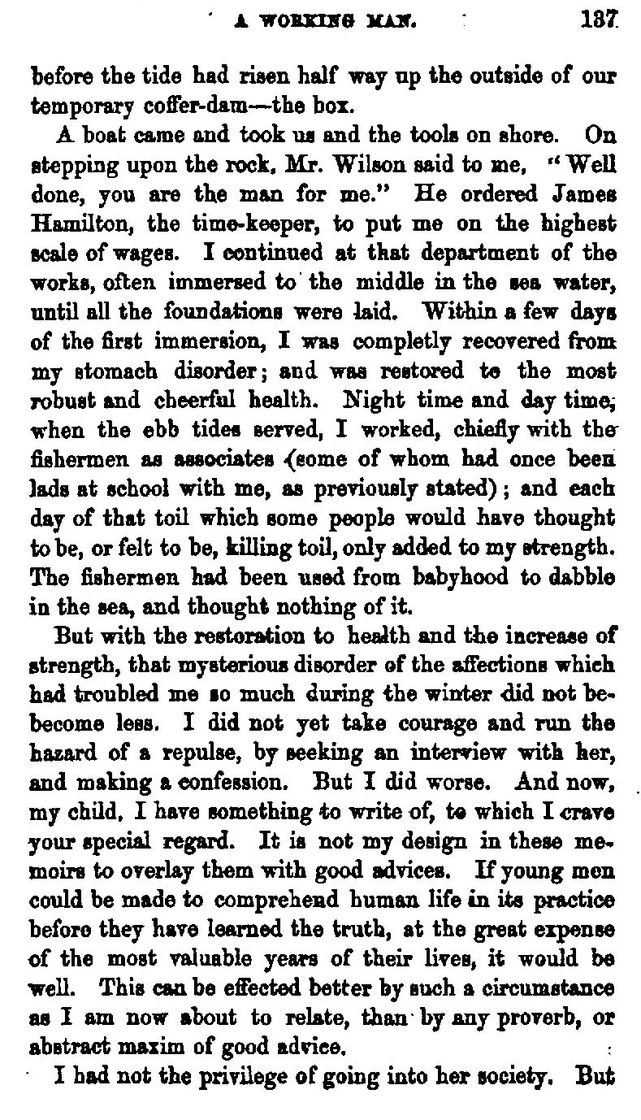
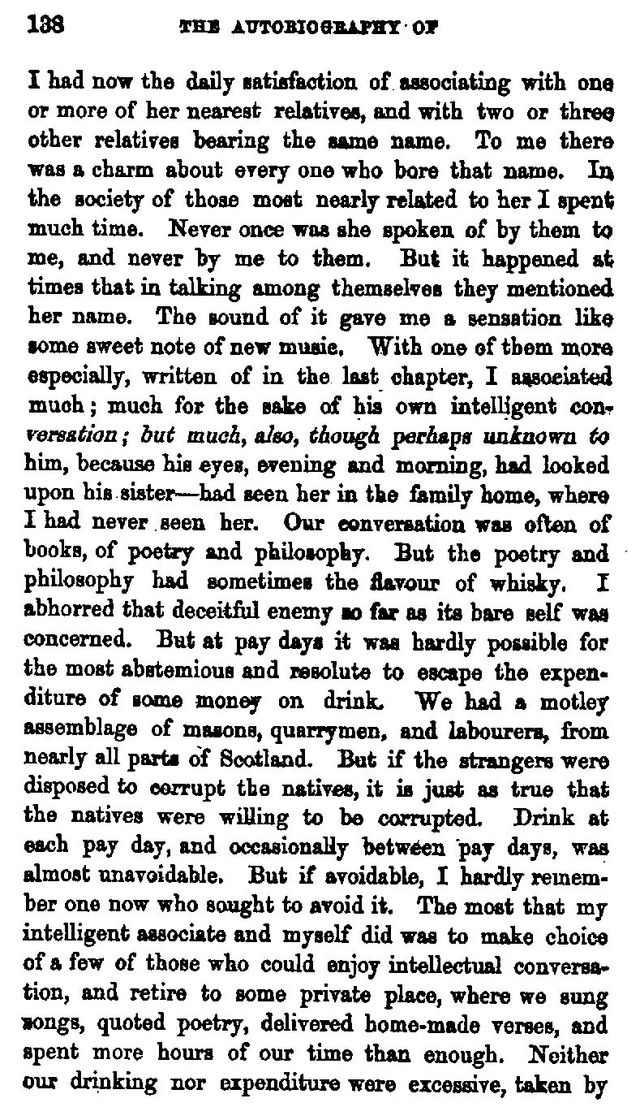
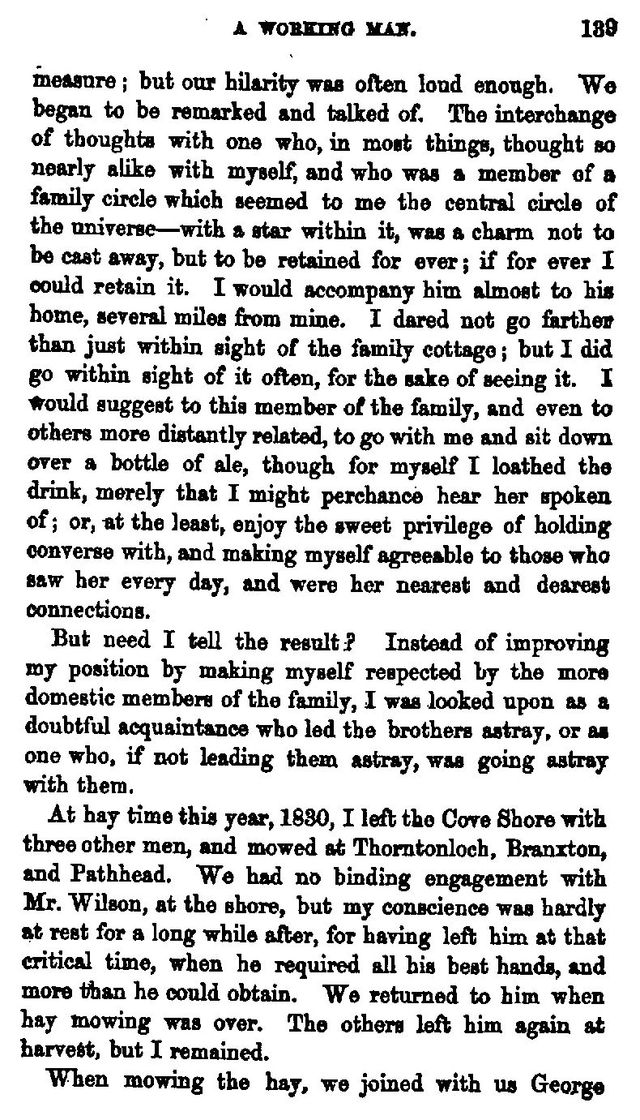
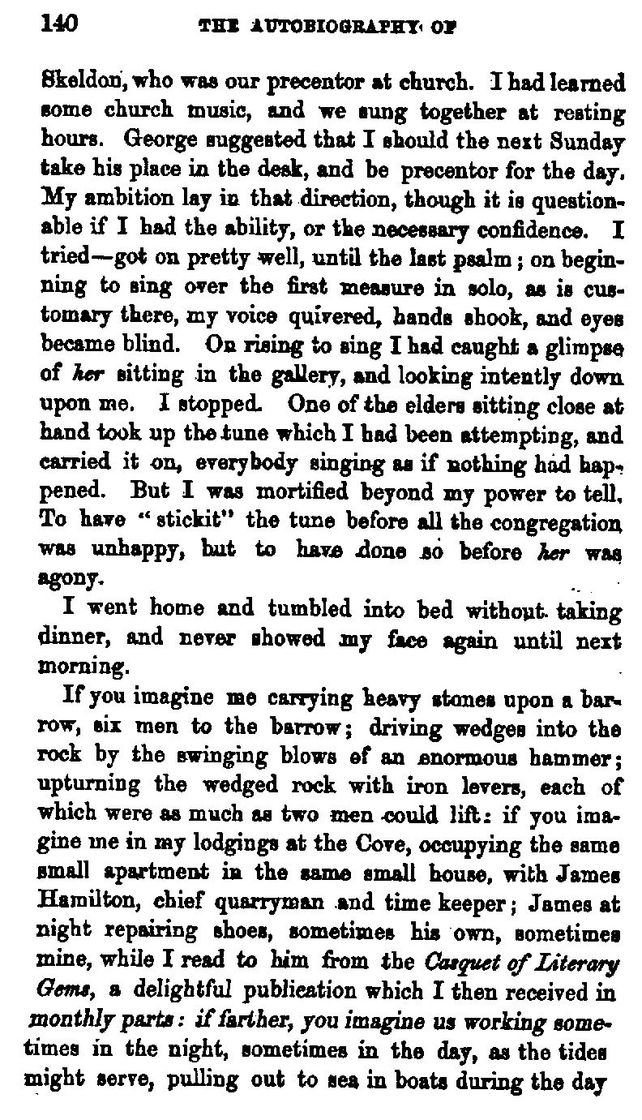
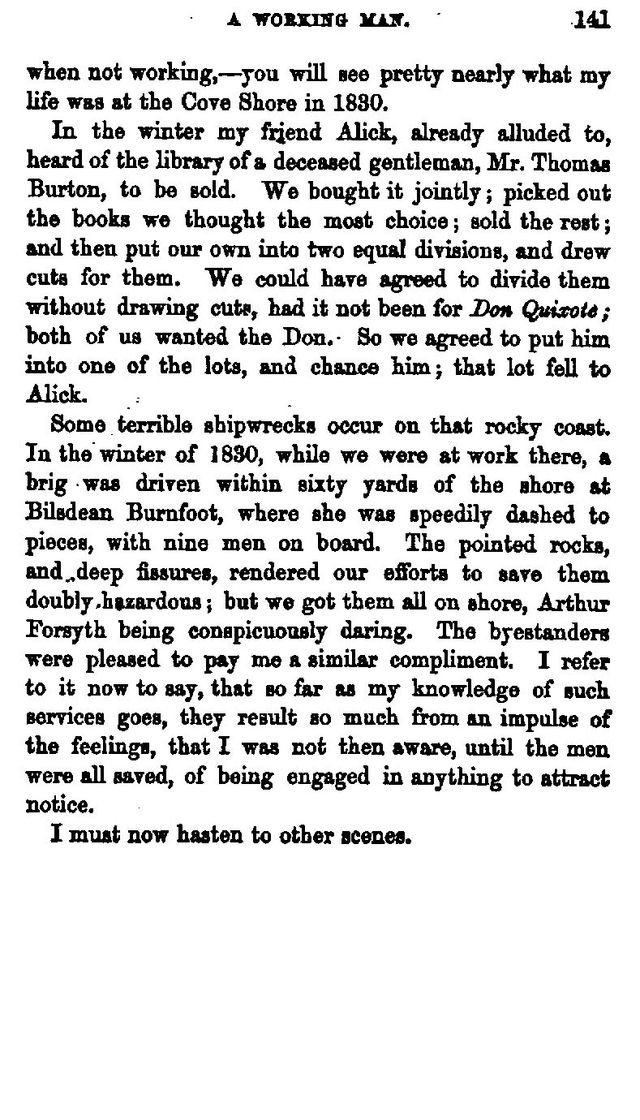
For anyone wishing to continue Alexander Somerville's story following his time in Dunbar and Berwickshire, reprints of the book are widely available.